|
The material on this website is intended for educational use only and may not be reproduced for commercial purposes without express permission from the appropriate copyright holder.
Le contenu de ce site Web est destiné à des fins pédagogiques seulement et ne peut être reproduit à des fins commerciales à moins d'en avoir obtenu la permission du titulaire du droit d'auteur approprié.
"Labor is prior to, and independent of, capital. Capital is only the fruit of labor, and could never have existed if labor had not first existed. Labor is the superior of capital, and deserves much the higher consideration."
Abraham Lincoln, 1861
We mean to make things over;
We're tired of toil for naught
But bare enough to live on—
Never an hour for thought;
We want to see the sunshine,
We want to smell the flowers;
We're sure that God has willed it,
And we mean to have eight hours.
We're summoning our forces,
From shipyard, shop and mill—
Eight hours for work, eight hours for rest,
Eight hours for what we will!
From the factories and the workshops,
In long and weary lines,
From all the sweltering forges,
From all the sunless mines,—
Wherever toil is wasting
The force of life to live,—
Its bent and battered armies
Come to claim what God doth give.
And the blazon on its banner
Doth with hope the nations fill—
Eight hours for work, eight hours for rest,
Eight hours for what we will!
Ontario Workman, 16 May 1872
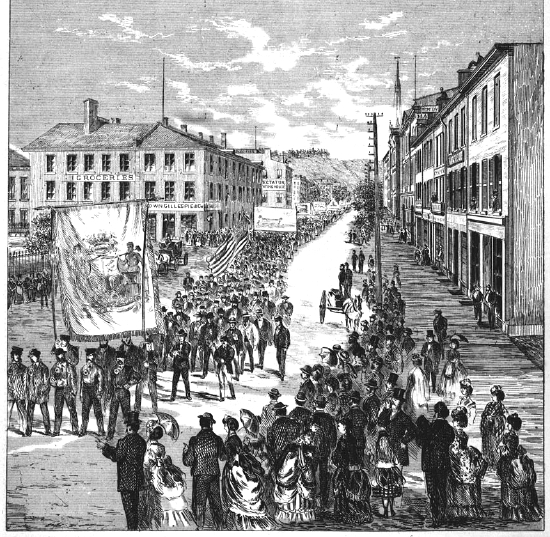
1872 Hamilton - Procession of Nine-Hour Movement Men. LAC, C-058640, Canadian Illustrated News, 8 June 1872
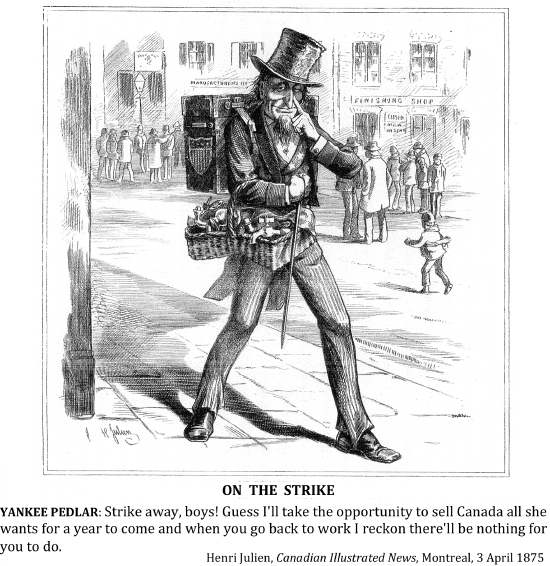
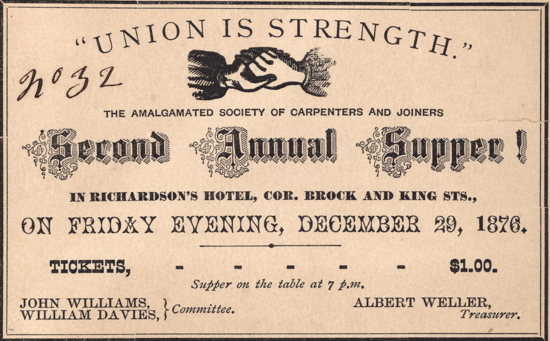
Amalgamated Society of Carpenters and joiners, Canadian District, TRL 1876. Union.VSB
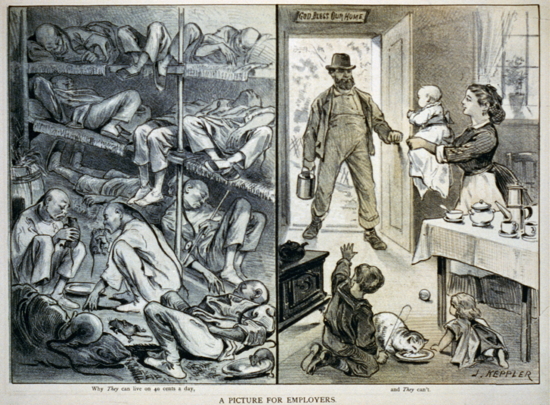
A picture for employers.
Why they can live on 40 cents a day, and they can't
J. Keppler, Puck, 21 August 1878, Library of Congress LC-USZC2-1242
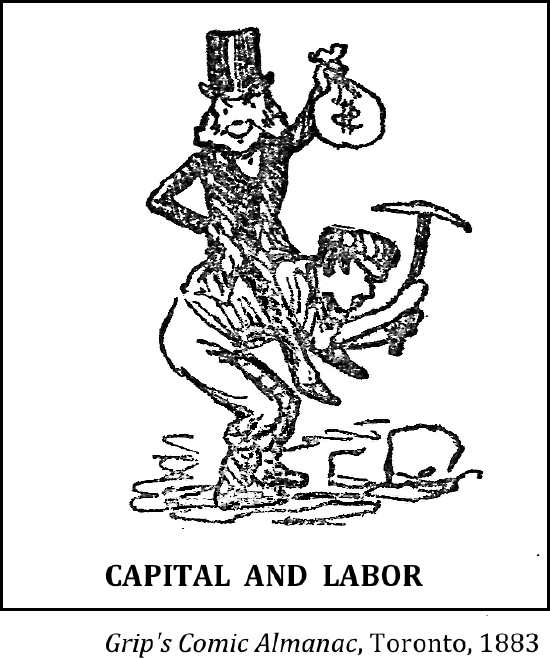
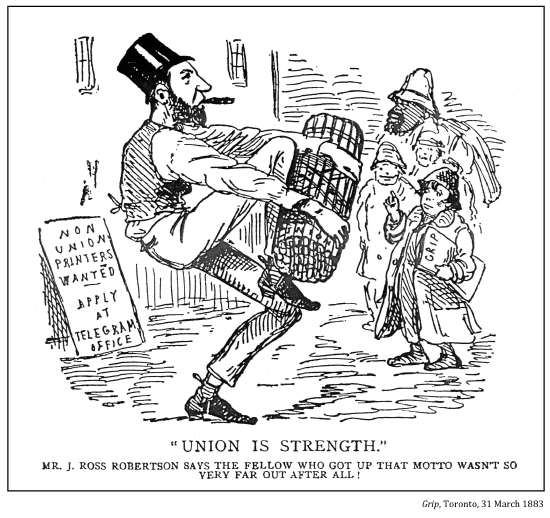
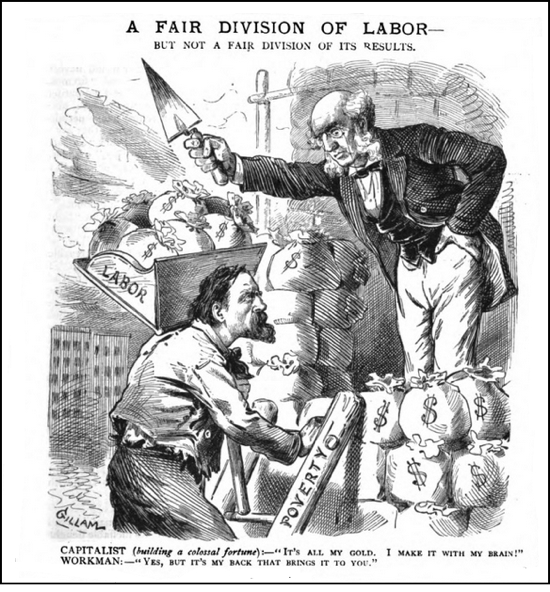
Puck, New York, 8 August 1883
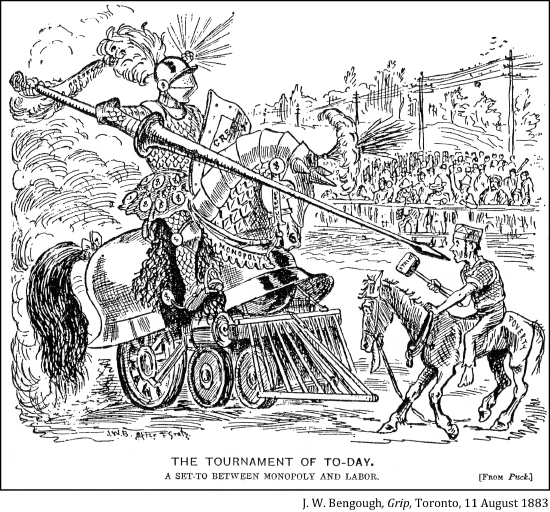
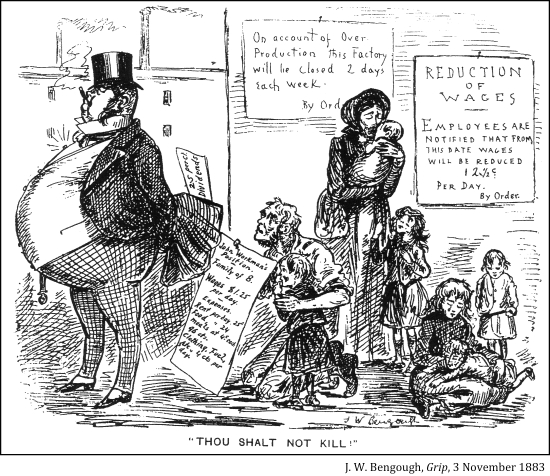
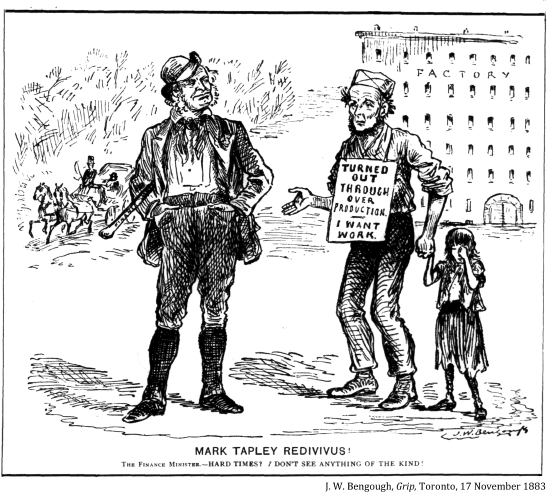
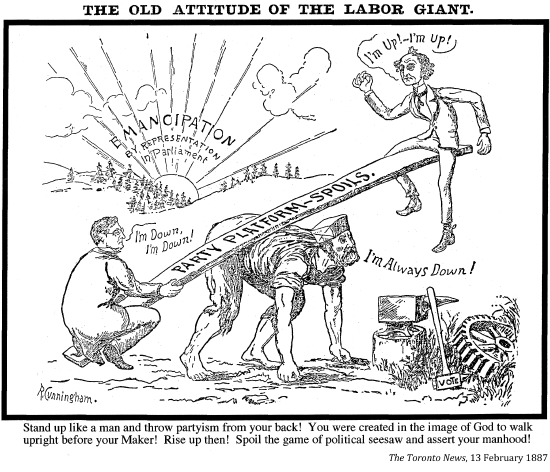
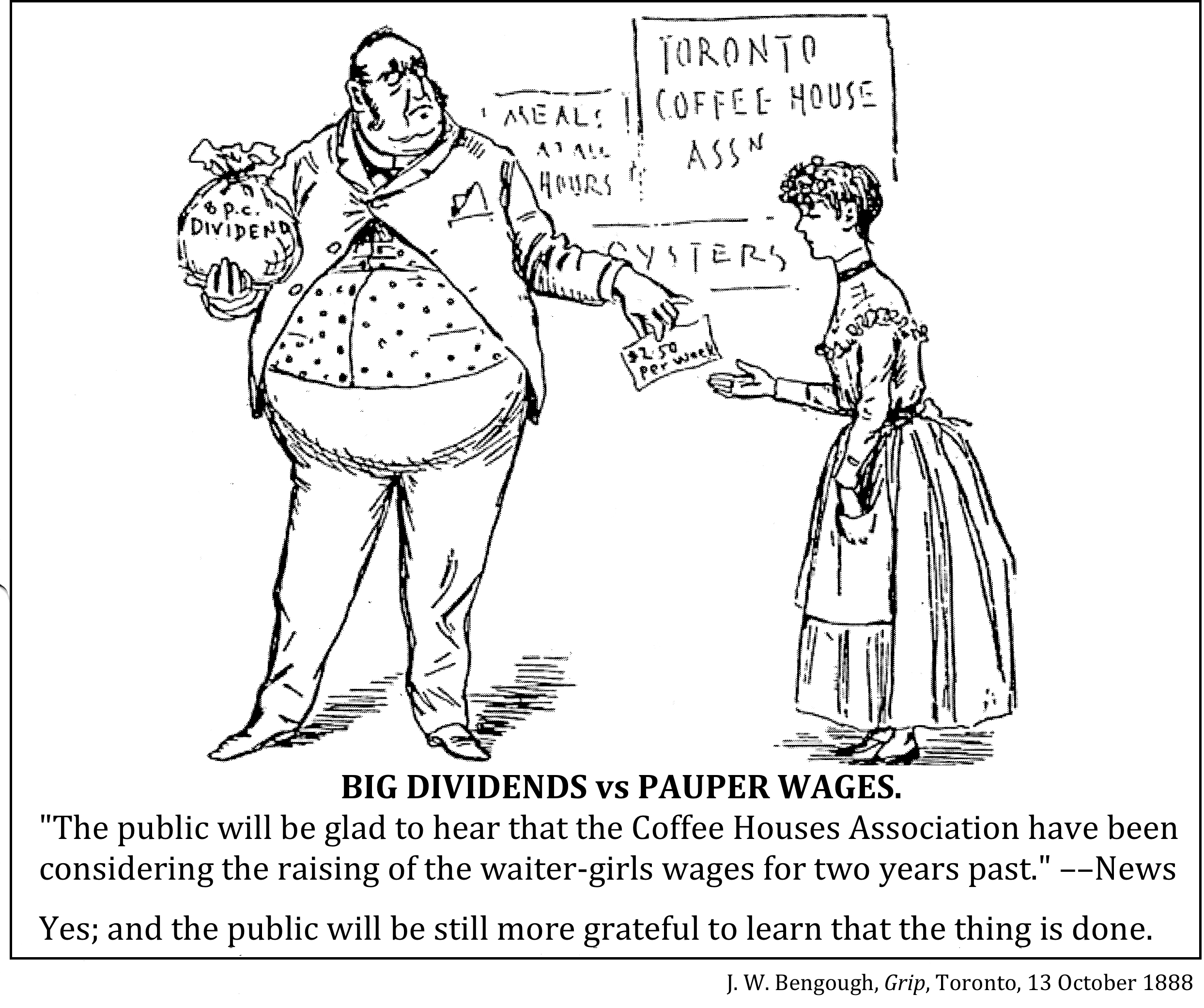
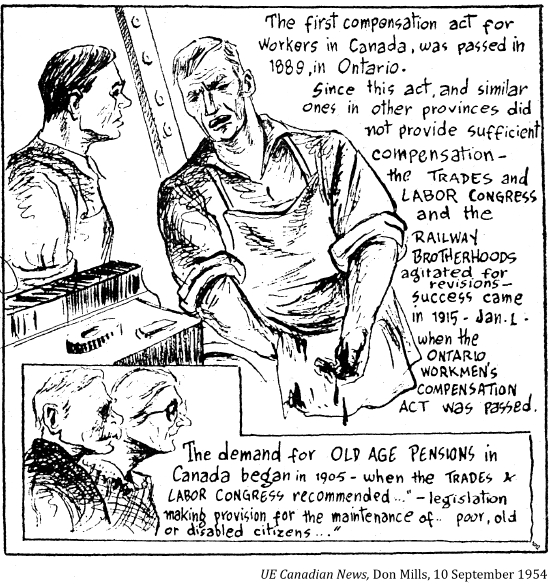
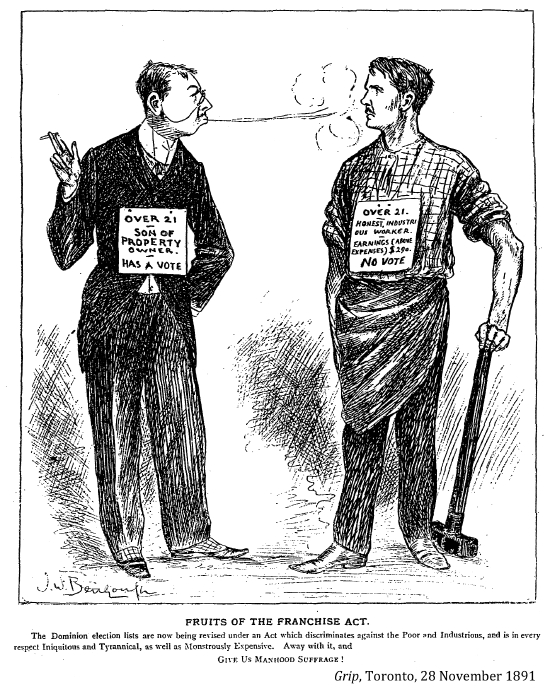
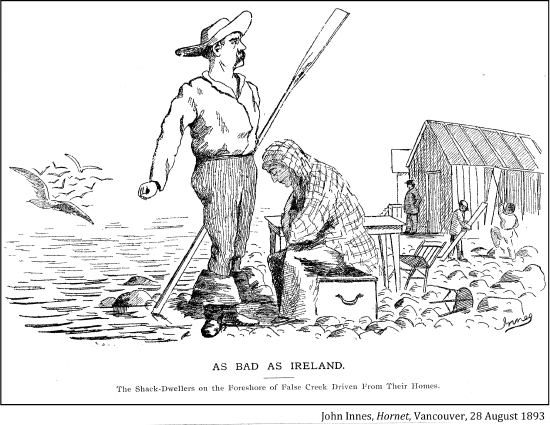
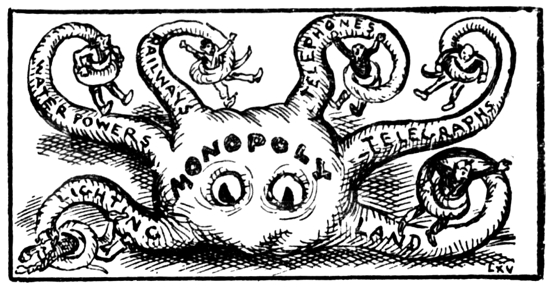
The up-to-date primer, Toronto, 1894

Lincoln Socialist-Labor, St. Louis, 7 September 1895
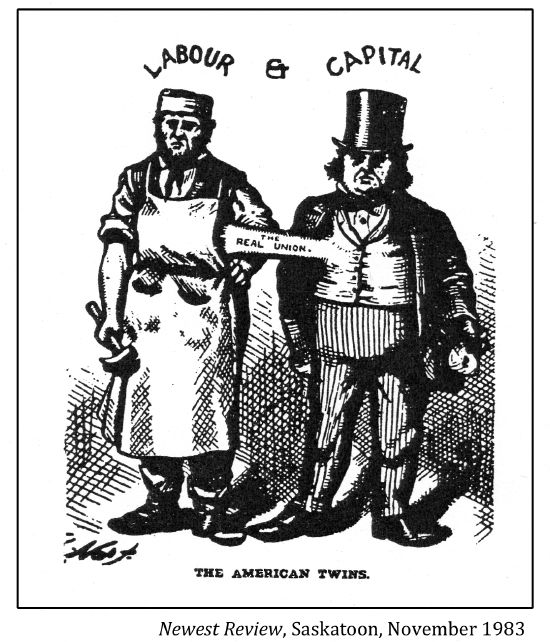
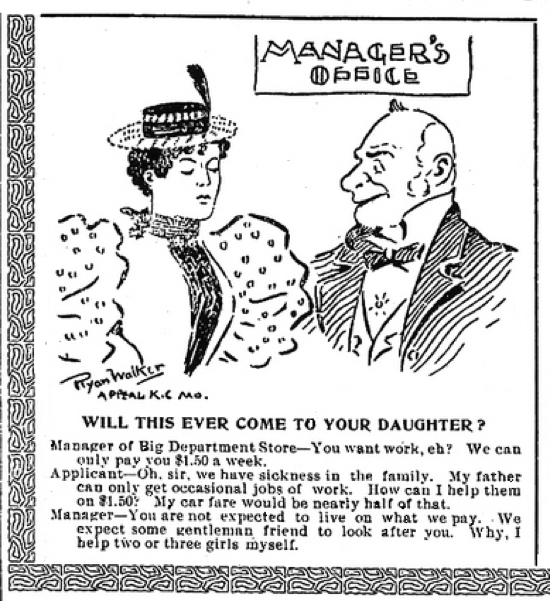
Appeal to Reason, Girard, Kansas, 15 May 1897
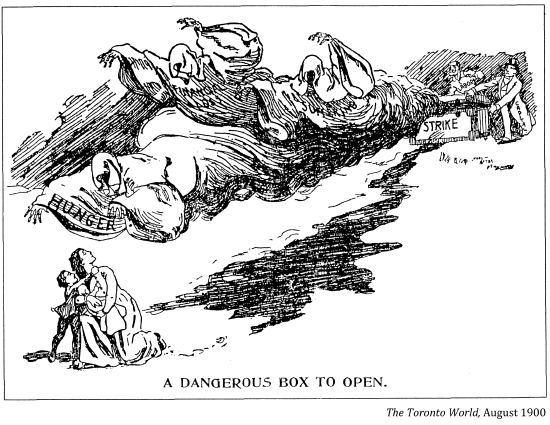
"Nature has her laws, and there is one – a fair day's wage for a fair day's work."
Benjamin Disraeli
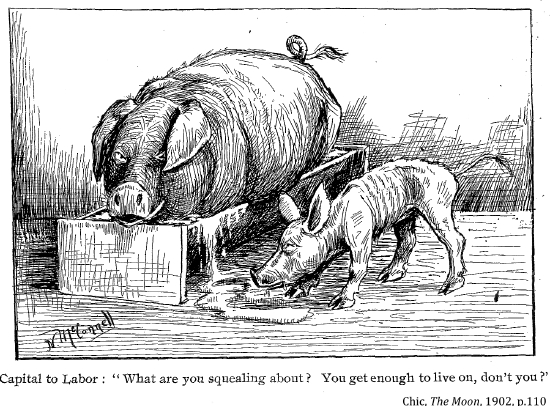
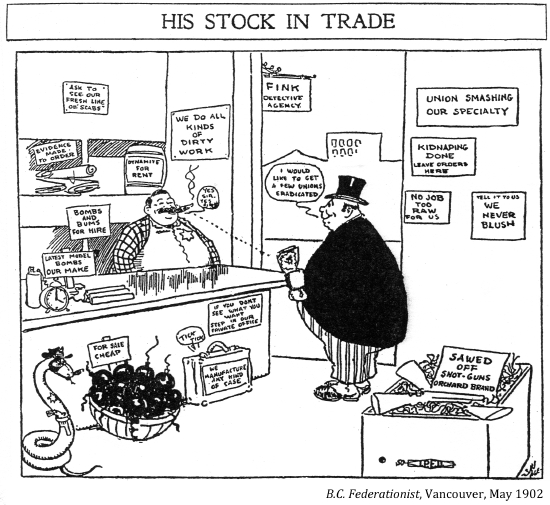
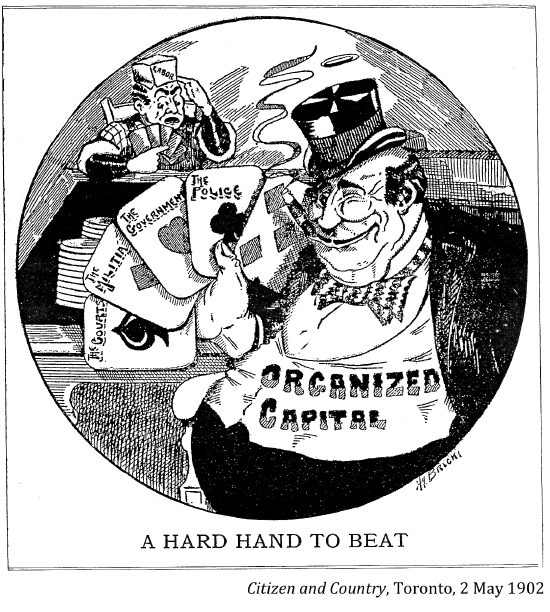
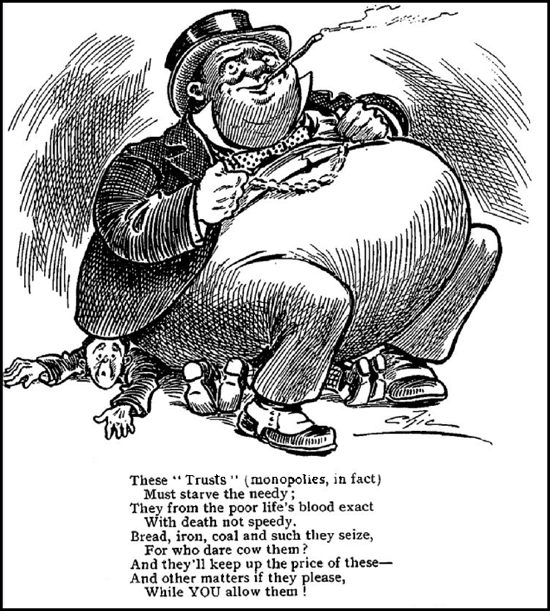
Chic, The Moon, Toronto, 22 November 1902
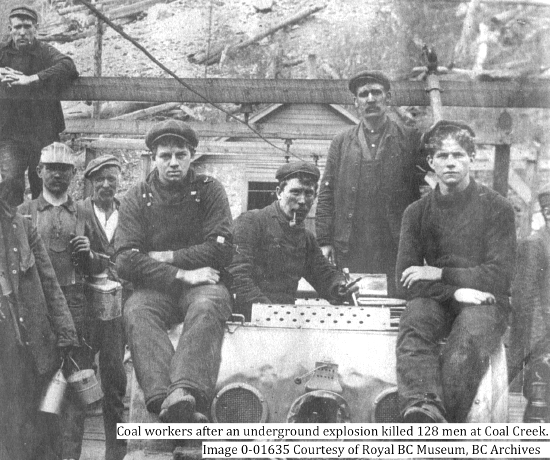
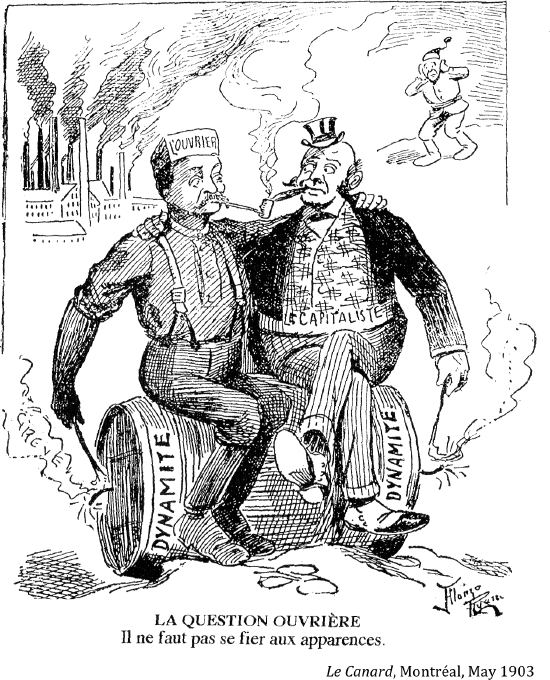
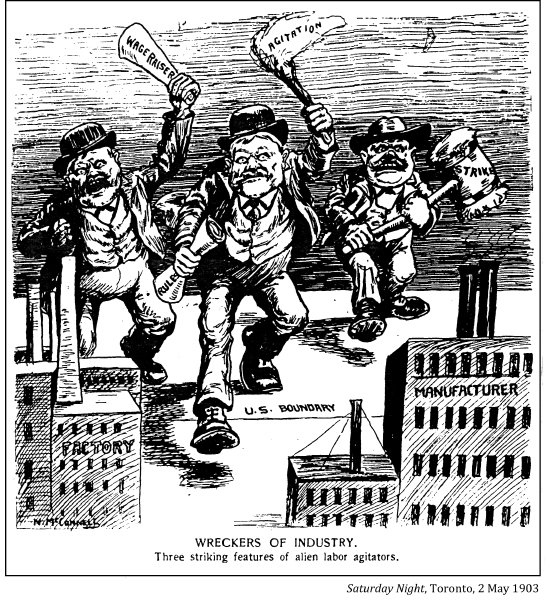

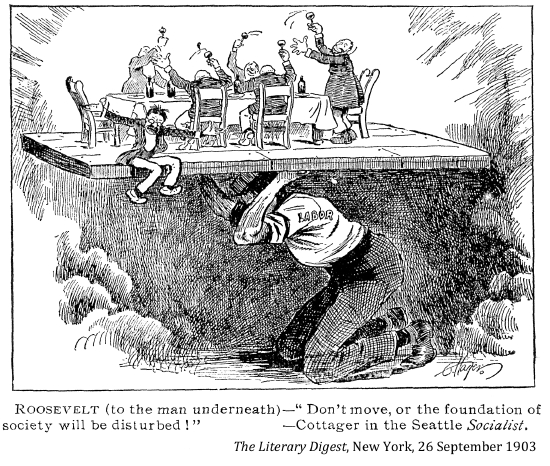
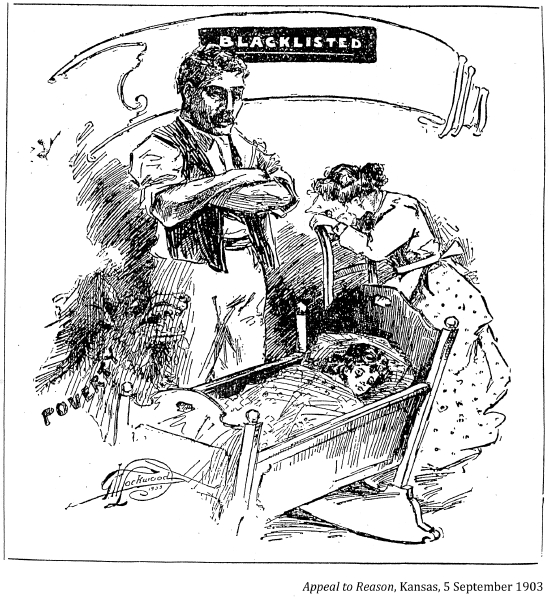
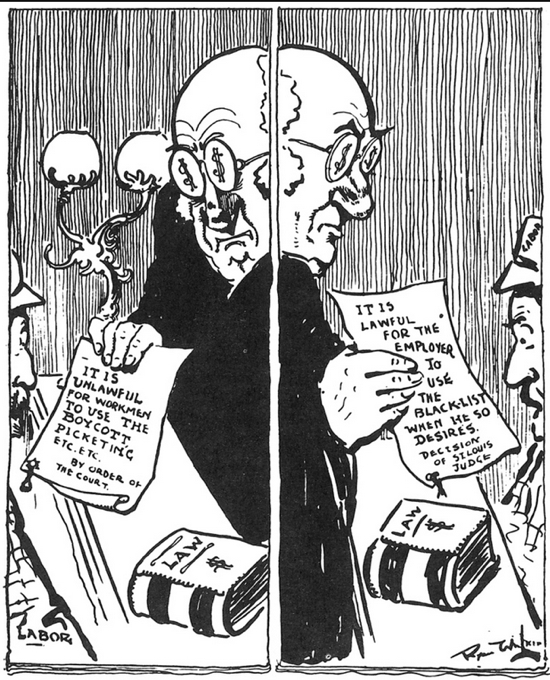
Ryan Walker, The Comrade, December 1903
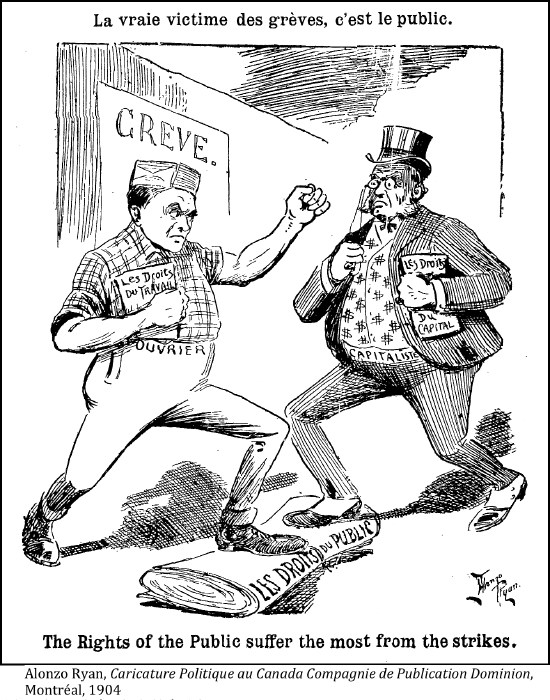
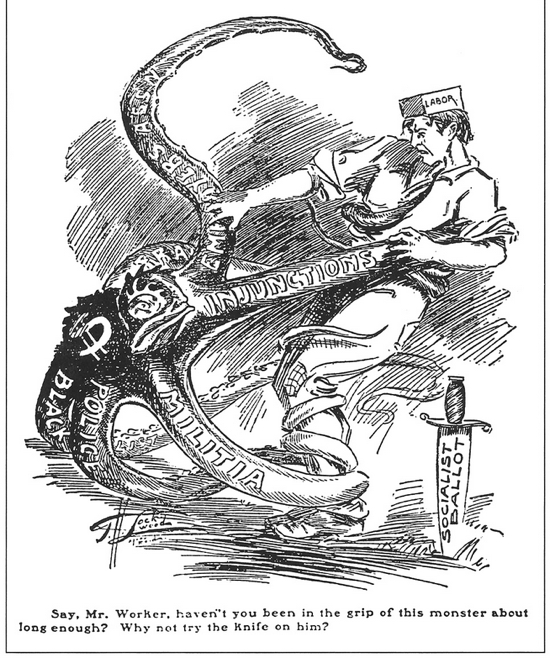
G. H. Lockwood, Appeal to Reason, Girard, Kansas, 9 January 1904
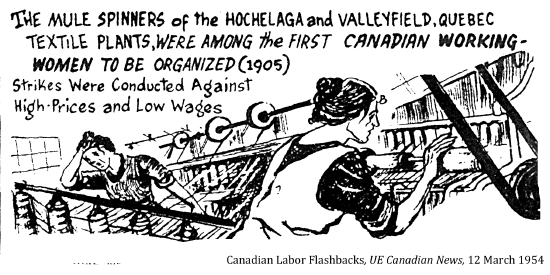
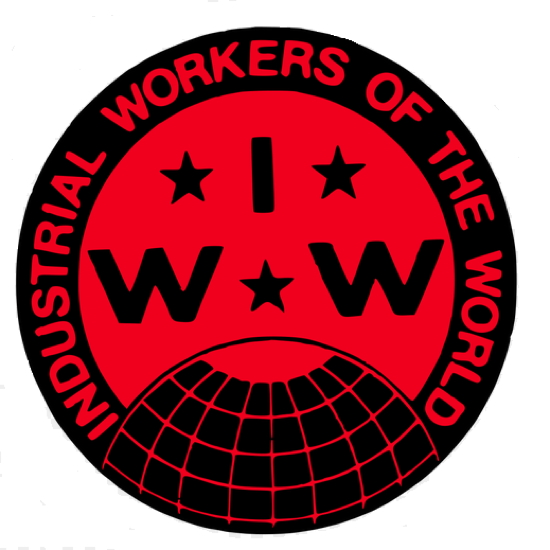
Industrial Workers of the World, Chicago, 27 June 1905
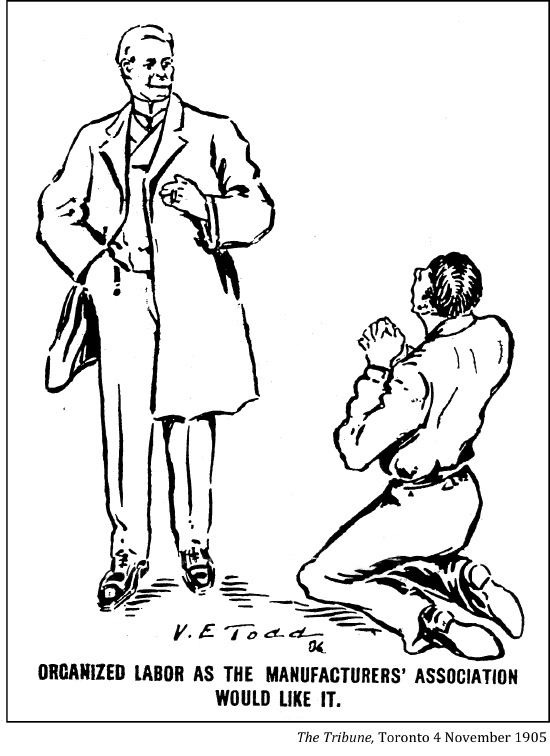
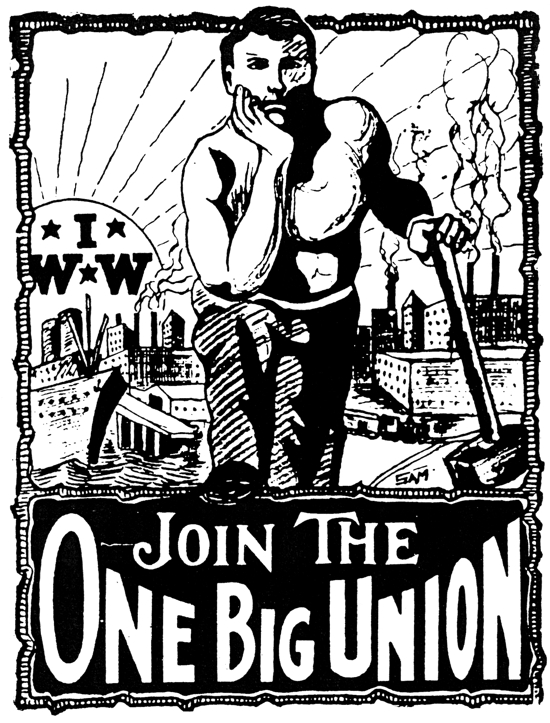
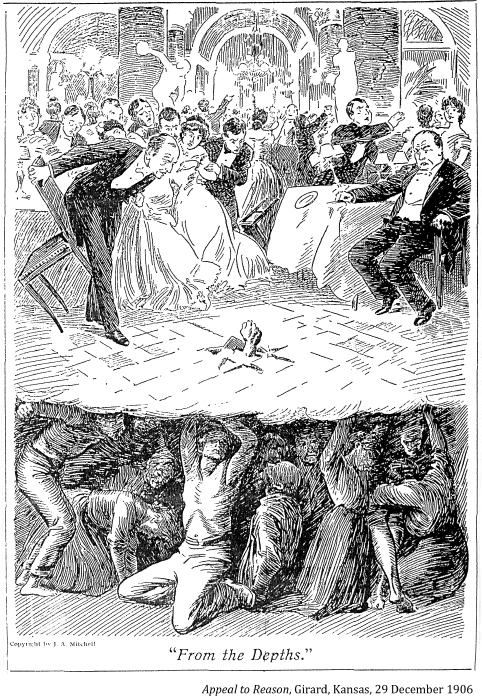
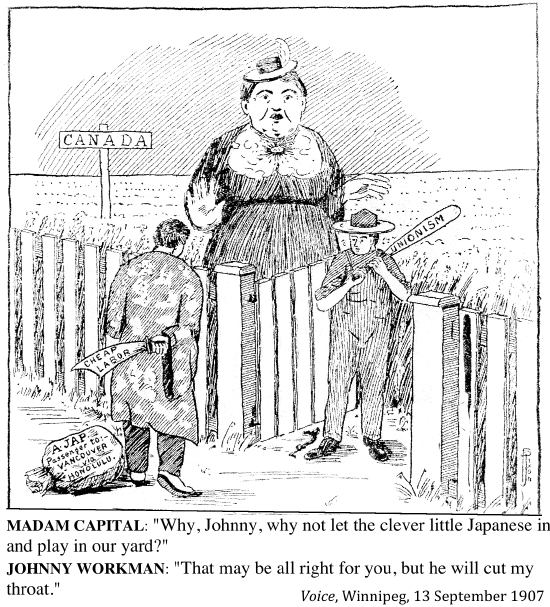

International Workers of the World, 1908?
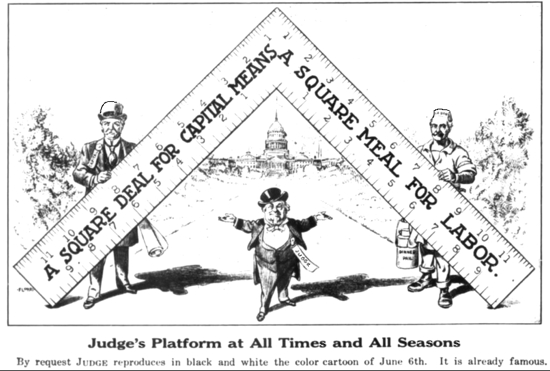
Judge, New York, 6 June 1908
"With all their fault, trades unions have done more for humanity than any other organization of men that ever existed. They have done more for democracy, for honesty, for education, for the betterment of the race, for the developing of character in man, than any other association of men."
Clarence S. Darrow, 1909
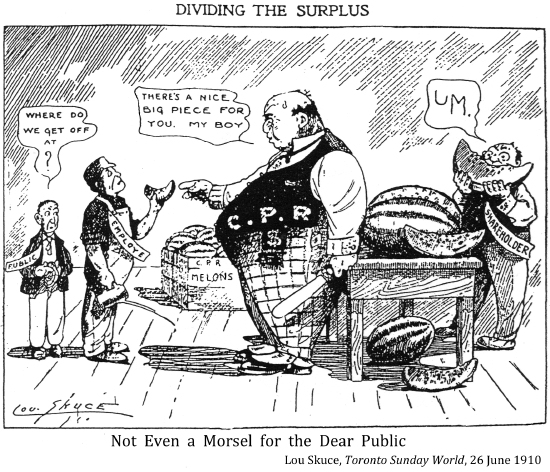
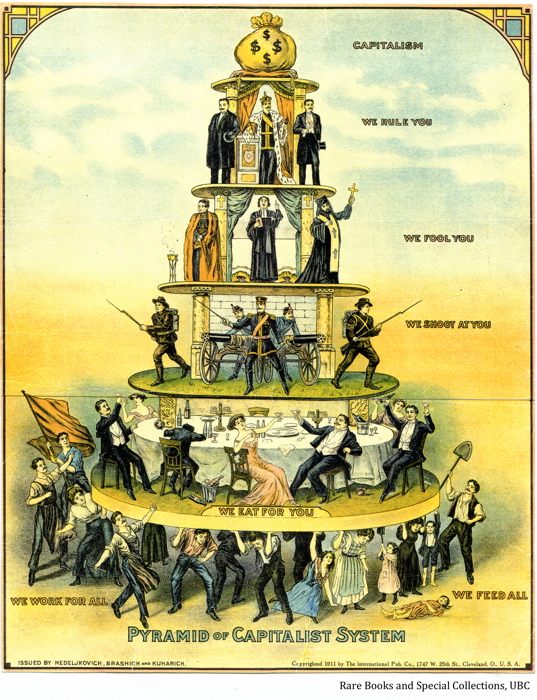
Rare Books and Special Collections UBC
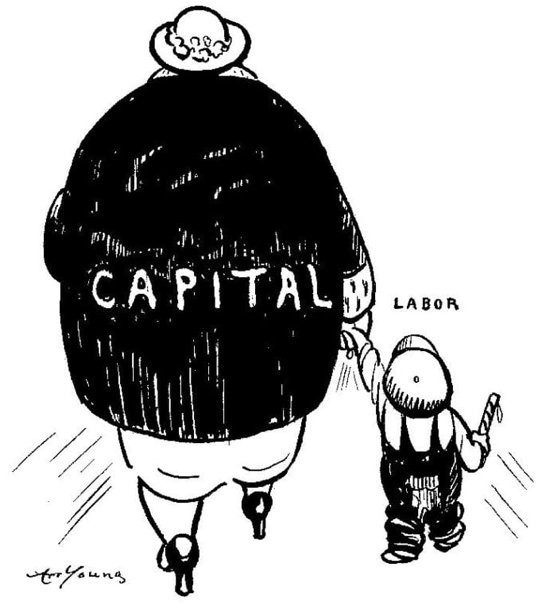
Where are we going Mamma?
Never you mind where we are going.
Capital Labour, The Liberator, Arthur Young, 1910?
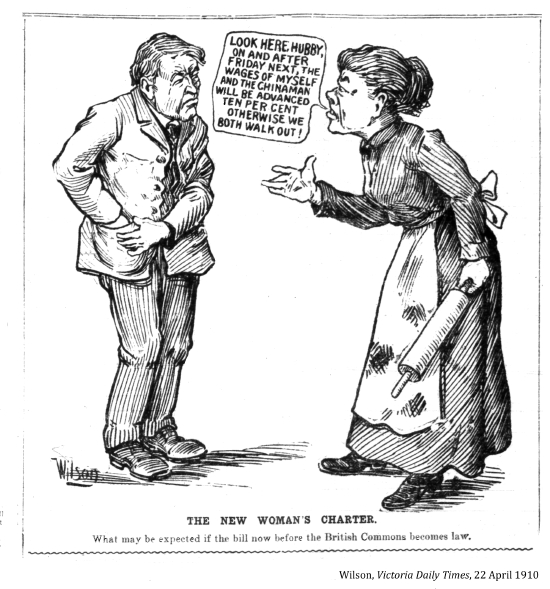
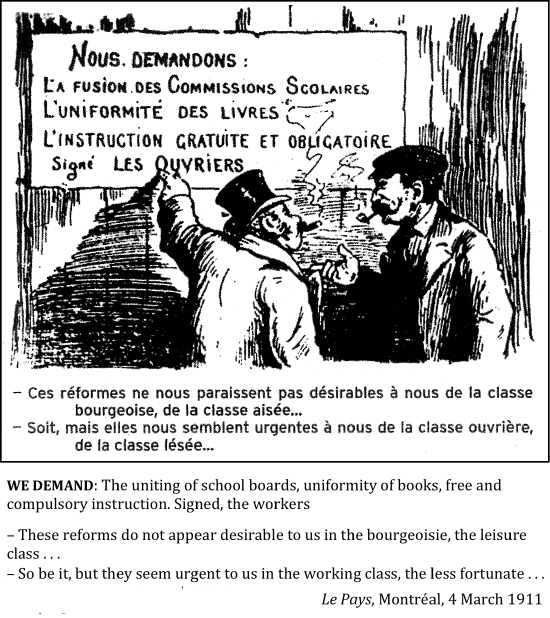
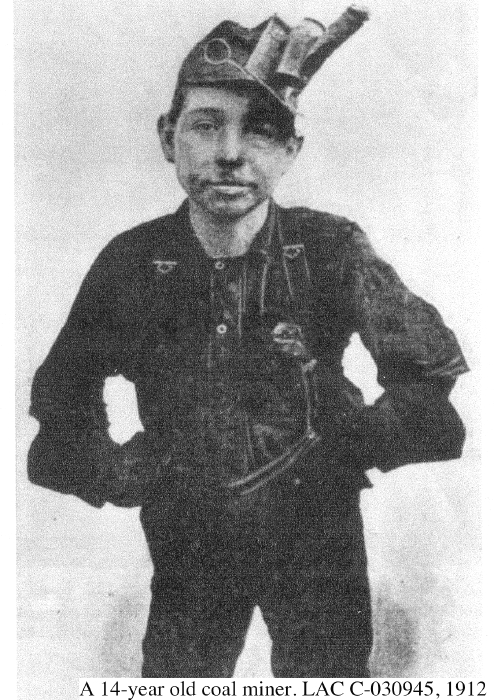
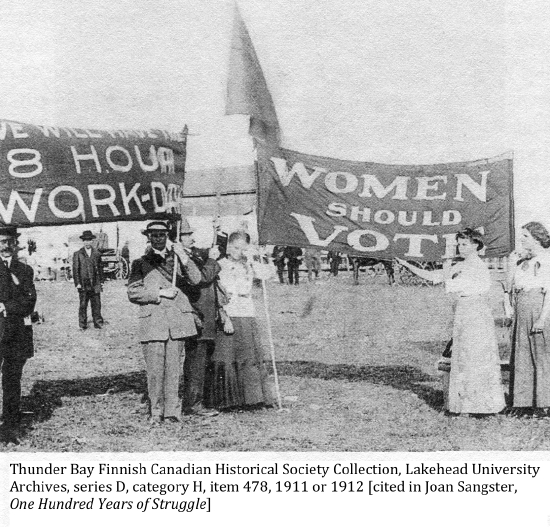
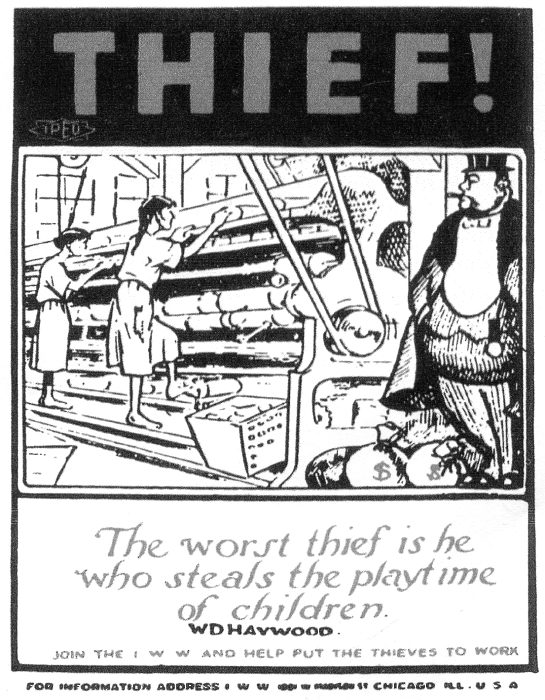
"Where the Fraser River flows, each fellow worker knows,
They have bullied and oppressed us, but still our union grows.
And we're going to find way boys, for shorter hours and better pay, boys!
And we're going to wind the day, boys; where the River Fraser flows."
Joe Hill, Yale, 1912
Where the Fraser River Flows - to hear this song try the following link:
www.youtube.com/watch?v=7Rww4Fx5NeY
To hear Paul Robeson sing a song about Joe Hill visit:
www.youtube.com/watch?v=n8Kxq9uFDes
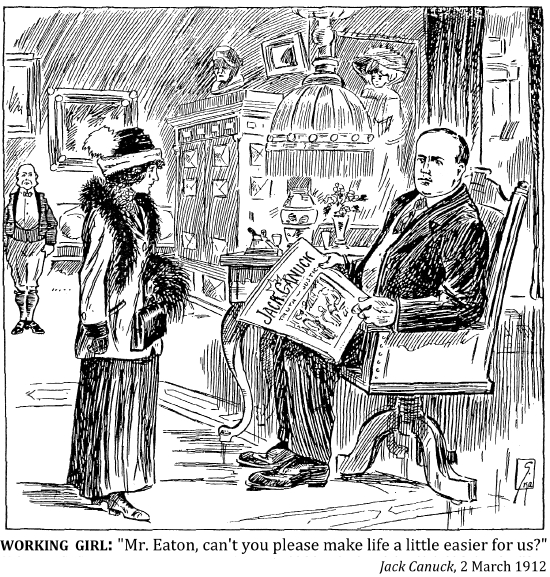
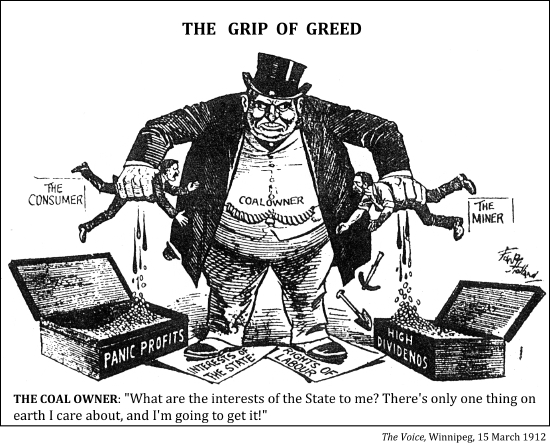

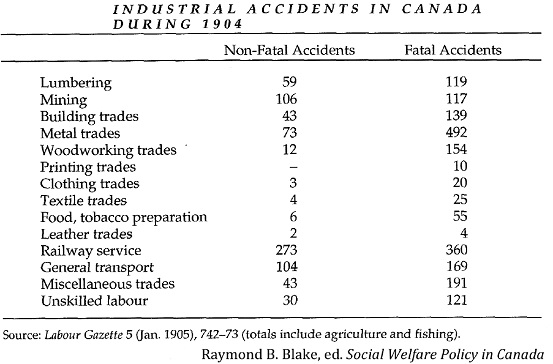
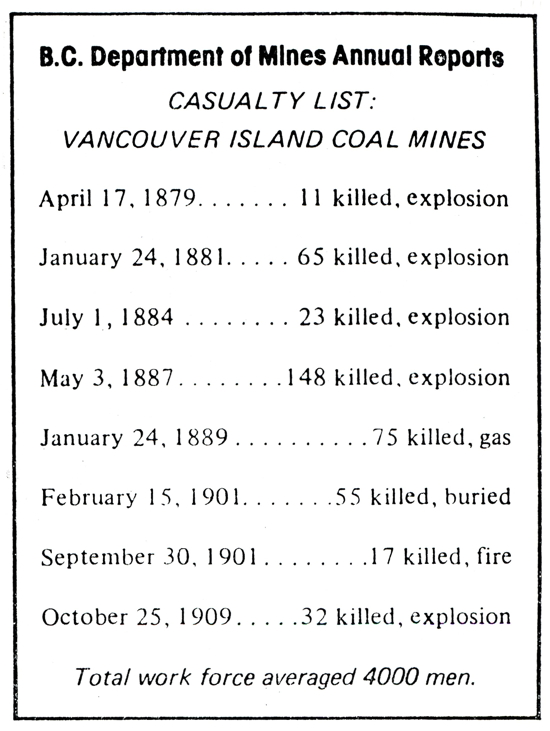
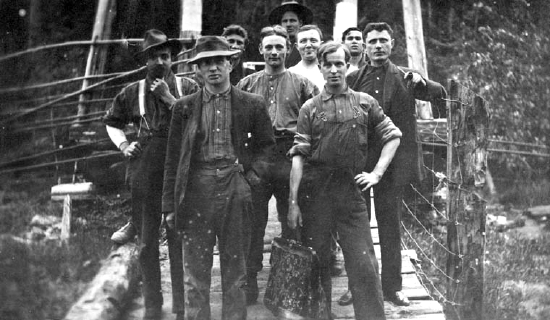
A group of workers; Canadian, American, Swedish, Italian and Scots in a C.N.R. construction Camp. Groupe de travailleurs : Canadiens, Américains, Suédois, Italiens et Écossais dans un baraquement de chantier des Chemins de fer nationaux du Canada. Frontier College, LAC C-046150, Agabob, BC, 1913
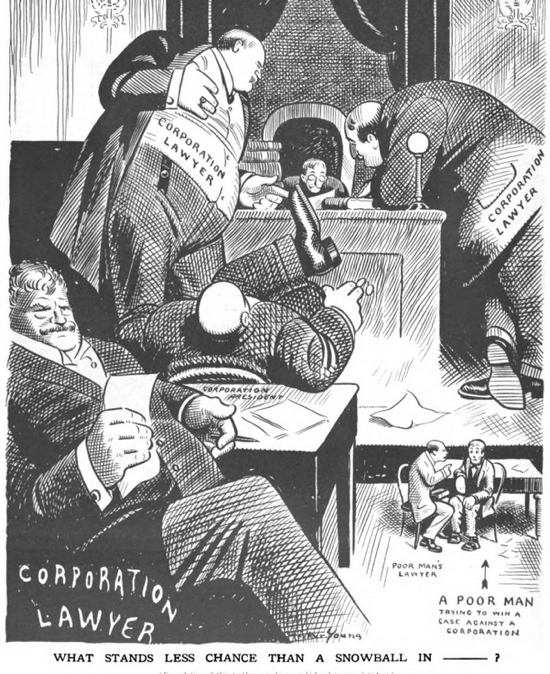
Puck, New York, 8 May 1913
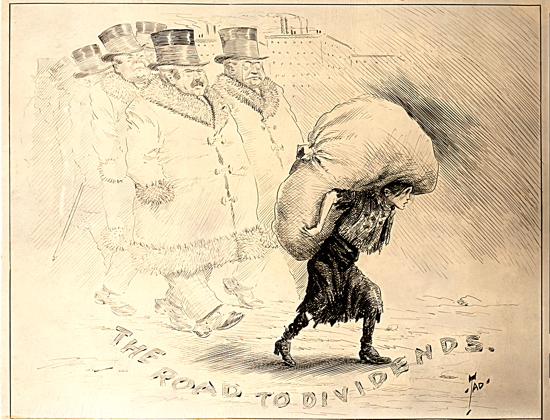
The road to dividends child labour cartoon, Lewis Wicks, 1913, Library of Congress, Public domain, via Wikimedia Commons
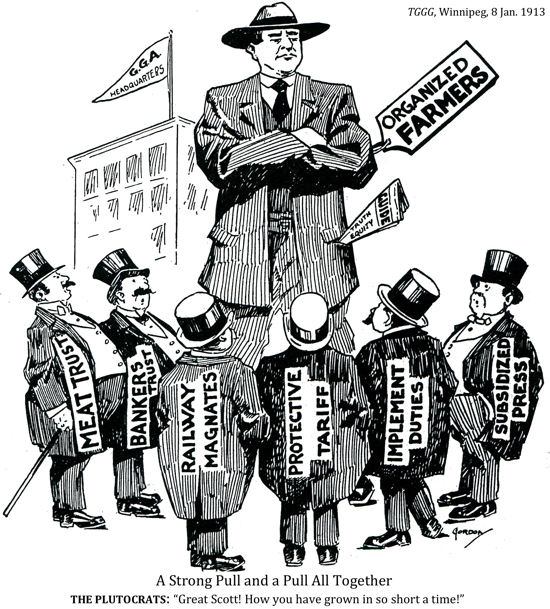
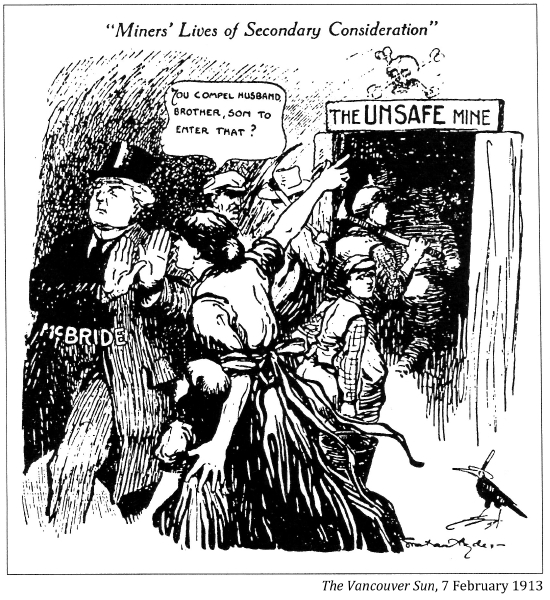
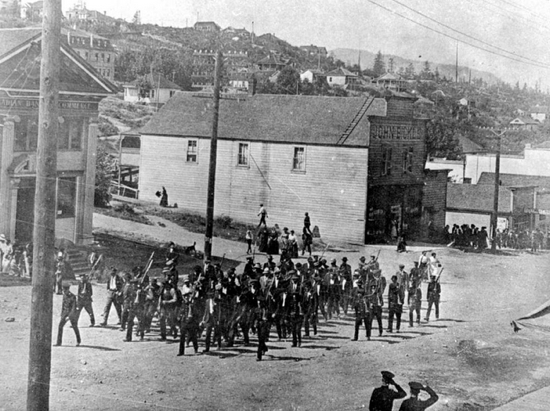
Ladysmith; Dunsmuir Coal Mine Strikers Being Marched To Jail, 1913, BC Archives E-01194,
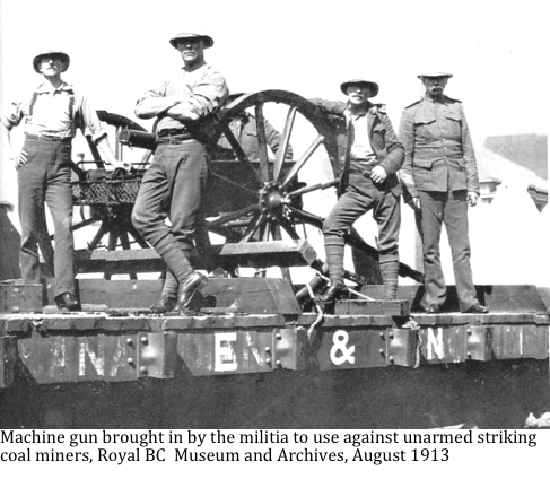
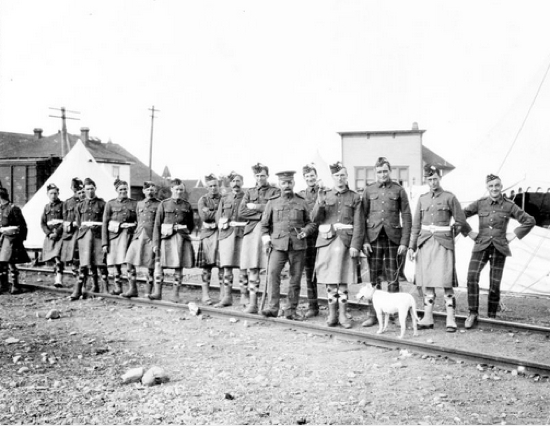
Members of the 72nd Regiment, Seaforth Highlanders of Canada, and their mascot; part of the Nanaimo civil aid force, sent to break the strike by Dunsmuir coal miners, 1913, BC Archives A-03183
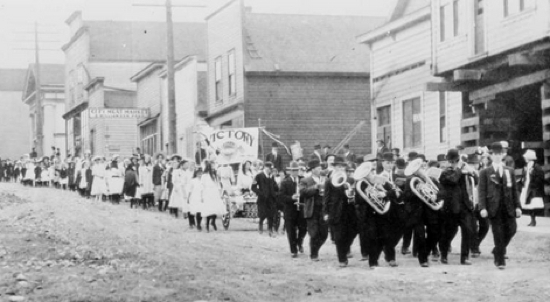
Mineworkers. their wives and children, parade in Ladysmith during the "Big Strike"; Dunsmuir coal miners, 1913, BC Archives E-02631
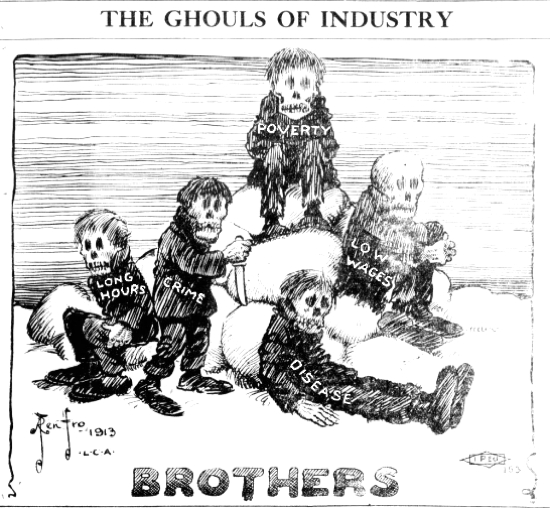
The Labor Journal, Everett, Wash. 23 May 1913
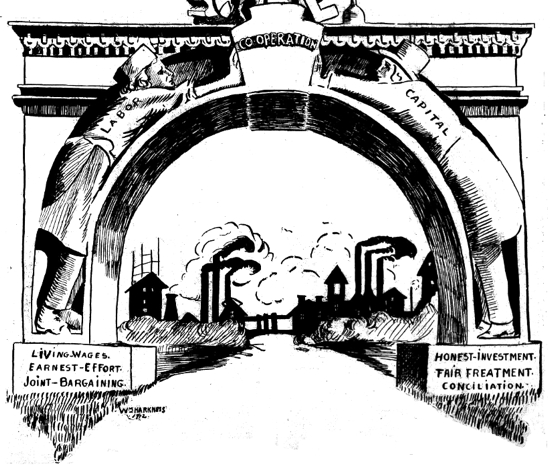
The Labor World, Duluth, Minn. 30 August 1913
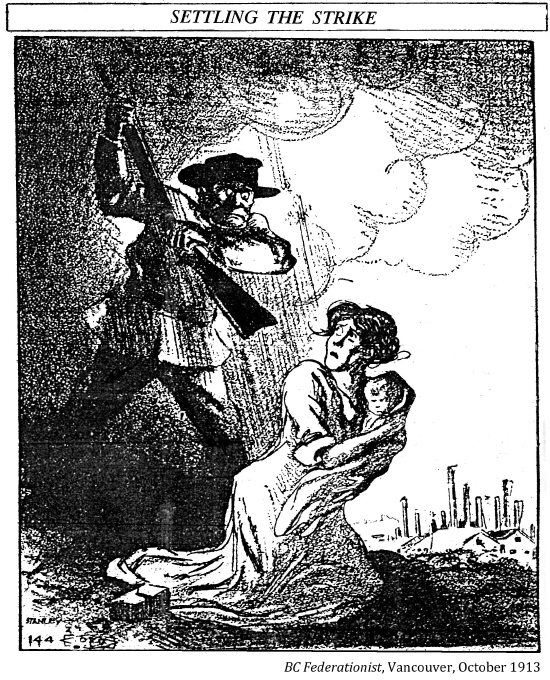
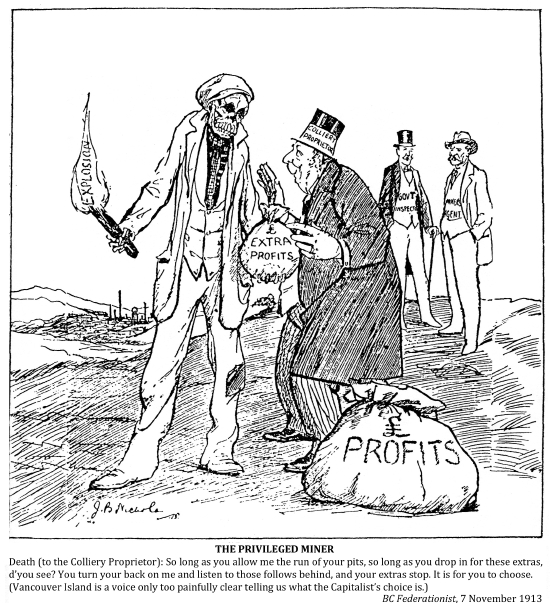
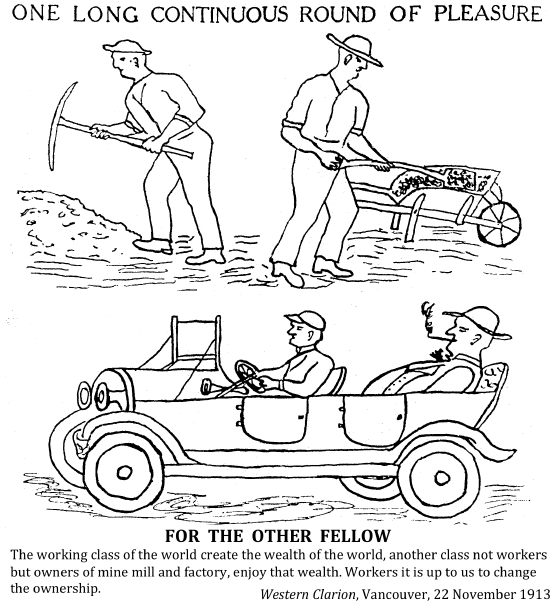
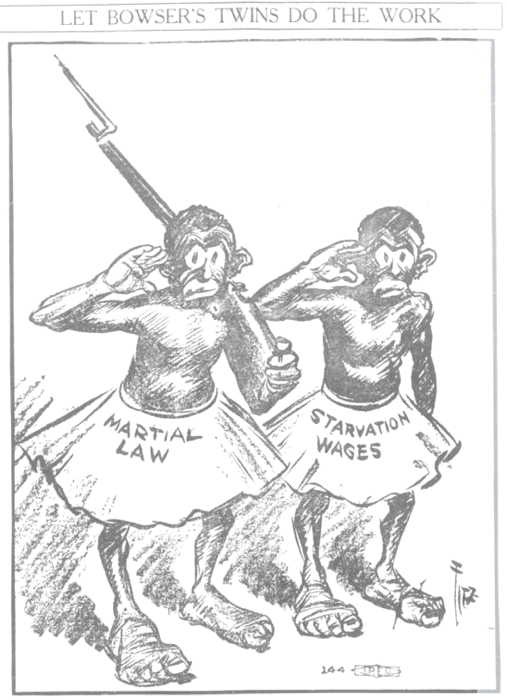
The British Columbia Federationist, Vancouver, 28 November 1913
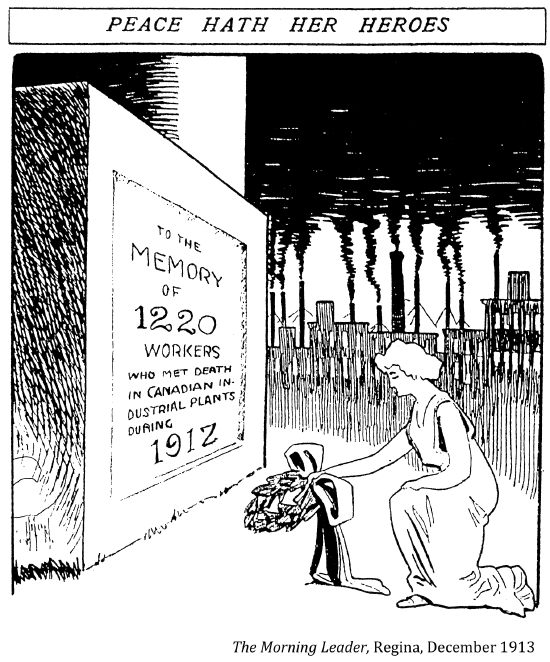
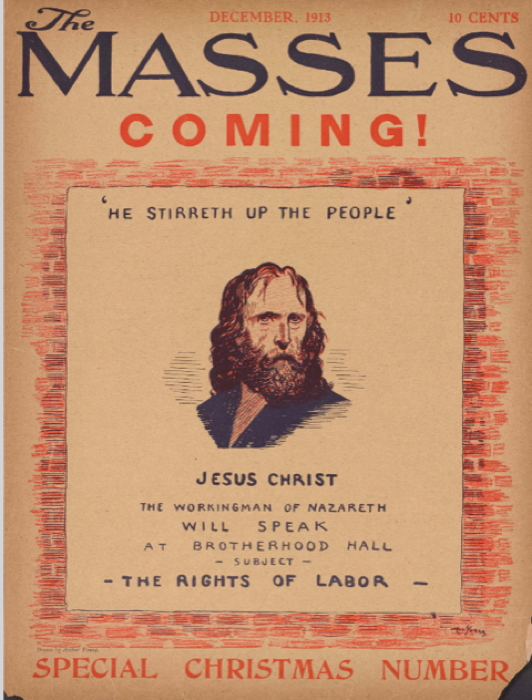
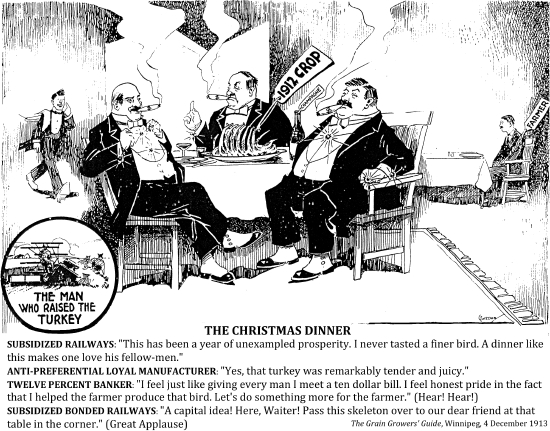
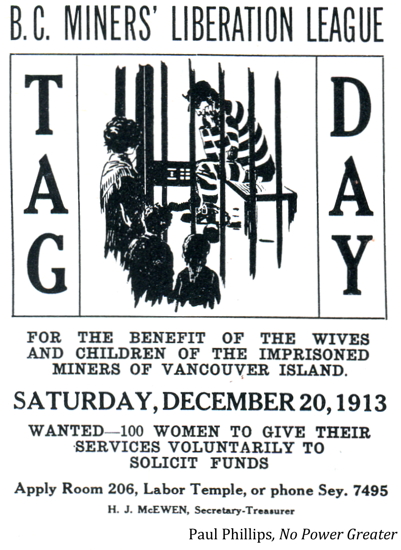
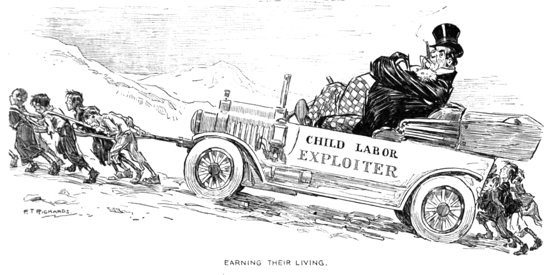
Life, New York, 8 January 1914
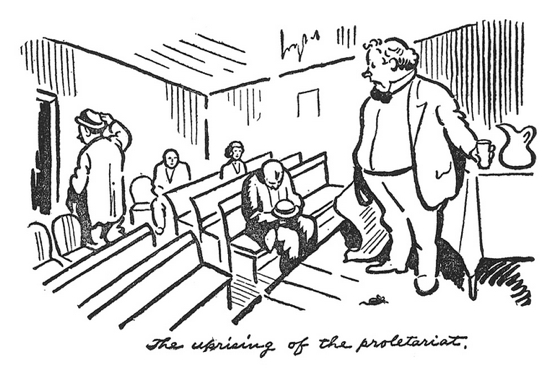
Art Young, 1914?
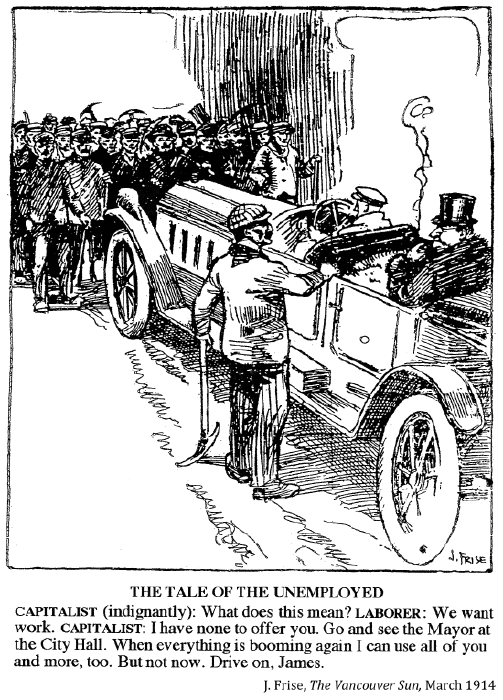
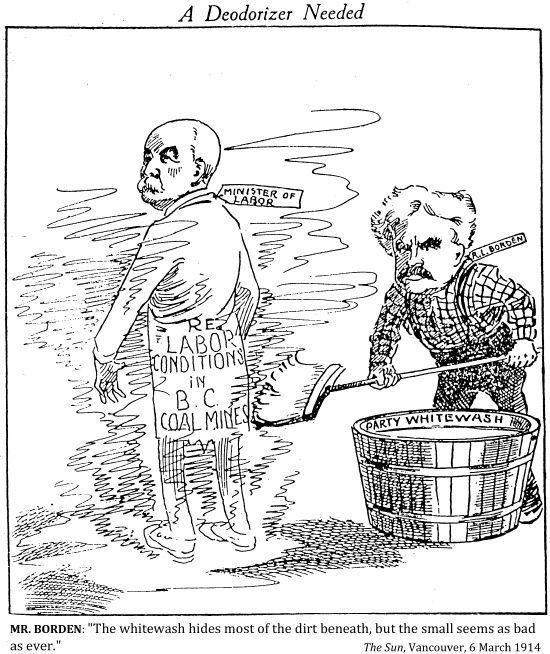
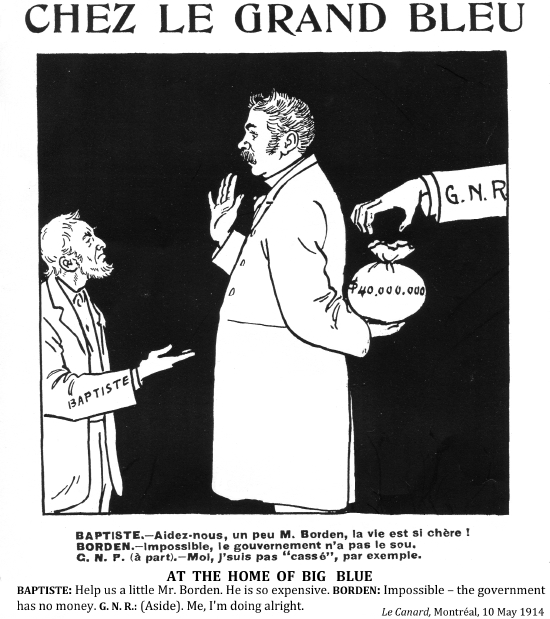
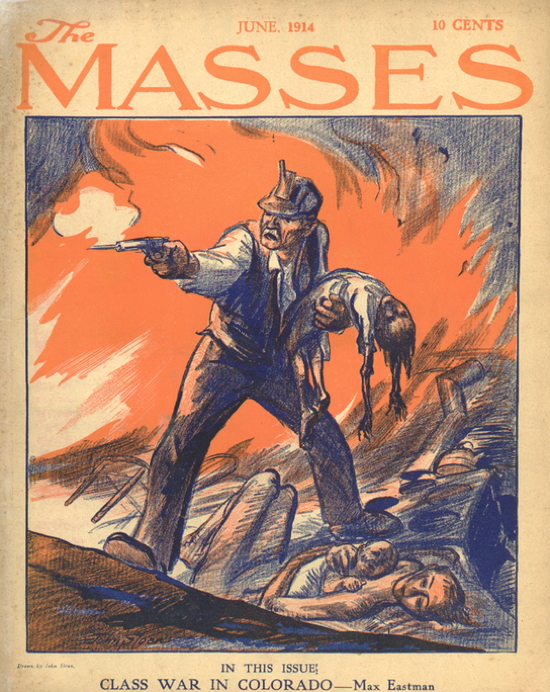
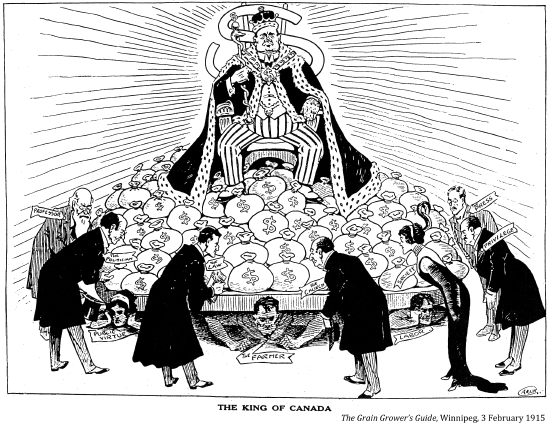
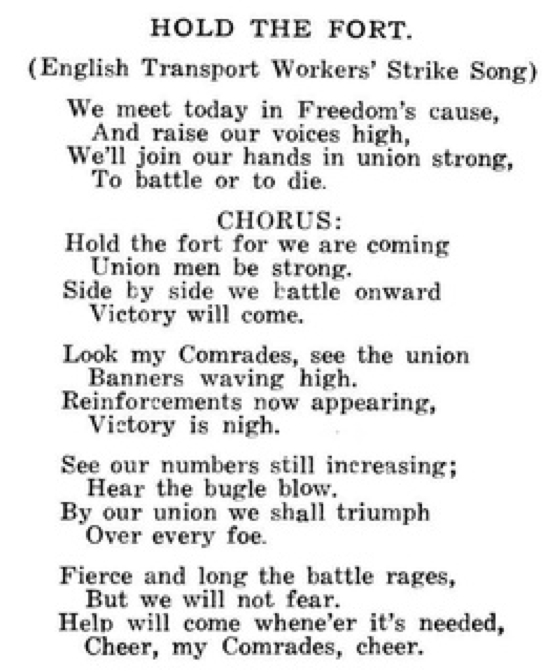
Hold the Fort, Joe Hill, I. W. W. Songs to Fan the Flames of Discontent, Joe Hill, Cleveland, March 1916
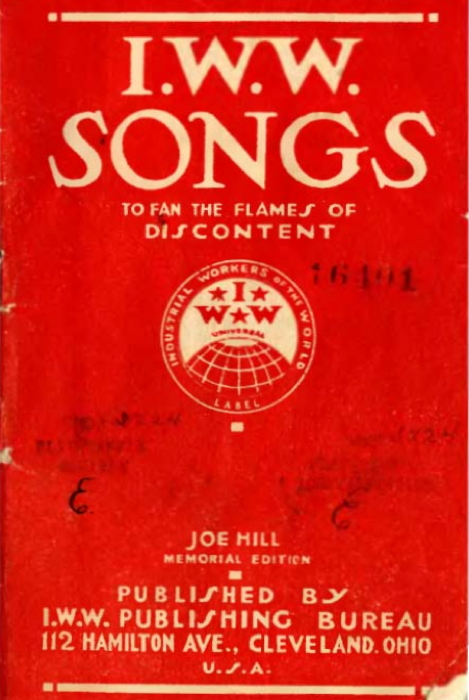
I. W. W. Songs to Fan the Flames of Discontent, Joe Hill, Cleveland, March 1916
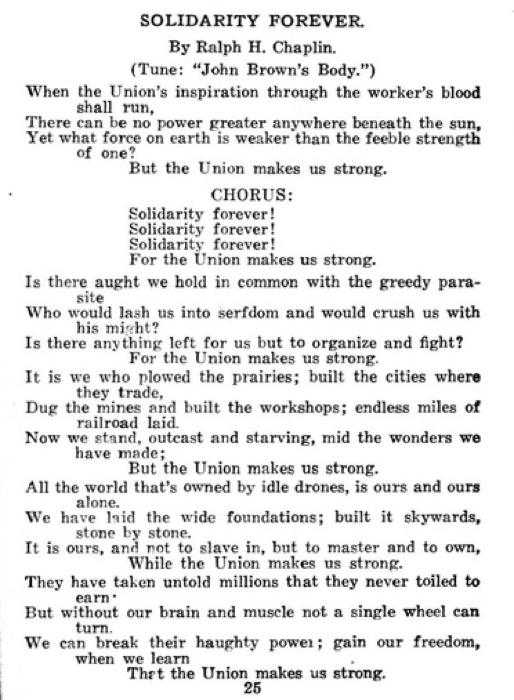
Solidarity Forever, I.W.W. Songs to Fan the Flames of Discontent, Joe Hill, Cleveland, March 1916
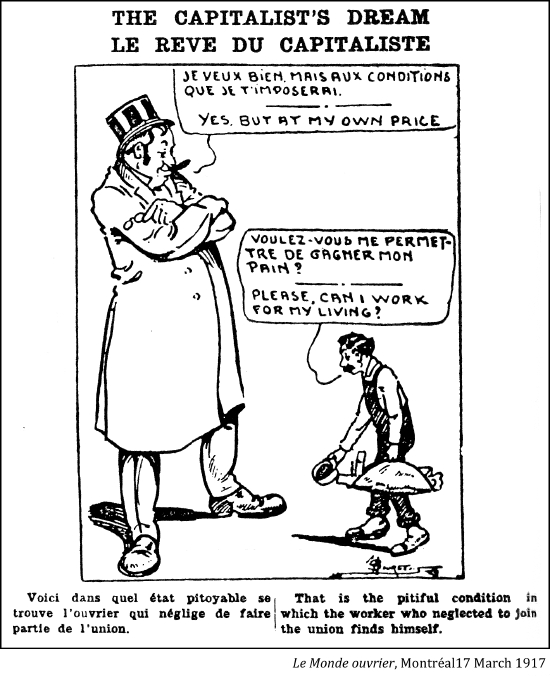
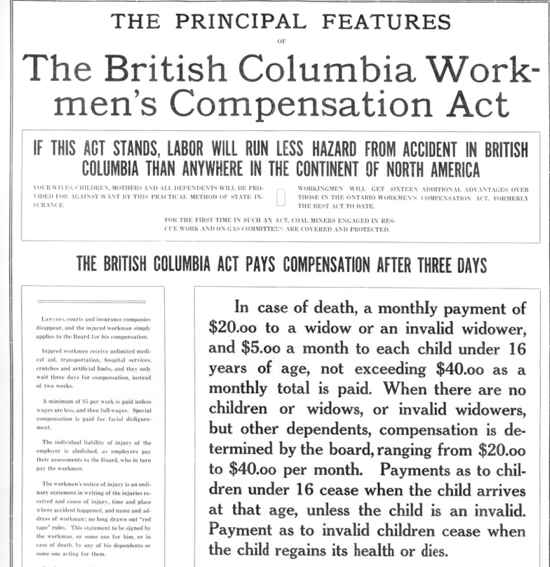
The British Columbia Federationist, Vancouver, 8 September 1916
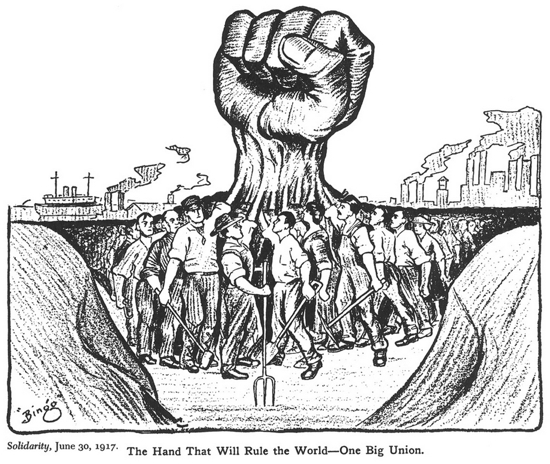
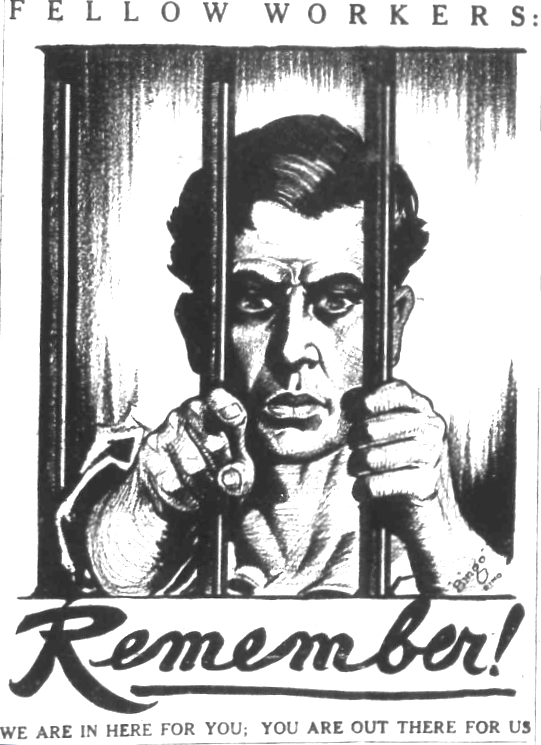
Solidarity, Chicago, September 1917
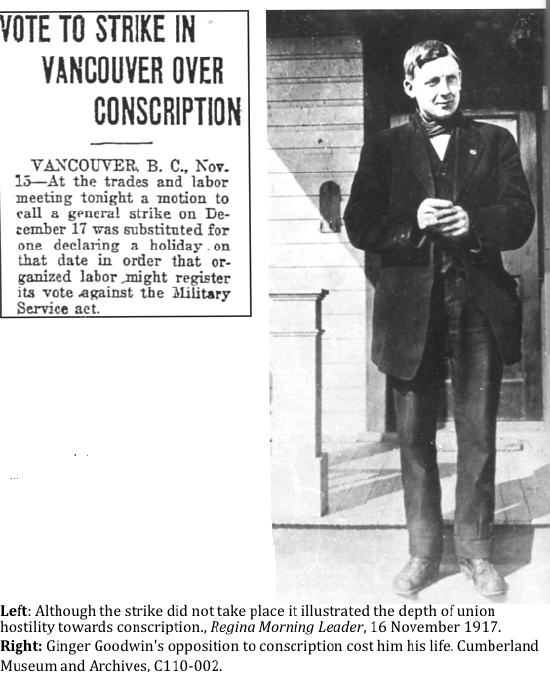
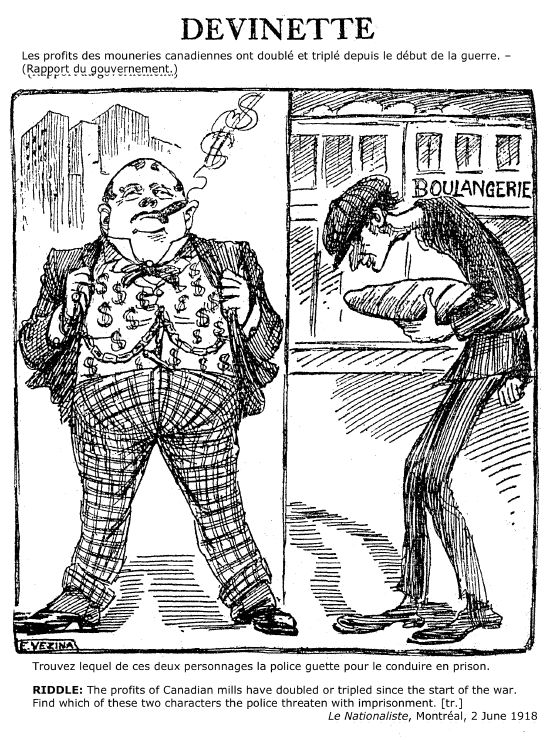
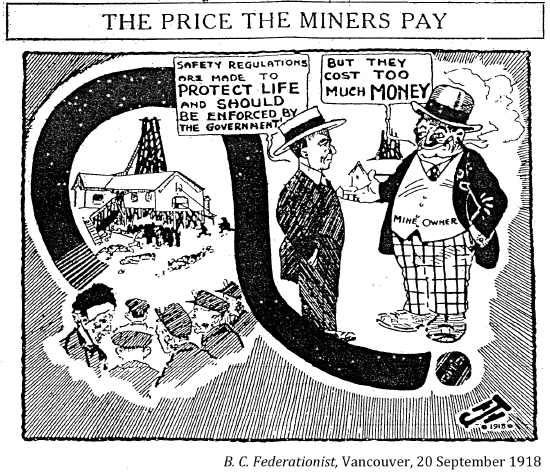
"The working class and employing class have nothing in common. There can be no peace as long as hunger and want are found among millions of working people and the few, who make up the employing class, have all the good things of life."
Preamble of the Industrial Workers of the World 1918?
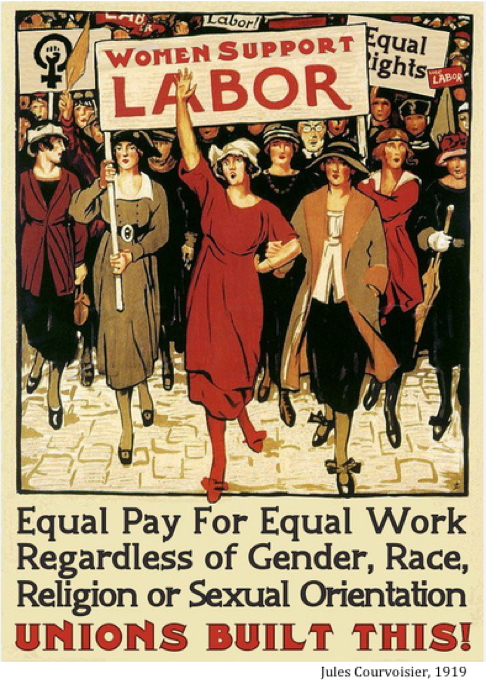
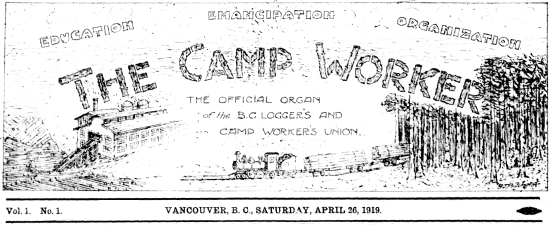
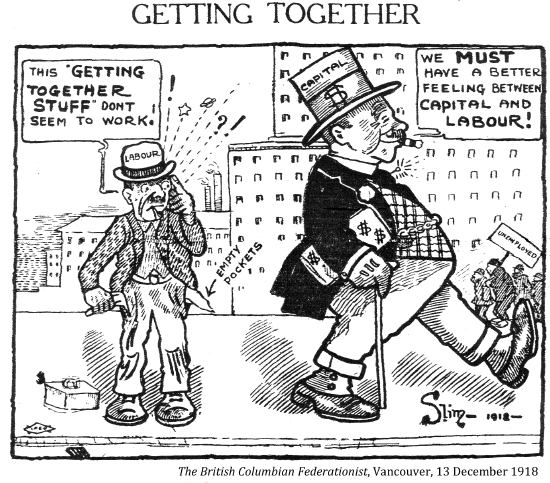
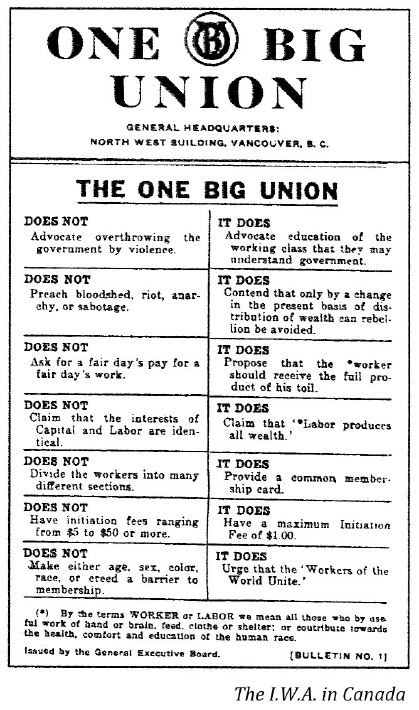
"In the hardrock mines and the lumber industry the story was the same. Long hours, low wages, a high-ball system of speedup, utter disregard for safety conditions and an uniform hatred and opposition to trade unionism. . . Previous to 1919 [lumber workers were] at the mercy of their bosses who were exploited by the most grasping and greedy plunderbund that was ever let loose on the natural resources of this or any other country. The life of the logger was worse than chattel slavery. From dark to dark, 10, 12, and 14 hours of slavish, backbreaking soul-destroying labor; the vilest of food. . . overloaded bunkhouses with vermin-infested, muzzle-loading, double-deck bunks, three decks in some cases, and for which the logger had to pack his own blankets; no sanitary conditions or wash-houses; swindled and robbed by employment sharks, grafting foremen and the steamboat companies."
Tom McEwen, He Wrote For Us The Story of Bill Bennett, pioneer socialist journalist, 1951
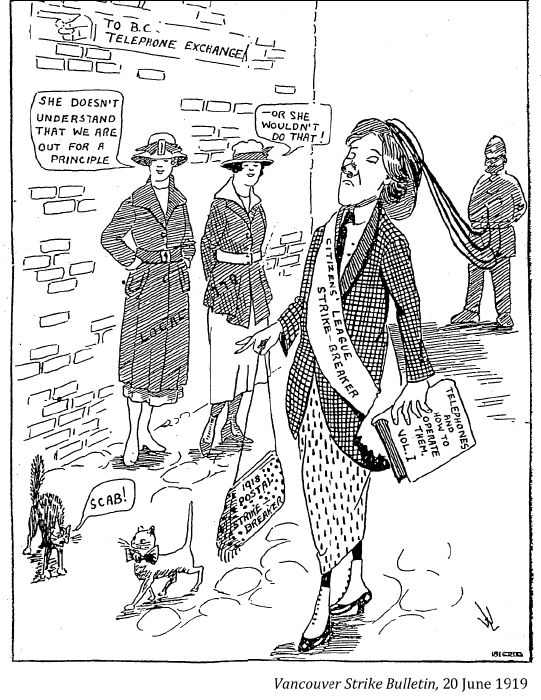
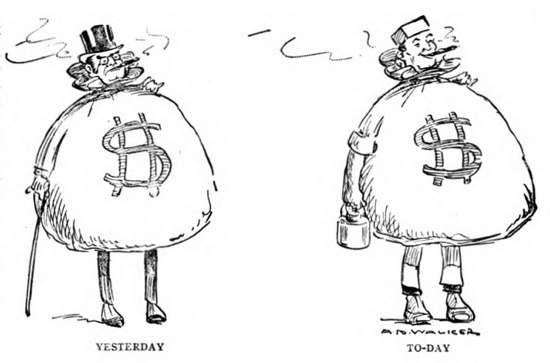
A. B. Walker, Life, NY, 30 October 1919
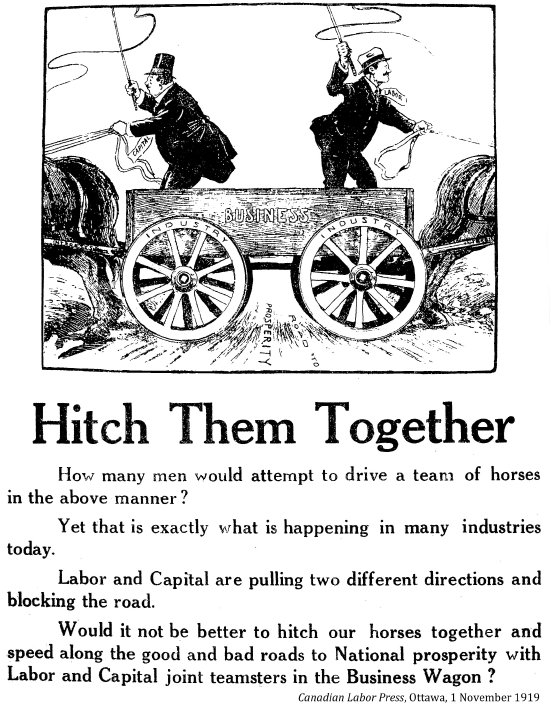
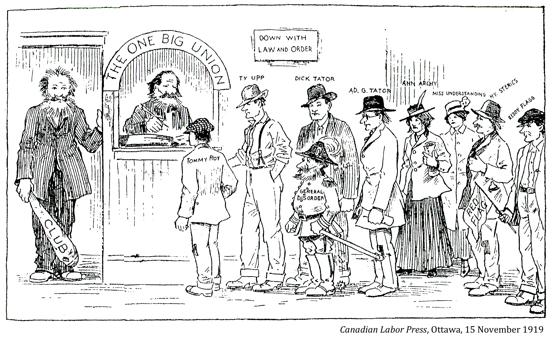
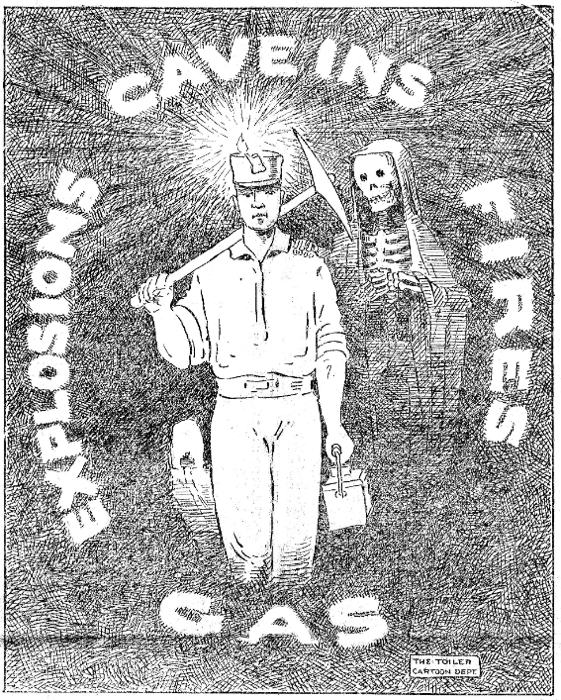
The Toiler, Cleveland, 17 December 1919
.jpg)
"Before many weeks [in 1919-20] their numbers [Lumber Workers' Industrial Union] had grown so that they began to tell the bosses things. They raised wages; they established the eight-hour day; they compelled the boss loggers to tear down the old disease-breeding shacks and build new ones with shower baths and drying houses; they made companies put in beds for every man; they forced the government to enforce the sanitary regulations already in the statute books; they filled the camps with working class literature and raised the general level of comfort and intelligence of the men who worked in the woods."
Tom McEwen, He Wrote For Us The Story of Bill Bennett, pioneer socialist journalist, 1951
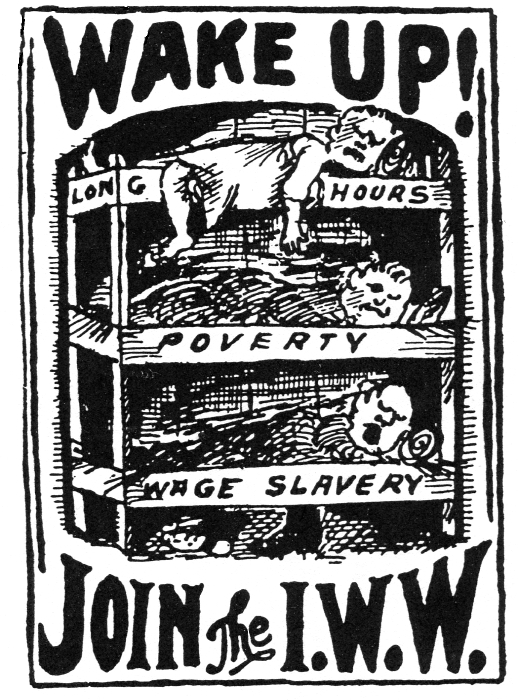
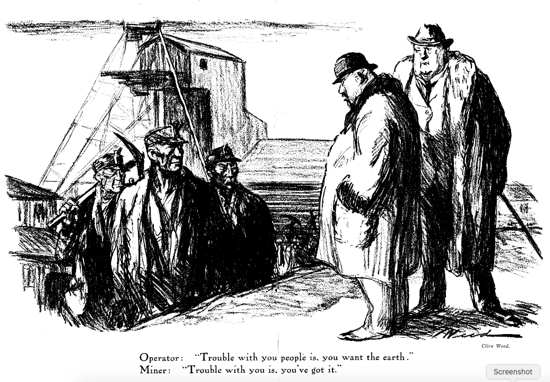
The Liberator, New York, January 1920
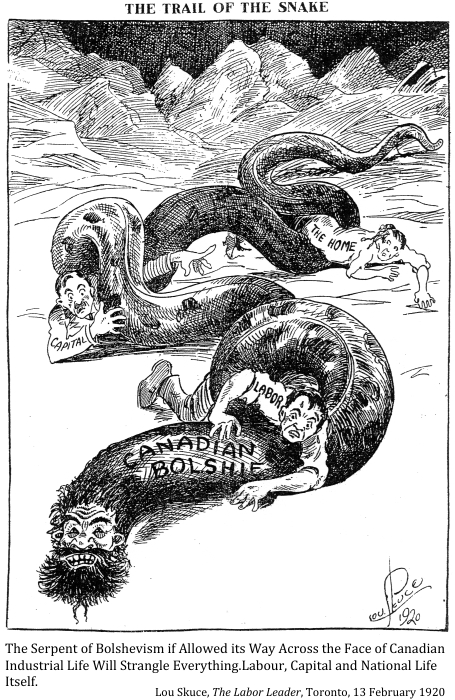
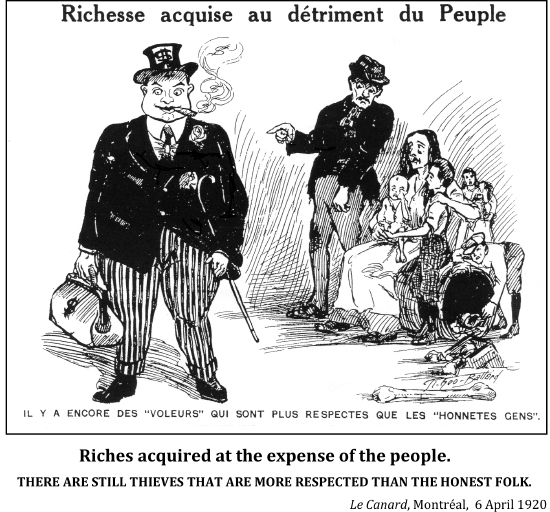
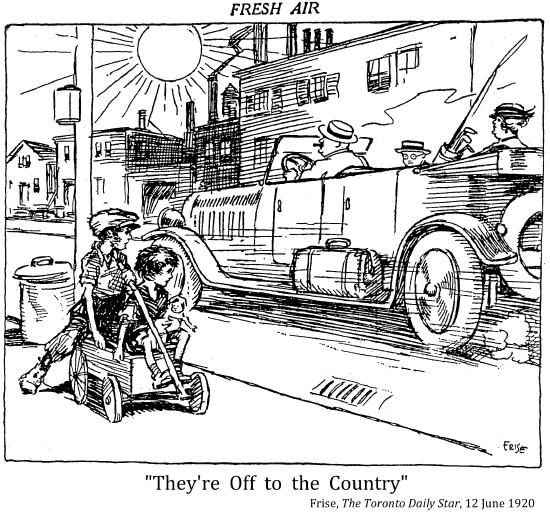
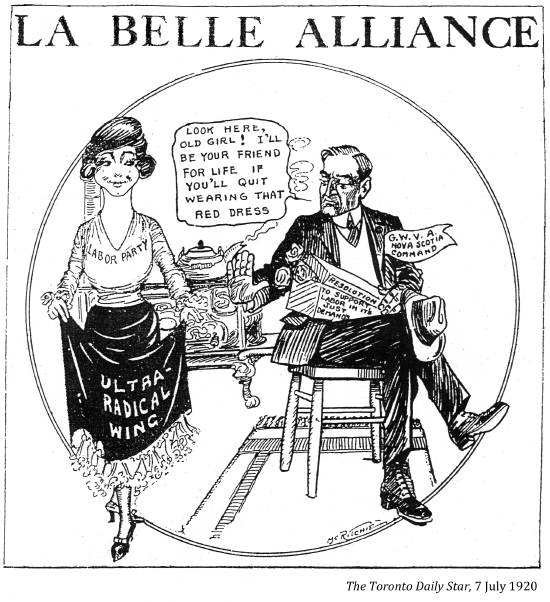
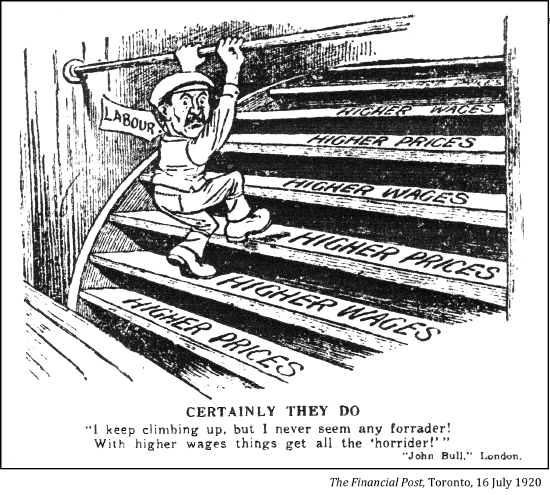
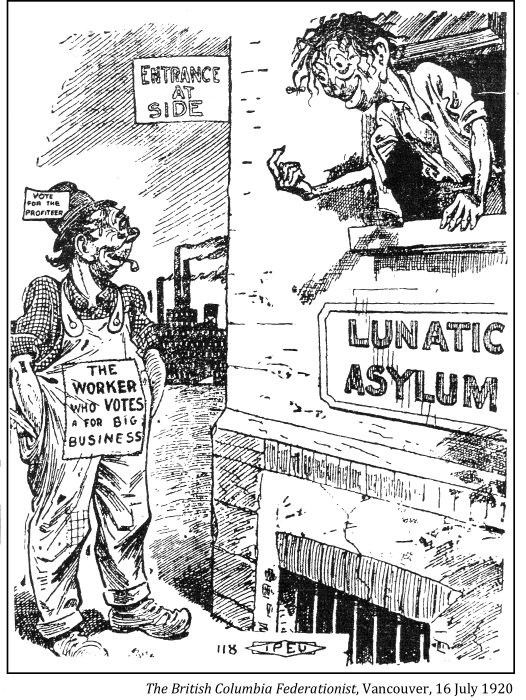
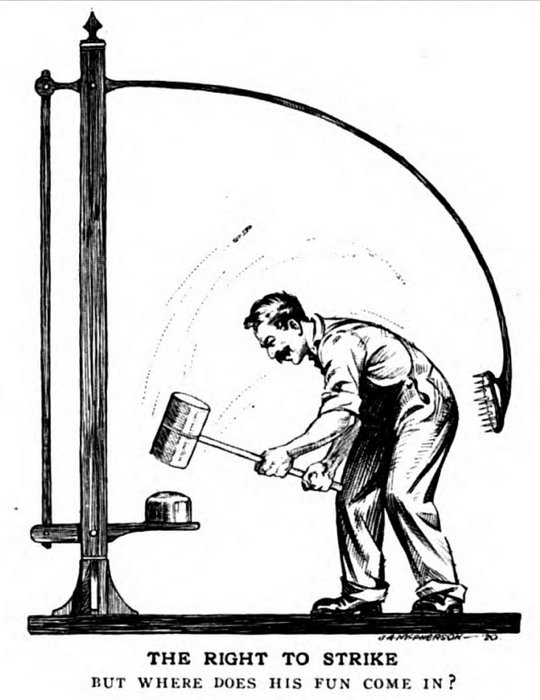
Life, New York, 22 July 1920
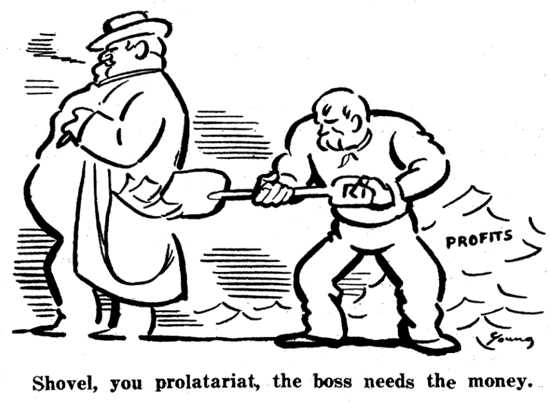
Art Young. The Liberator, New York, August 1920
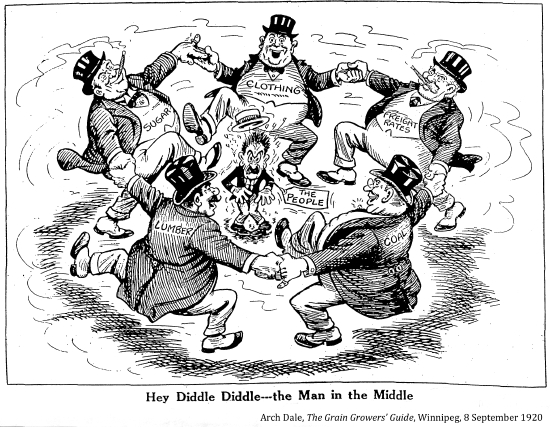
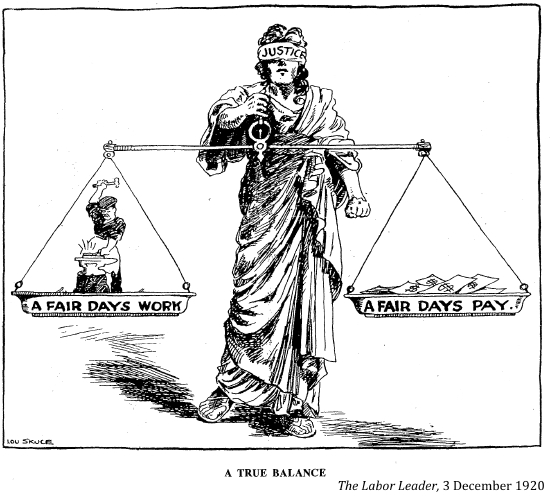
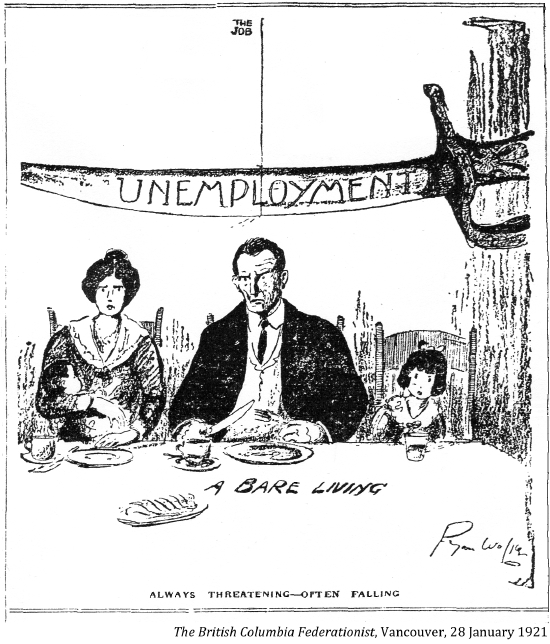
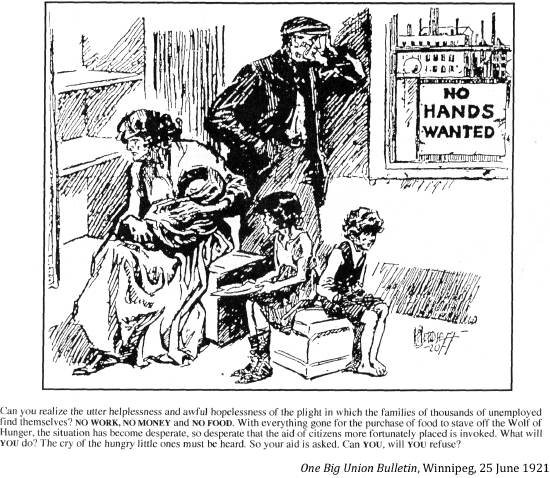
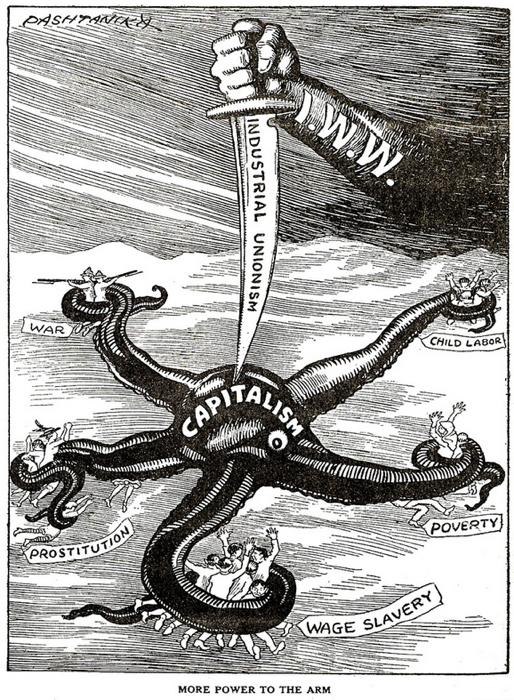
Pashtanika, Industrial Pioneer, October 1921
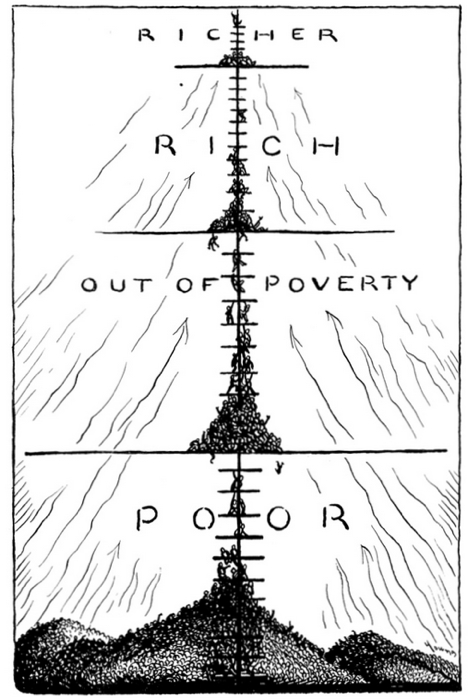
Art Young, 1921?
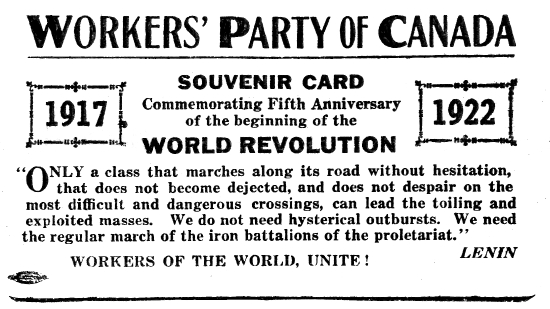
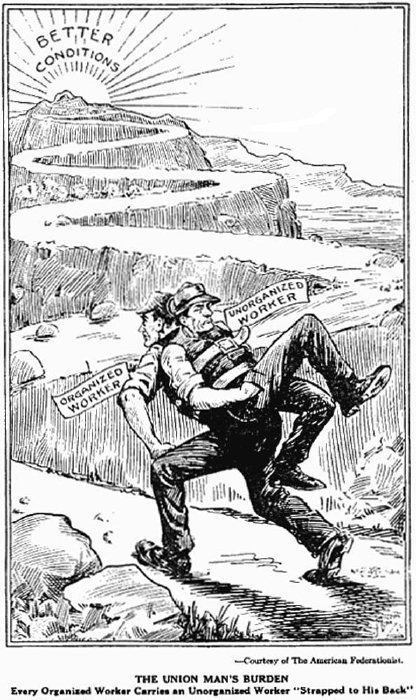
The Railroad Trainman, the American Federationist, 1922, Public domain, via Wikimedia Commons
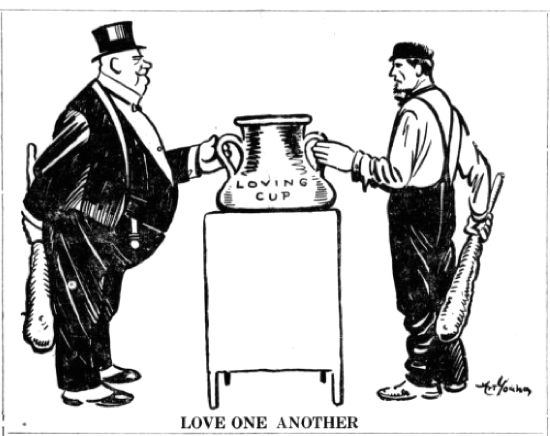
The Labor Journal, Everett, Wash. 3 February 1922
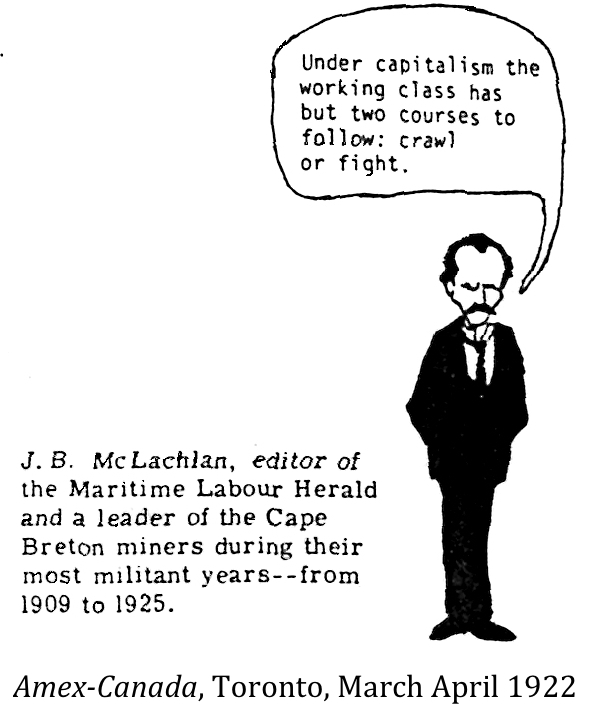
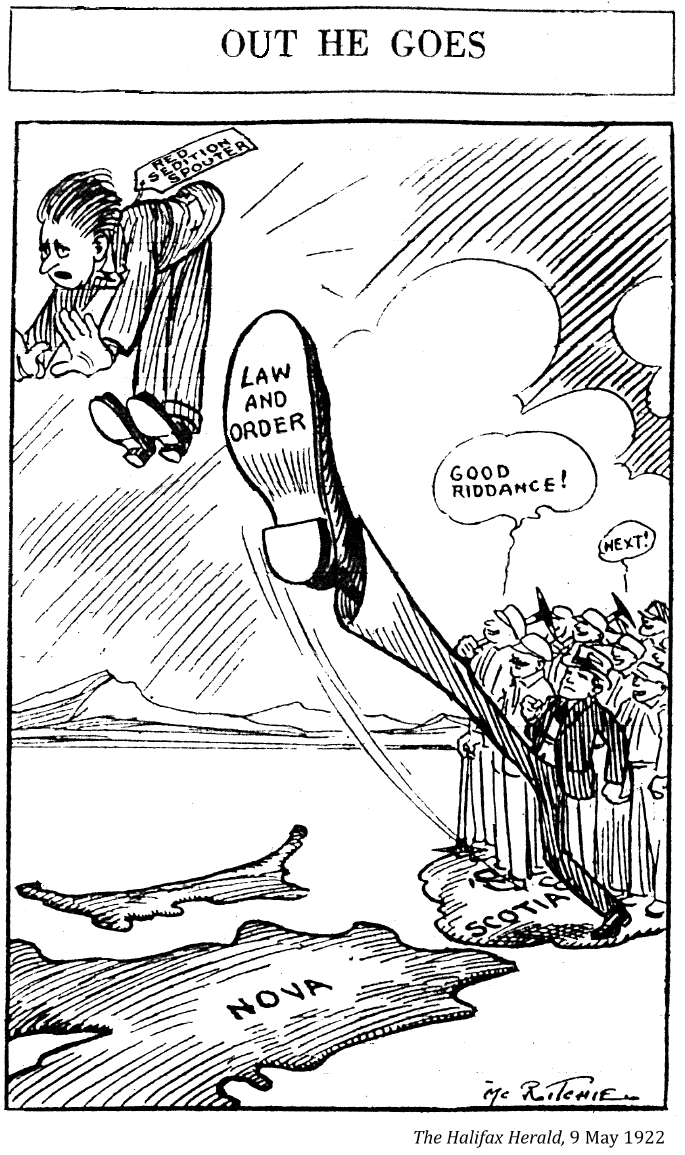
"These years should have hammered home to your inmost soul that under capitalism the working class has but two courses to follow: crawl or fight."
J. B. McLachlan
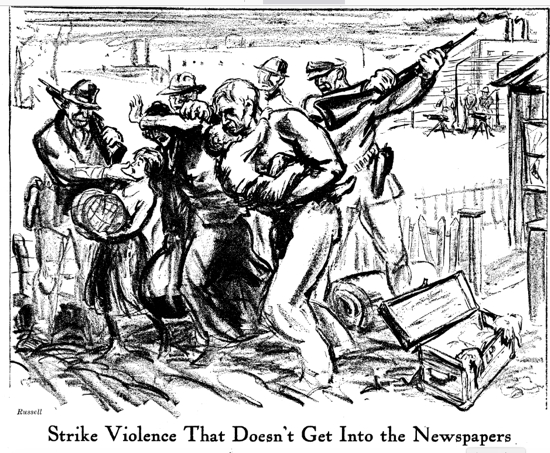
The Liberator, New York, September 1922
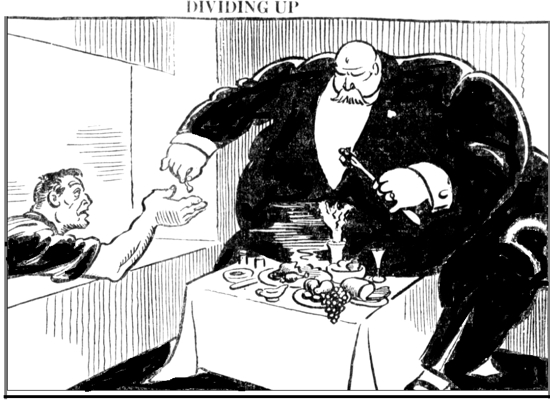
The Labor Journal, Everett, Wash. 6 October 1922
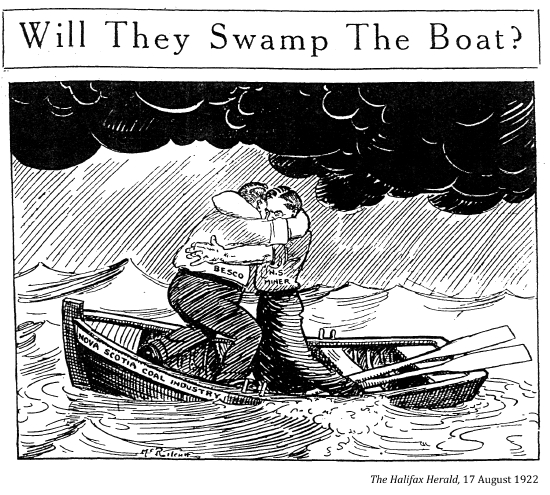
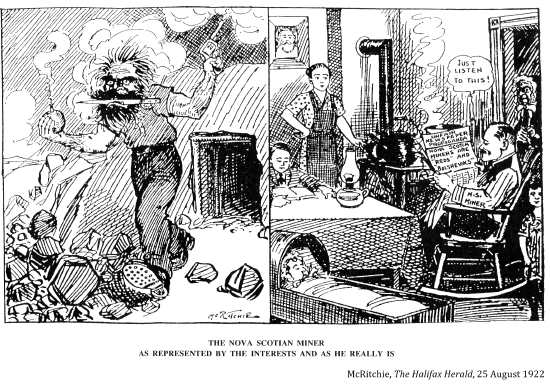
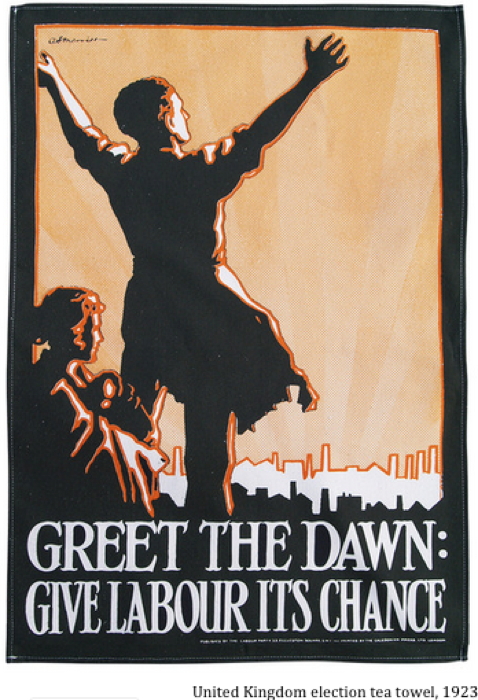
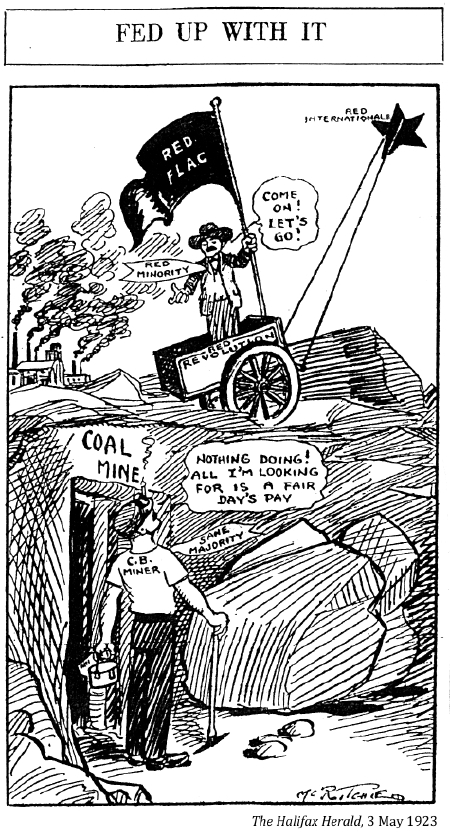
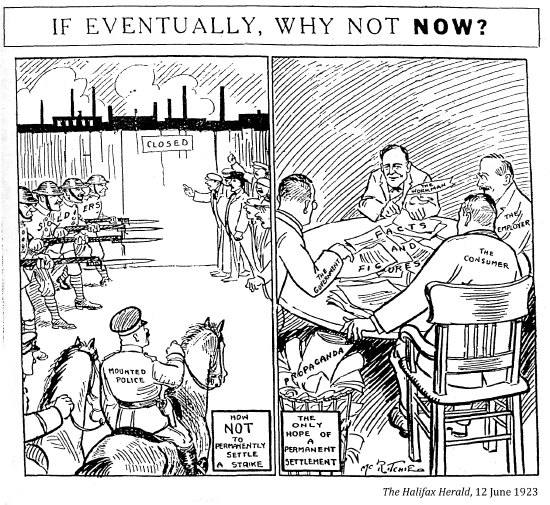
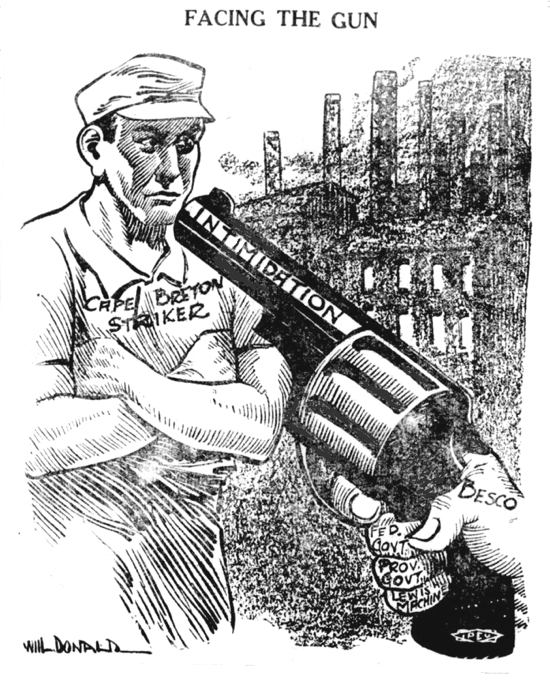
The British Columbia Federationist, Vancouver, 20 July 1923
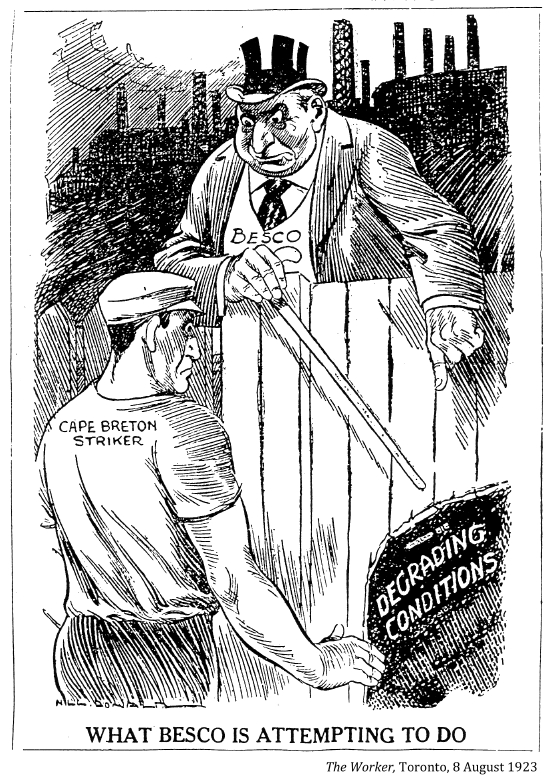
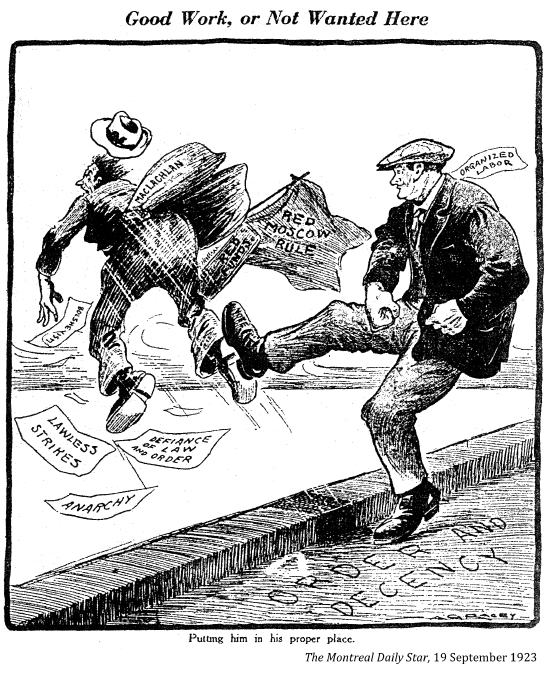
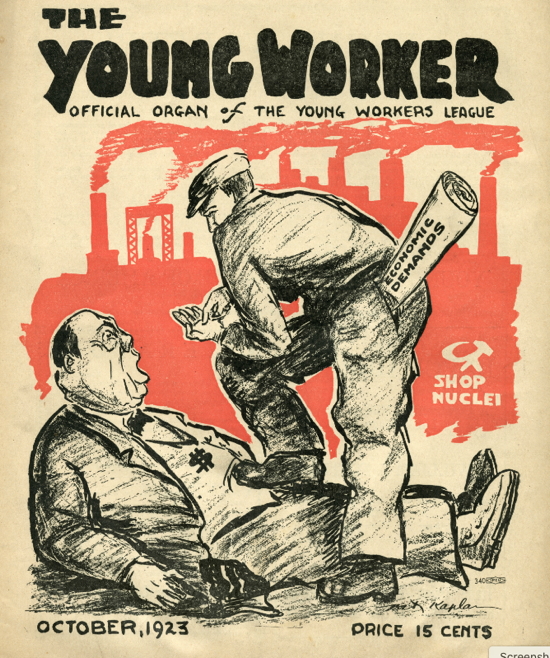
The Young Worker, Chicago, October 1923
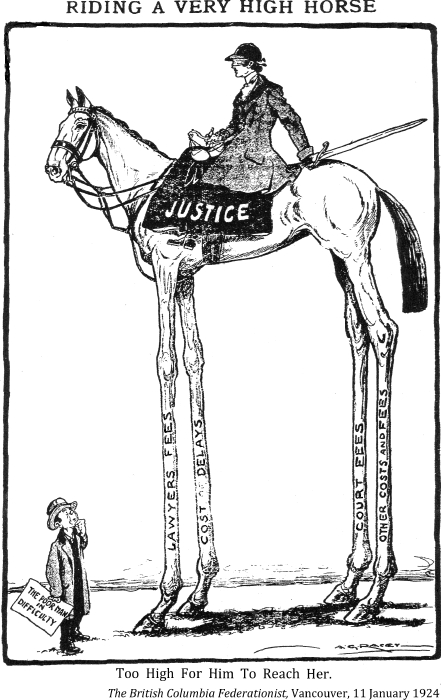
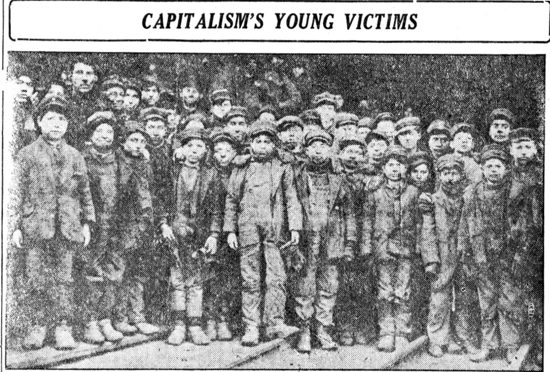
The Young Worker, Chicago, 1 June 1924
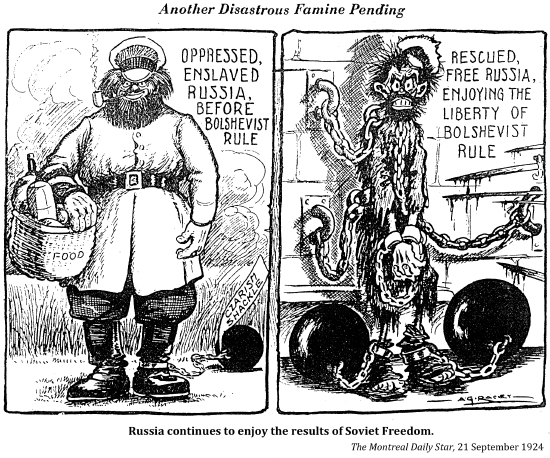
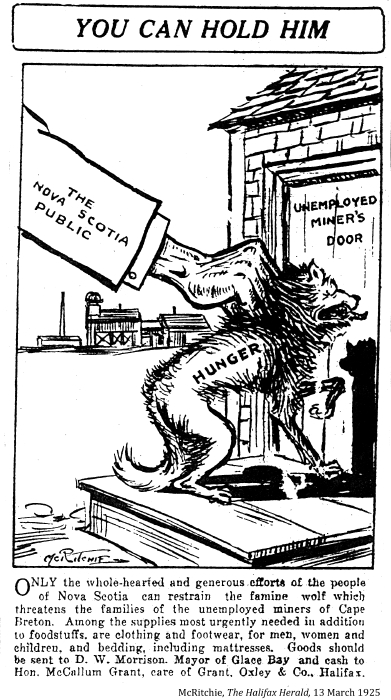
"[After two days in Glace Bay] nobody looked red to me. I think if I lived there long I would be a lot redder than anything I saw."
Agnes Macphail, H of Cs, 30 March 1925
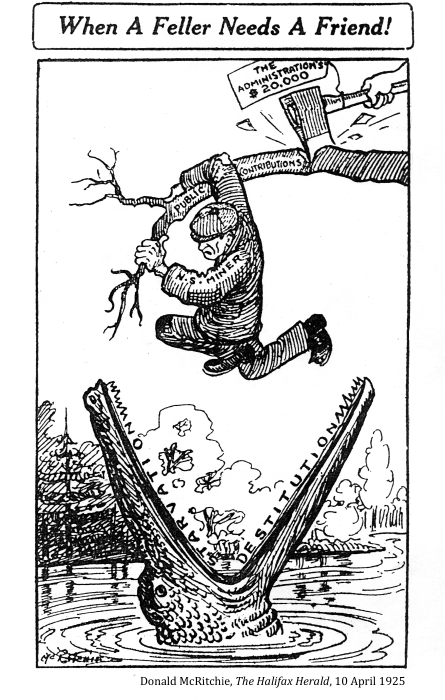
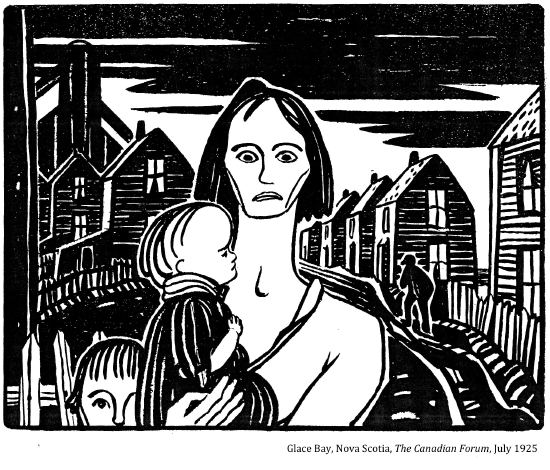
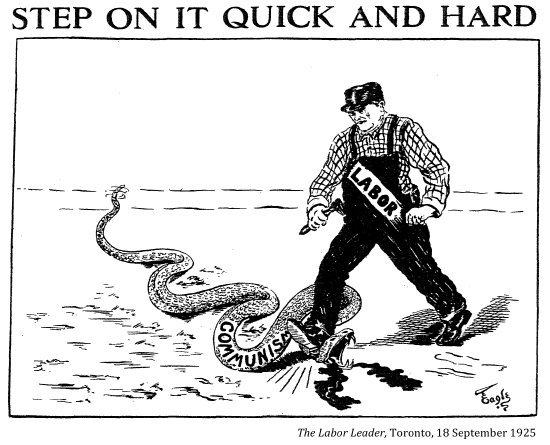
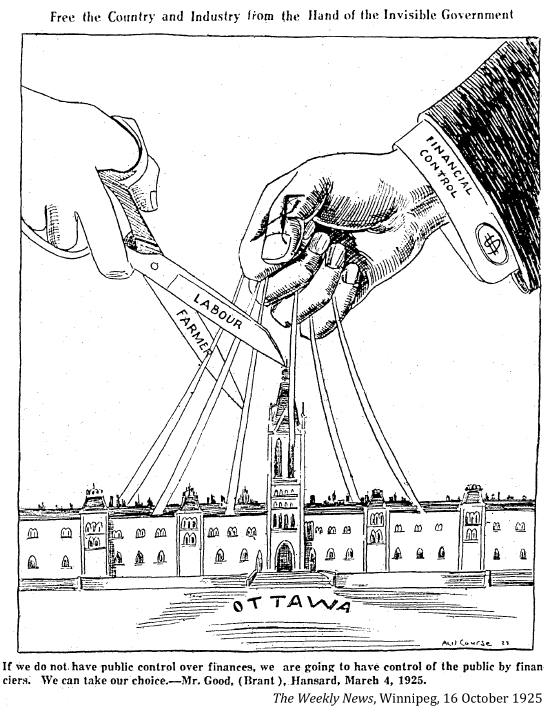
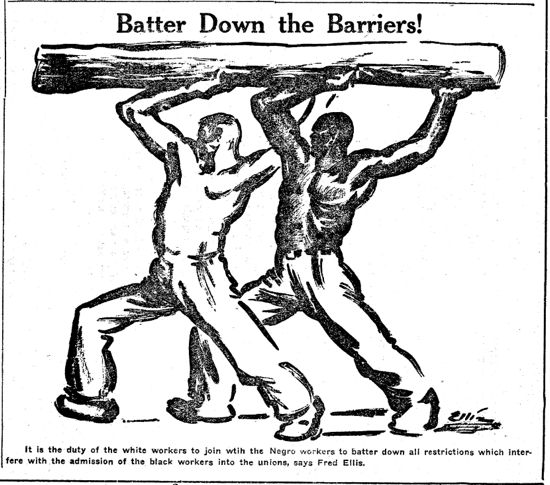
Ellis, The Daily Worker, New York, 30 January 1926
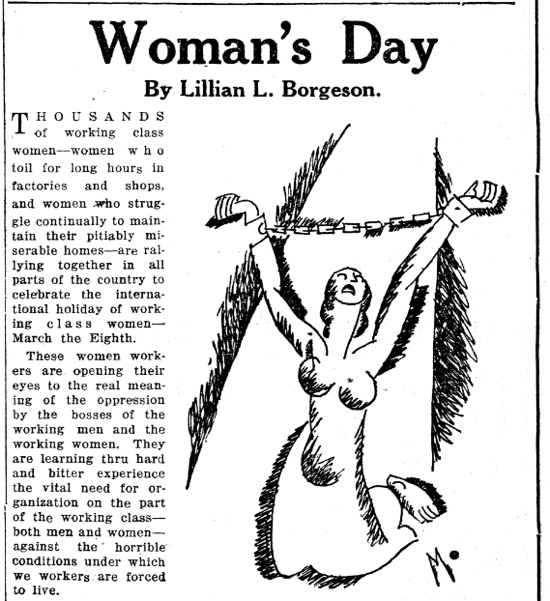
Lydia Gibson, The Daily Worker, New York, 27 March 1926
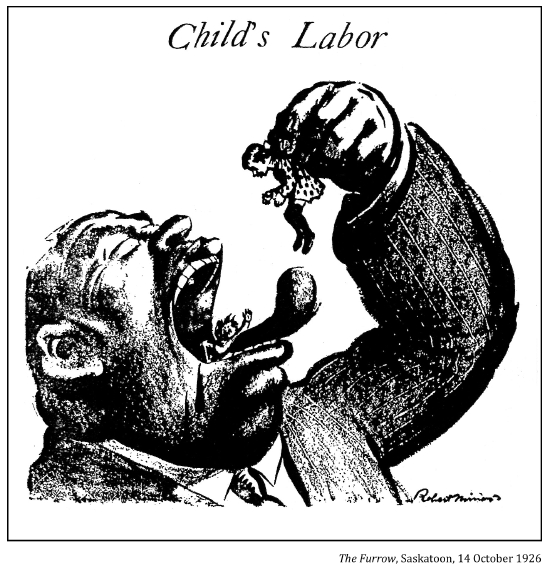
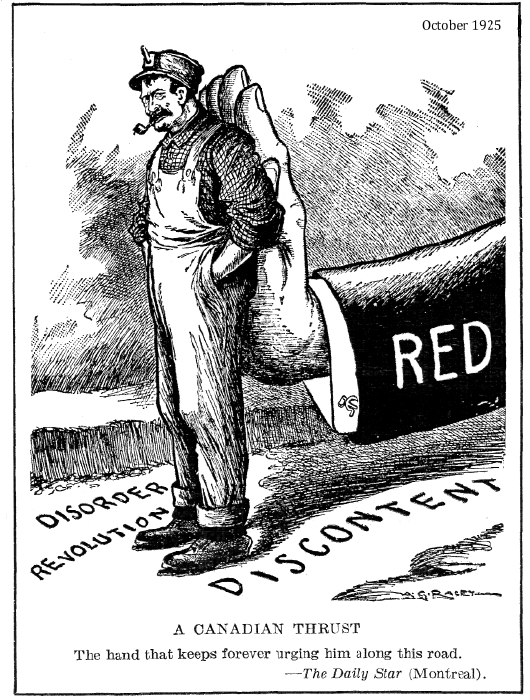
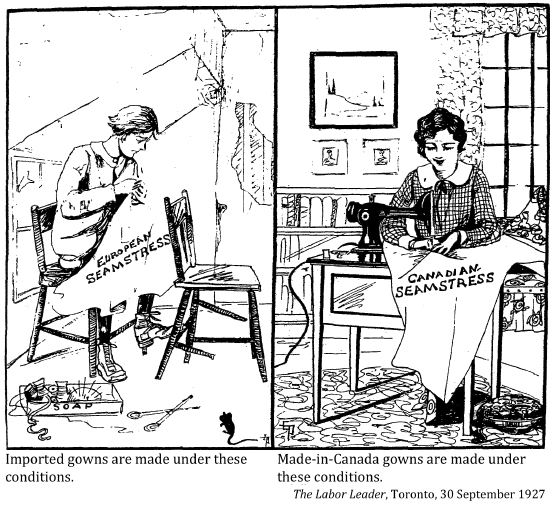
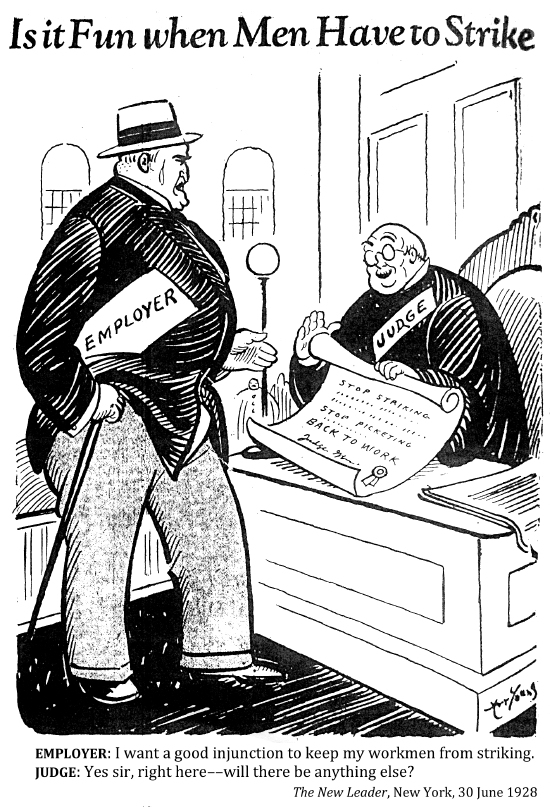
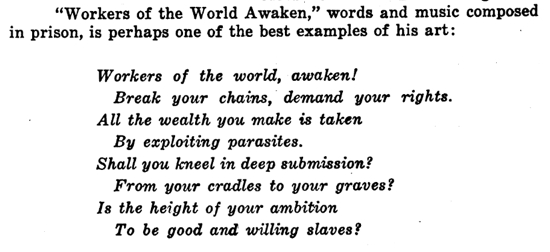
Joe Hill, New Masses, New York, 8 January 1929
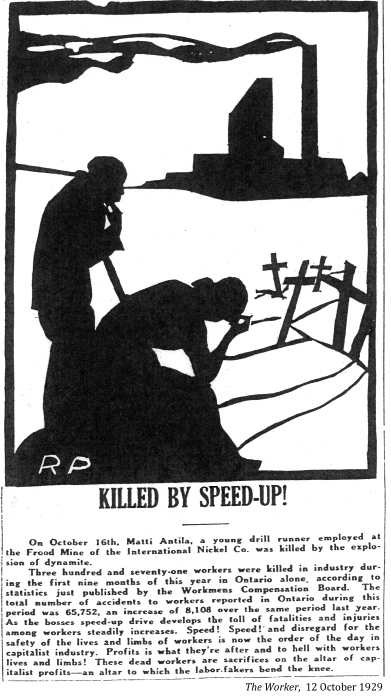
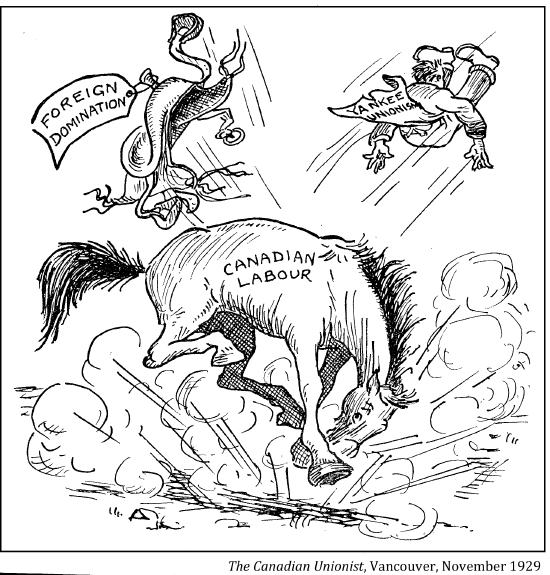
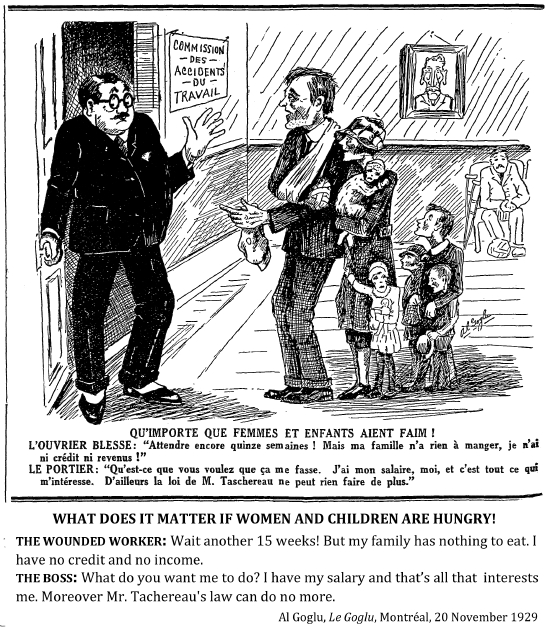
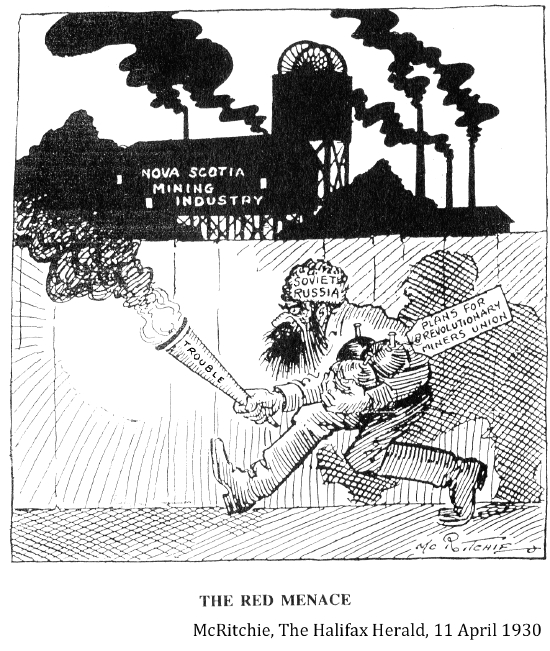
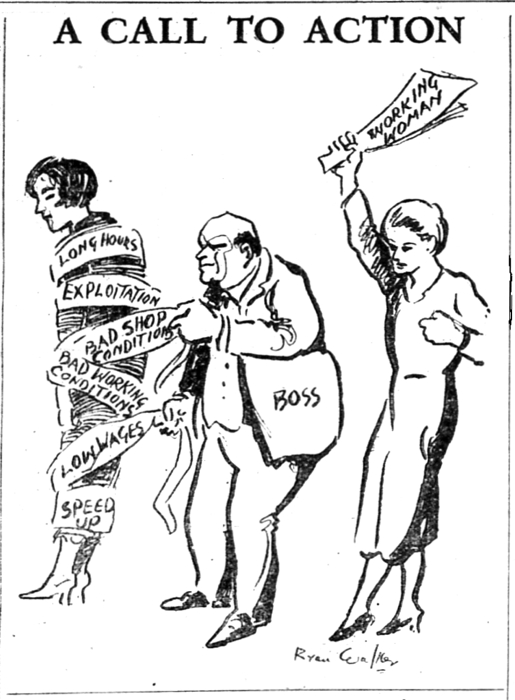
The Working Woman, New York, October 1930
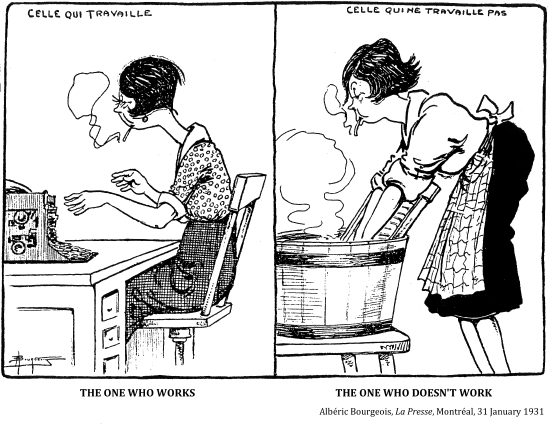
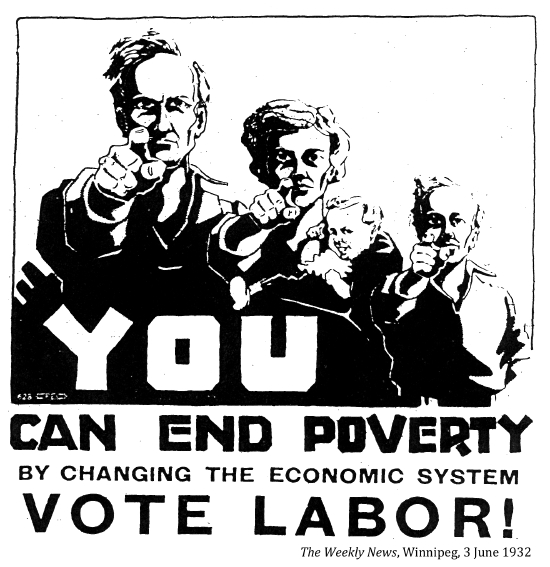
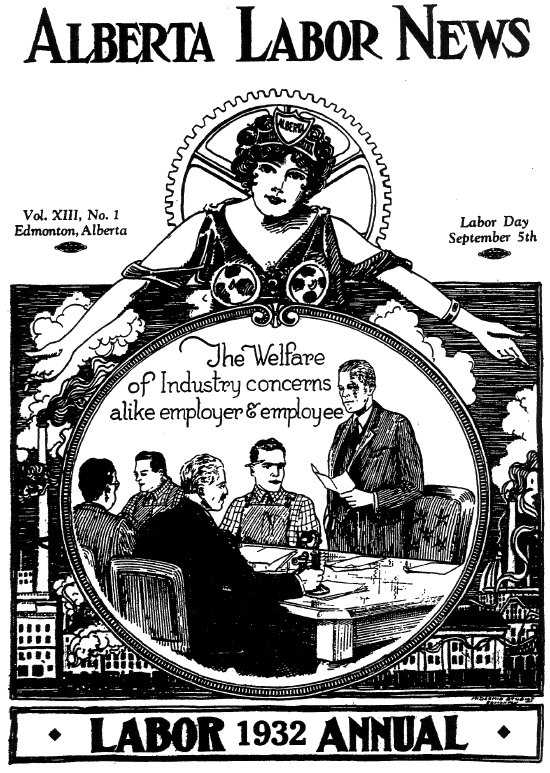
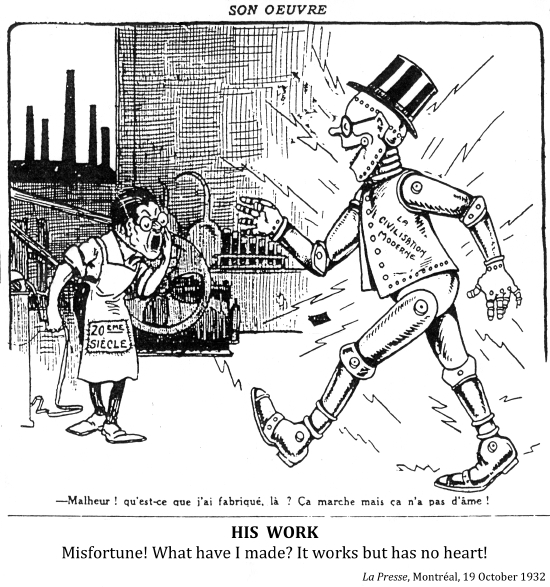
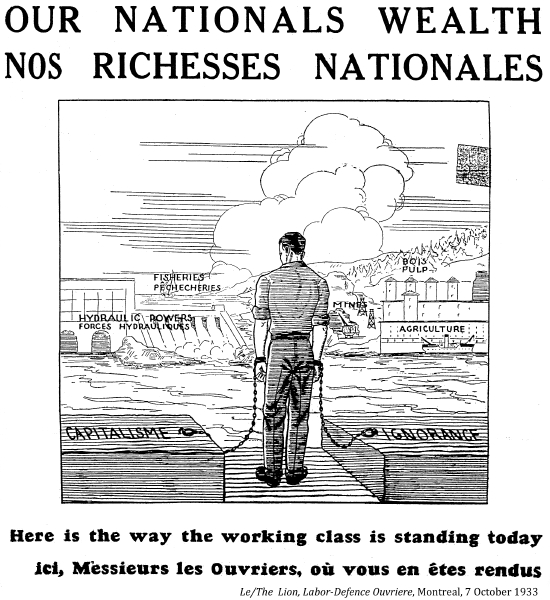
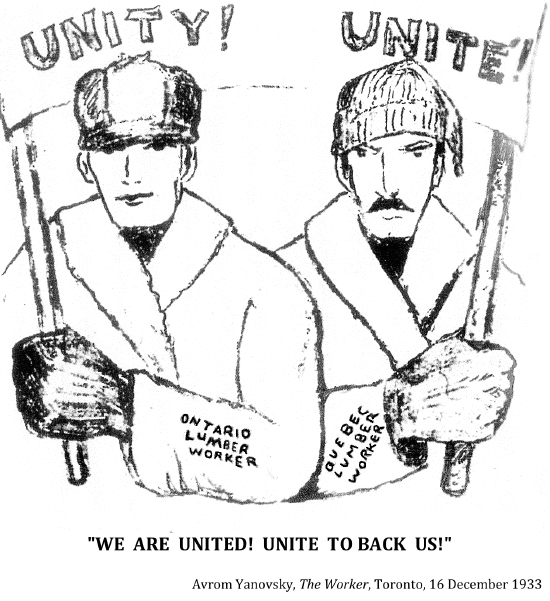
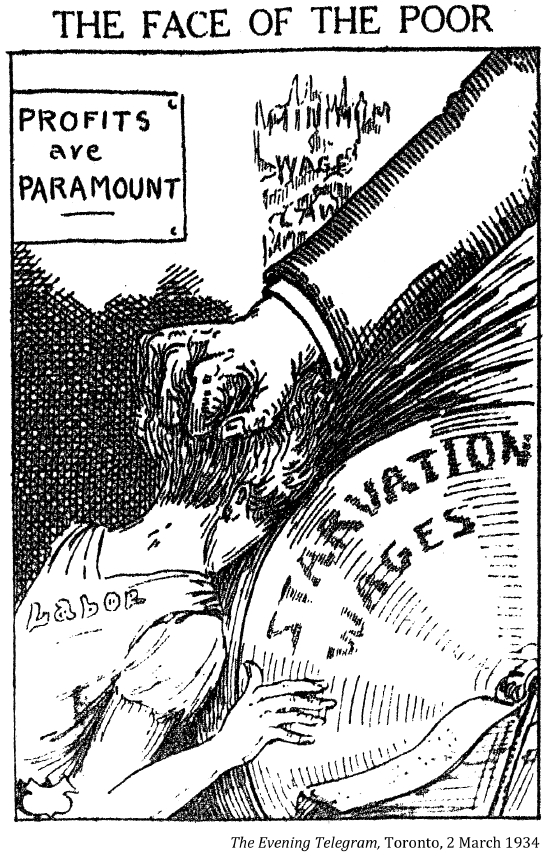
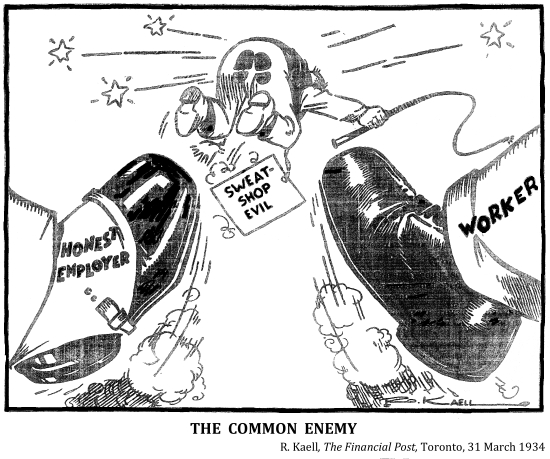
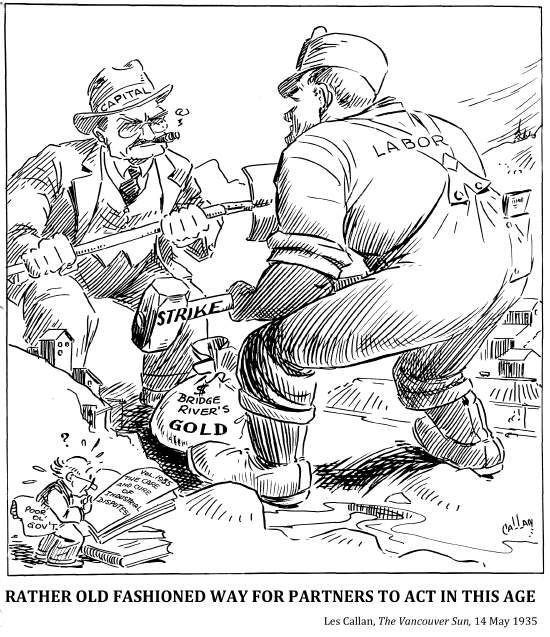

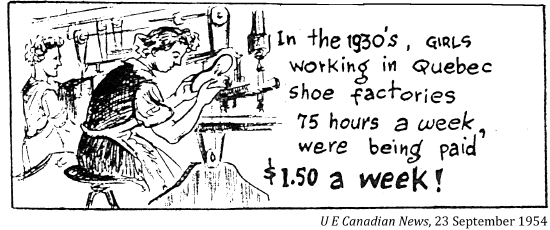
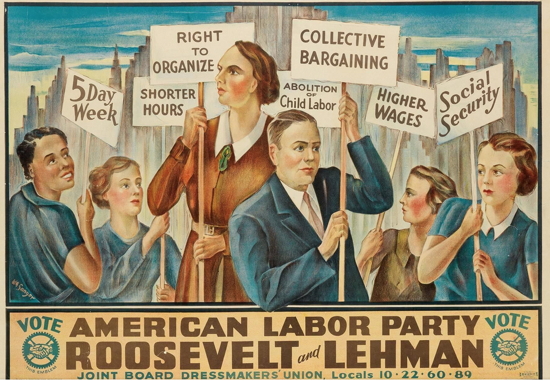
William Sanger, 1936
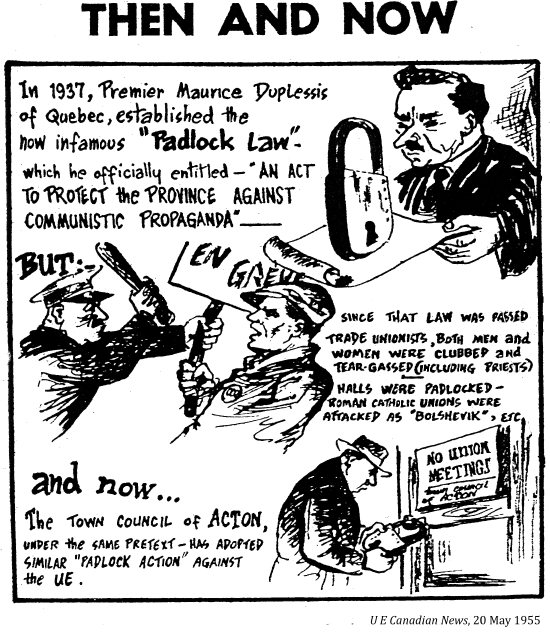
"My place is marching with the workers rather than riding with General Motors."
David A. Croll. Ontario Minister of Labour, letter of resignation, 14 April 1937
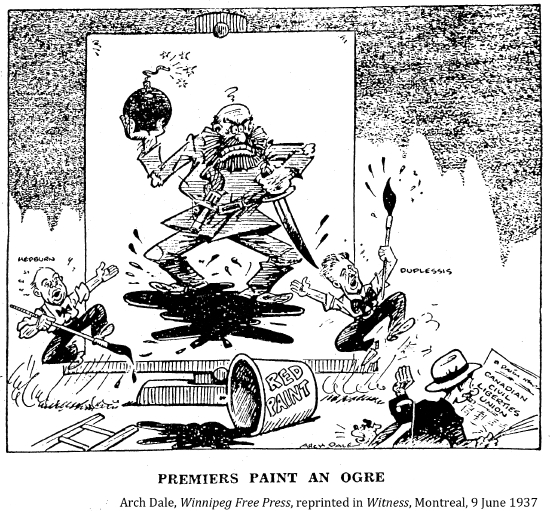
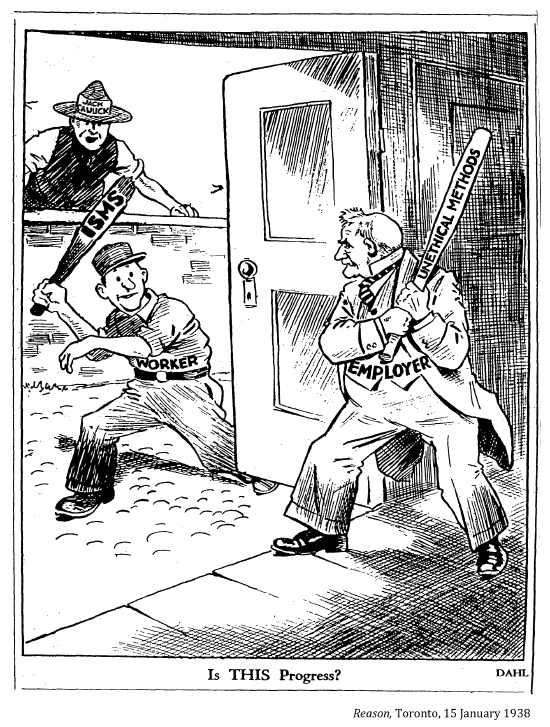
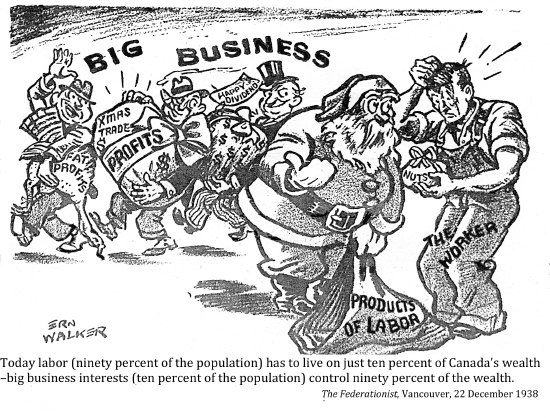
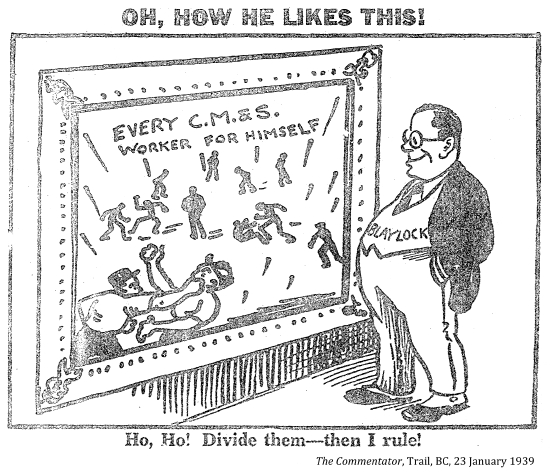
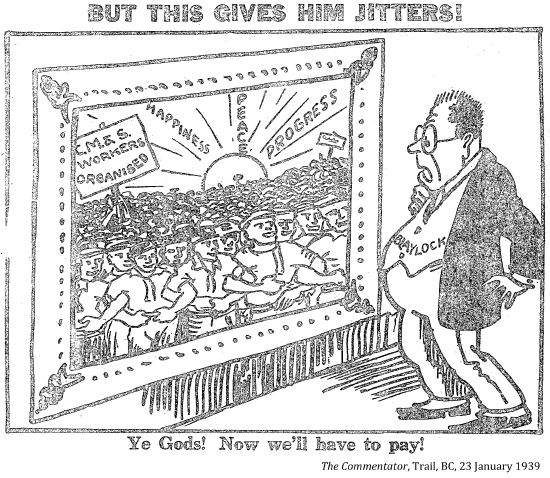
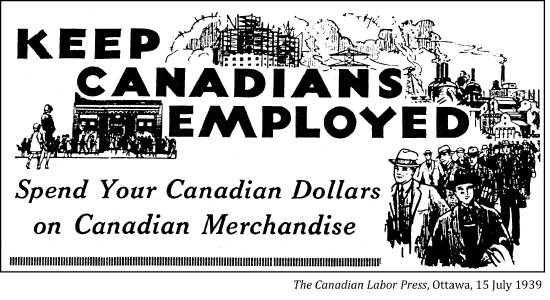
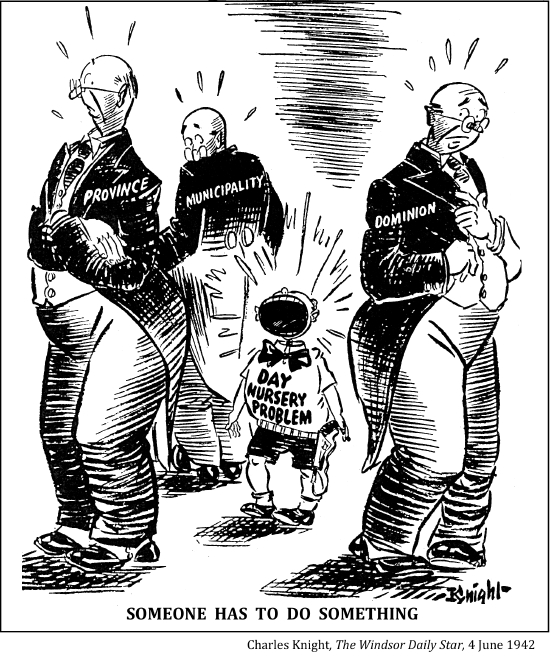
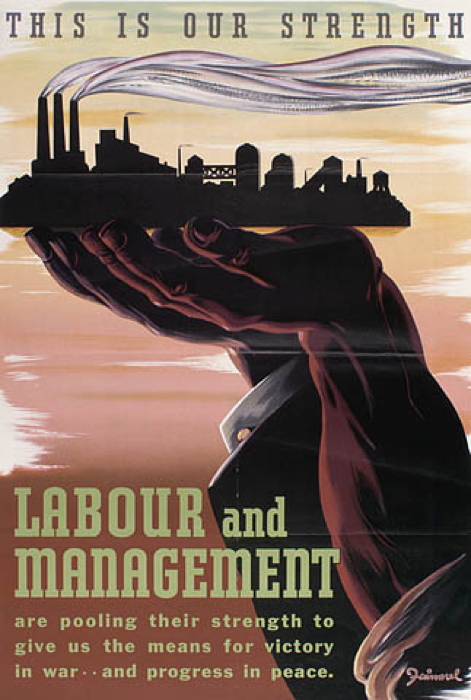
« This Is Our Strength - Labour and Management » : Effort de guerre canadien et campagne de sensibilisation à la production. LAC, 1983-30-219, Charles Fainmel ca. 1943-44
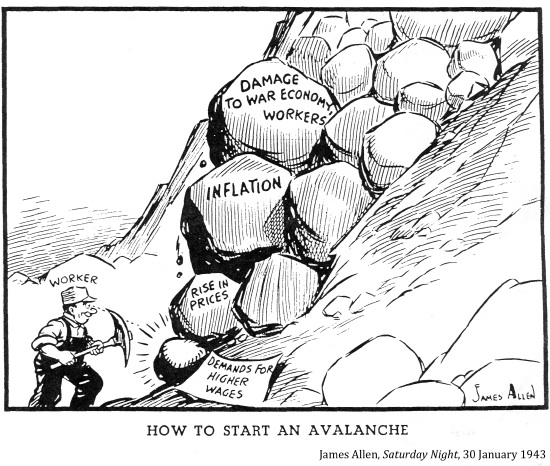
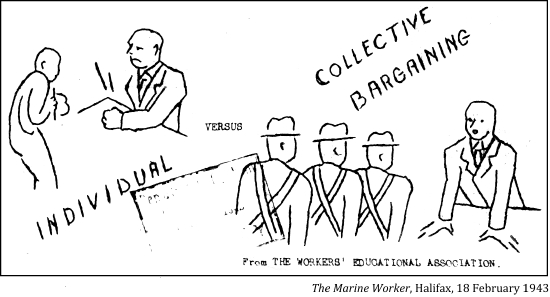
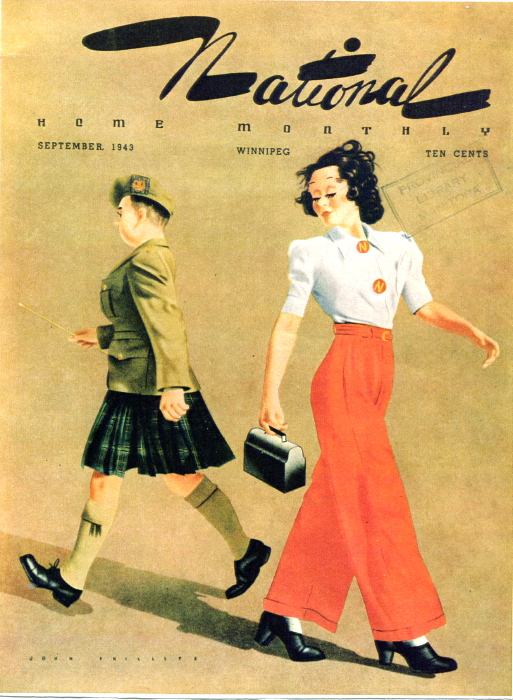
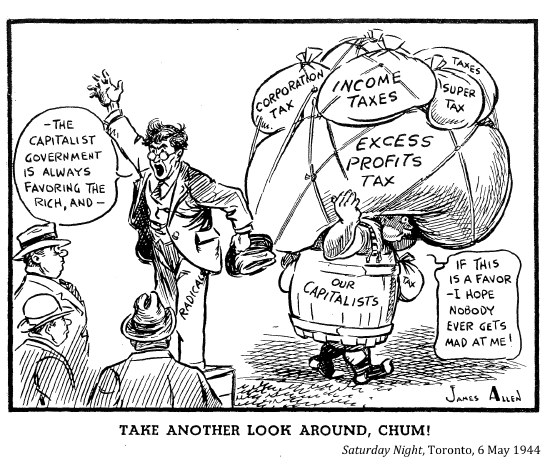
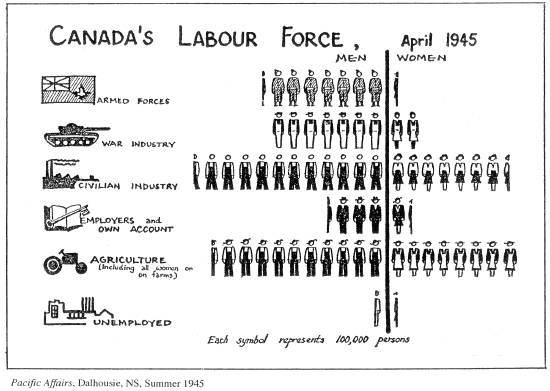
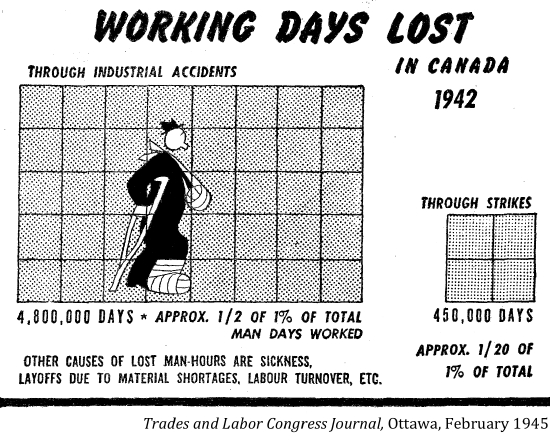
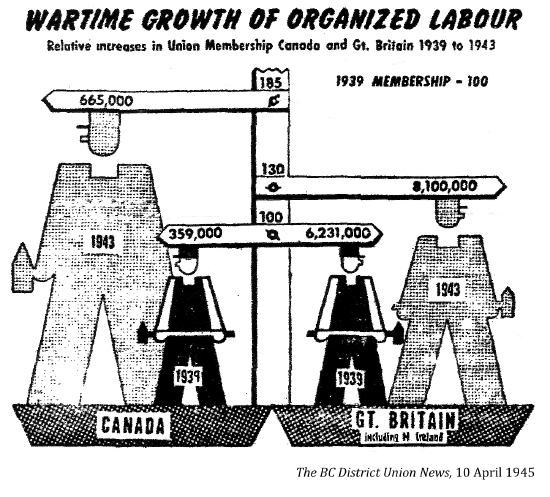
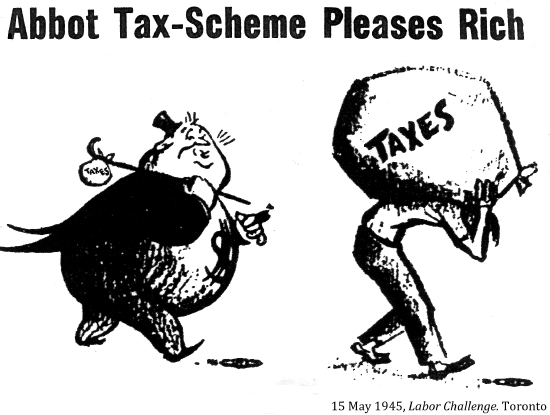
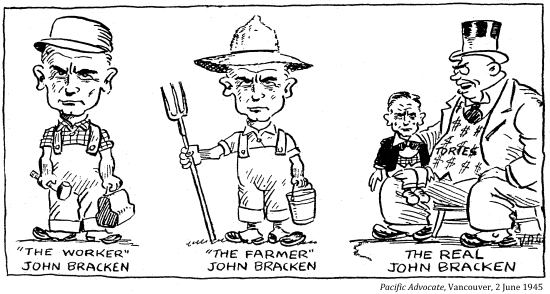
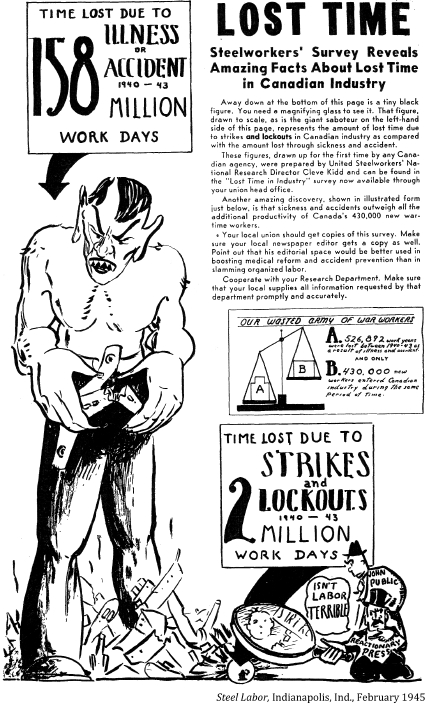
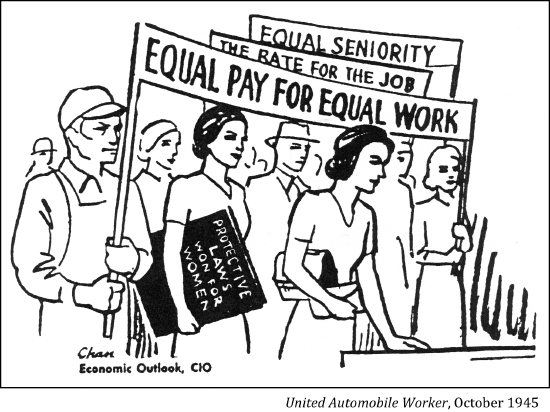
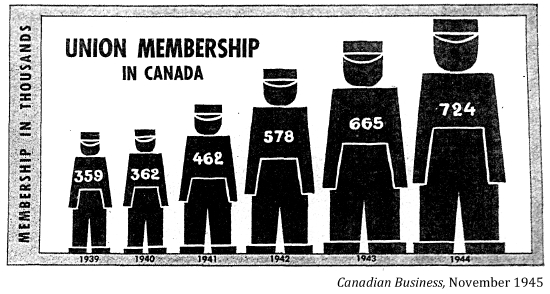
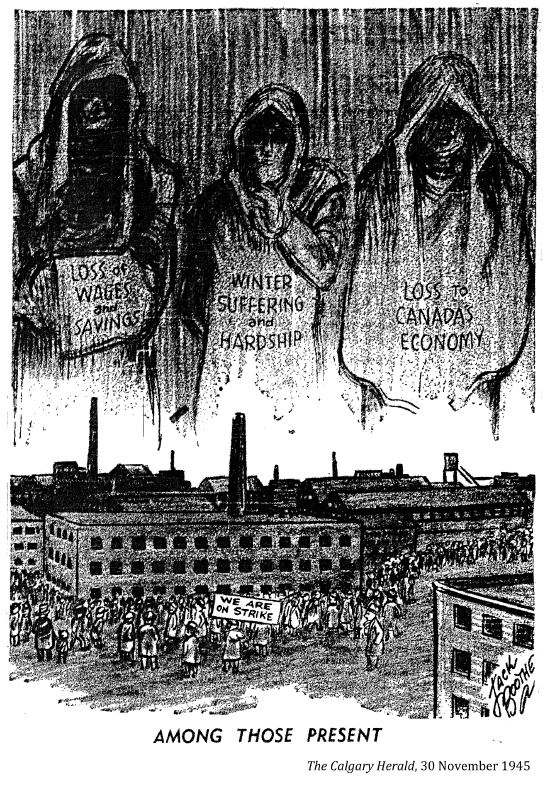
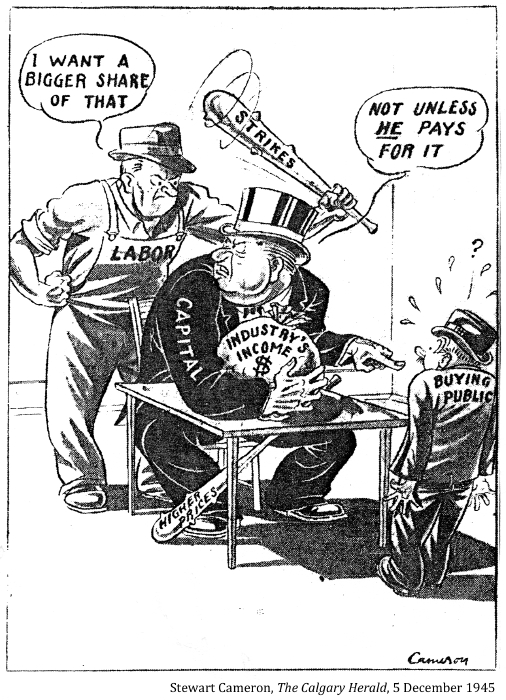
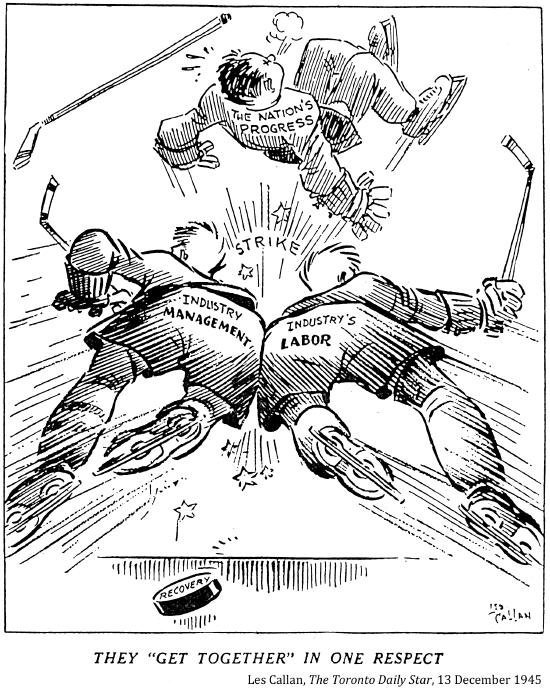
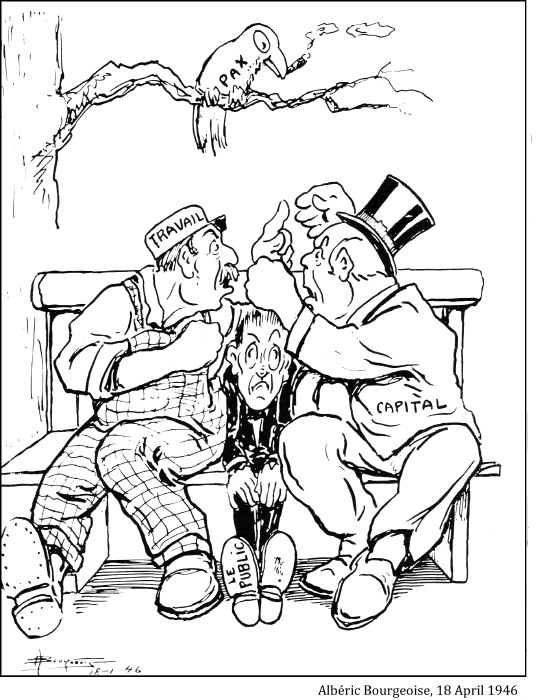
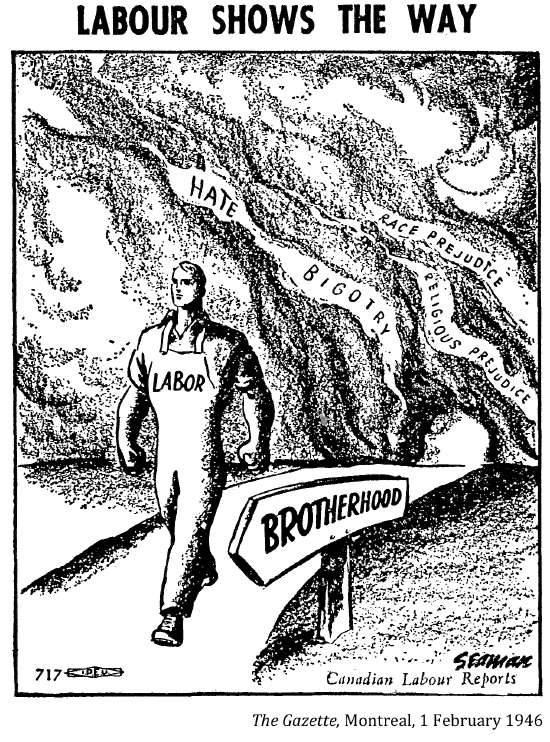
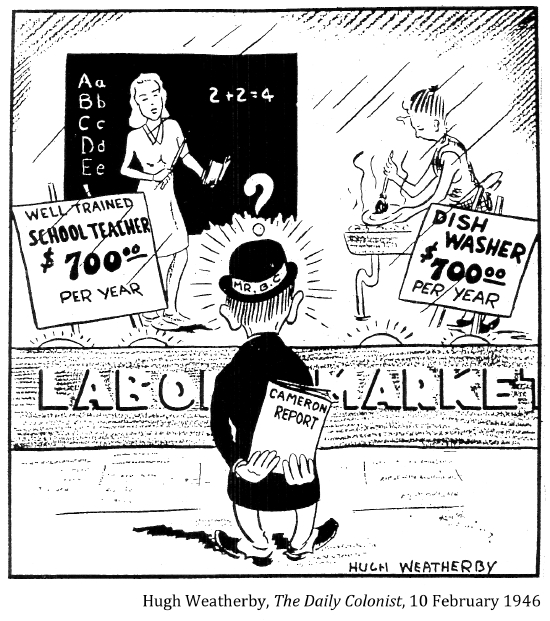
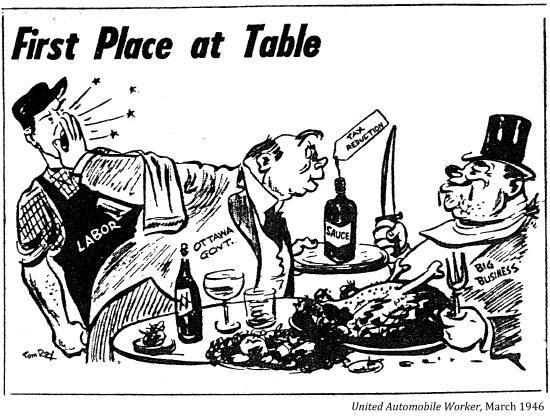

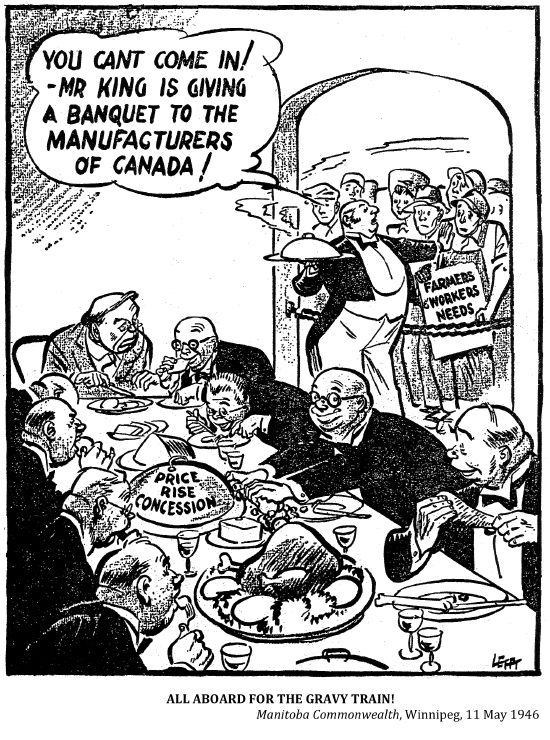
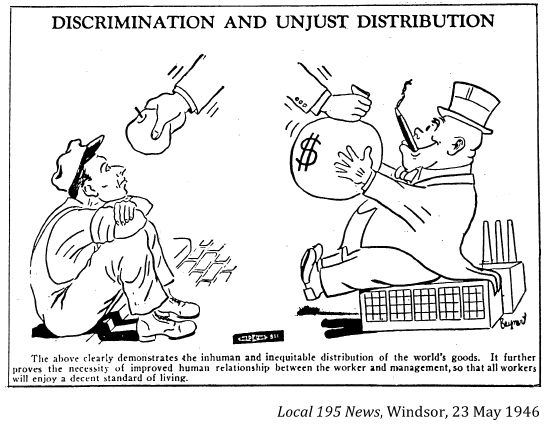
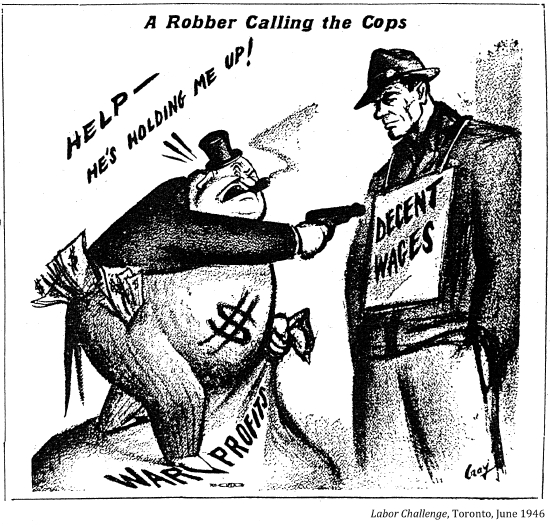
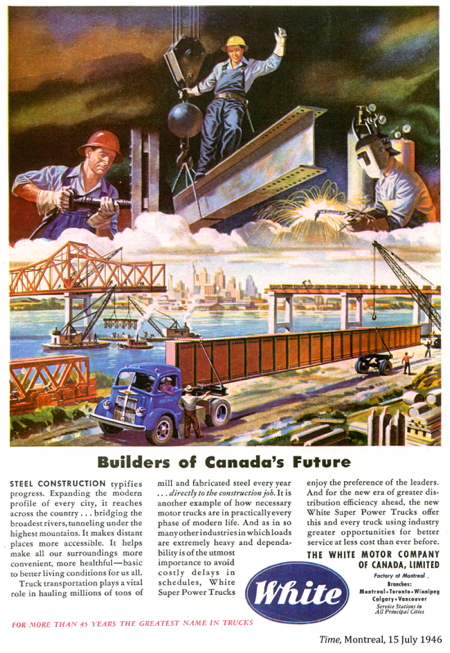
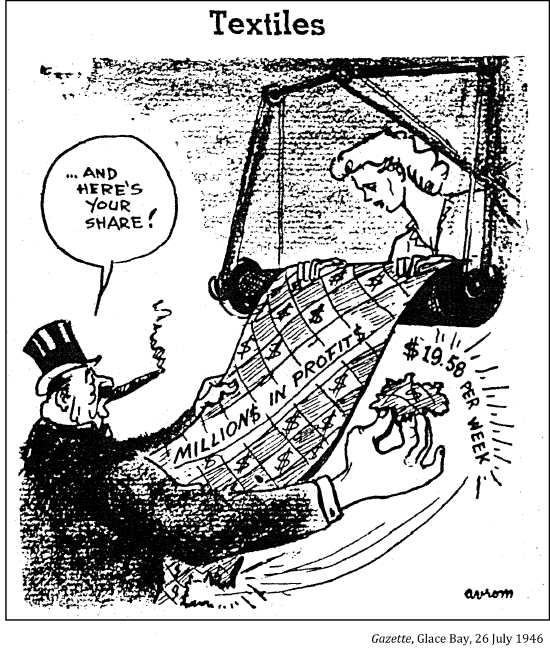
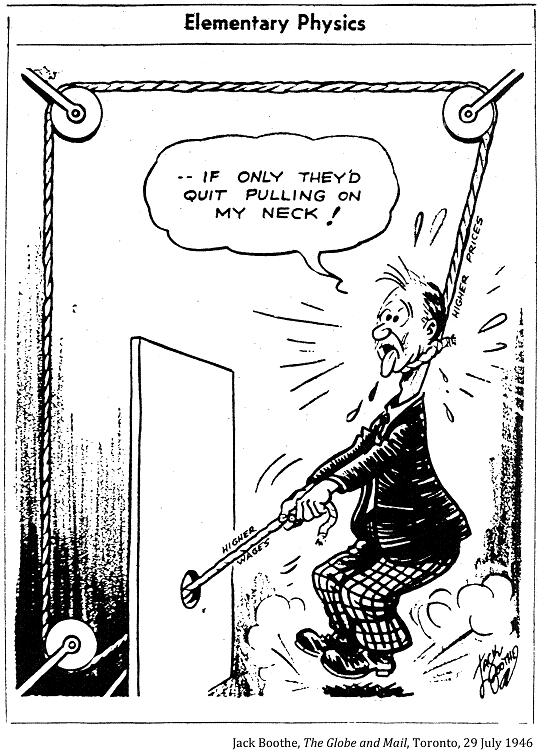
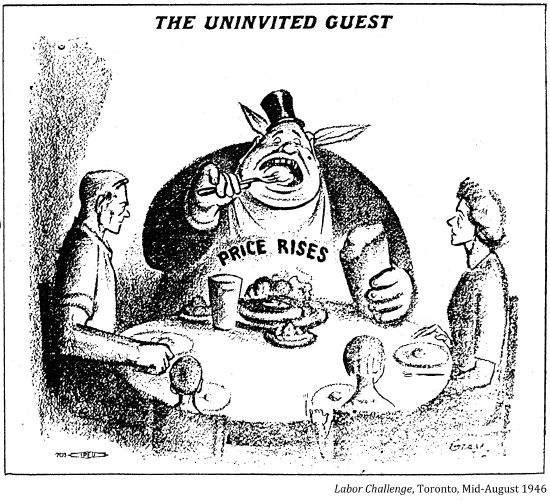
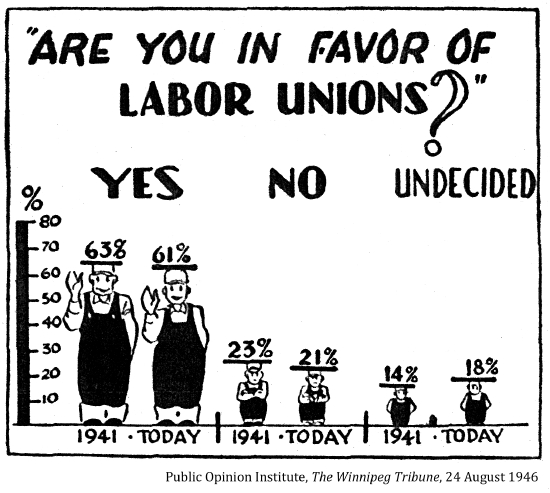
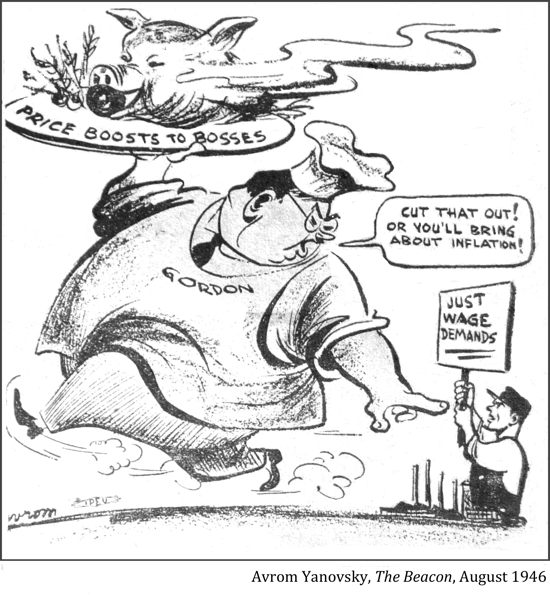
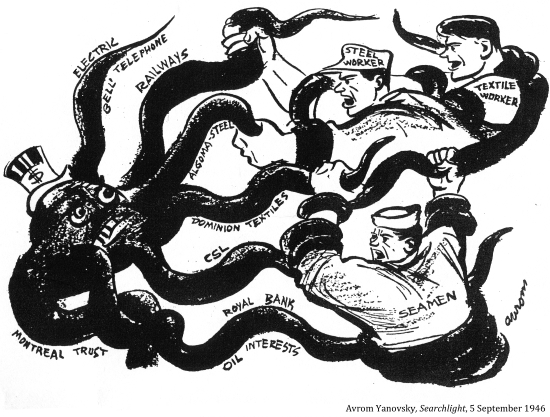
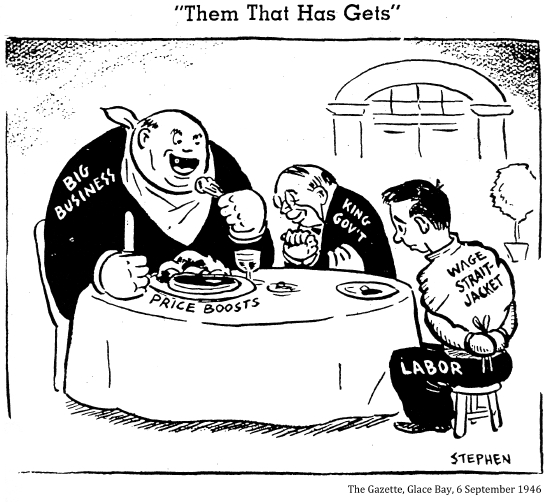
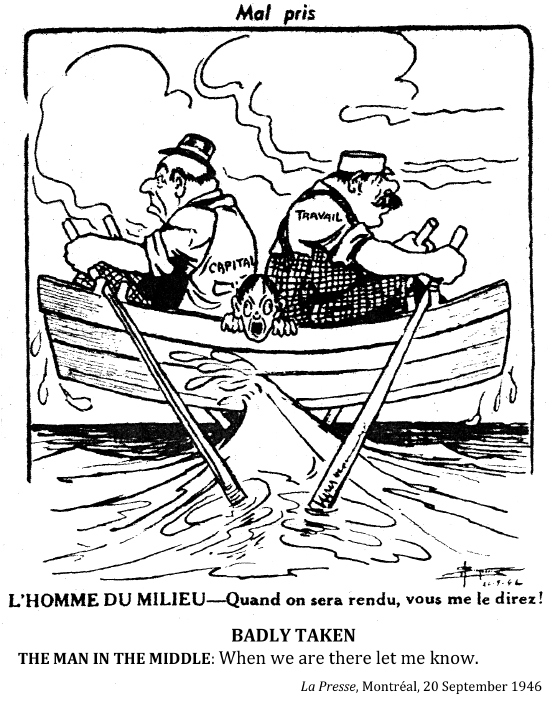
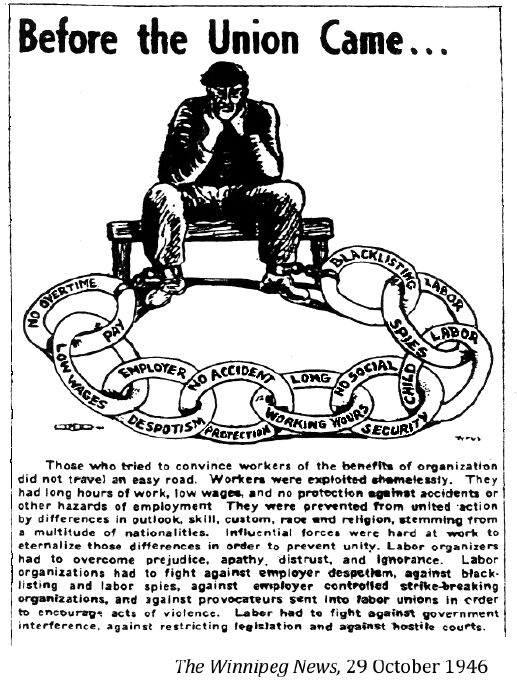
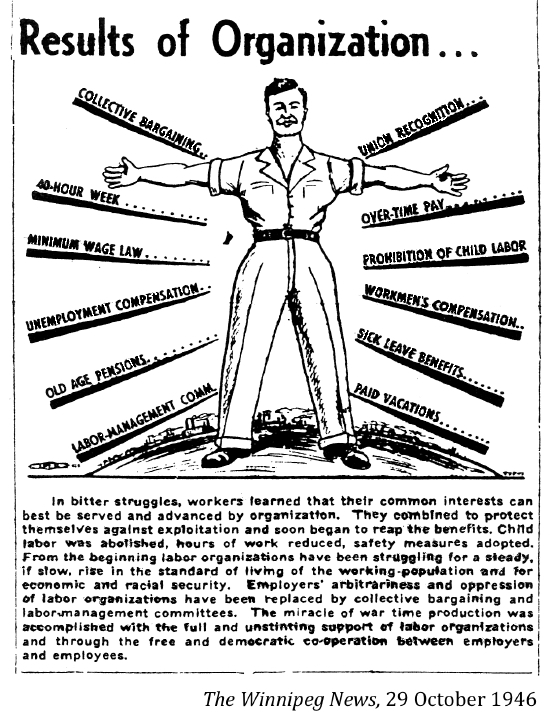
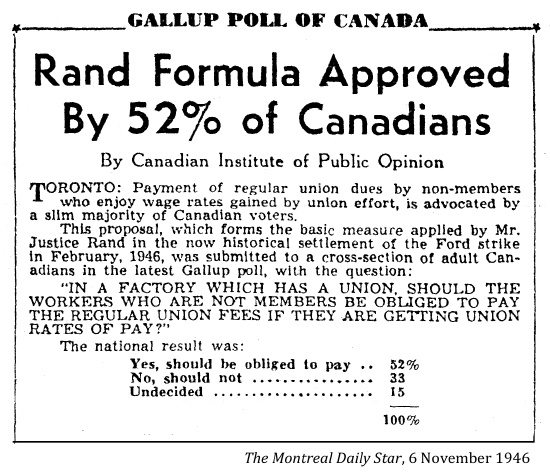
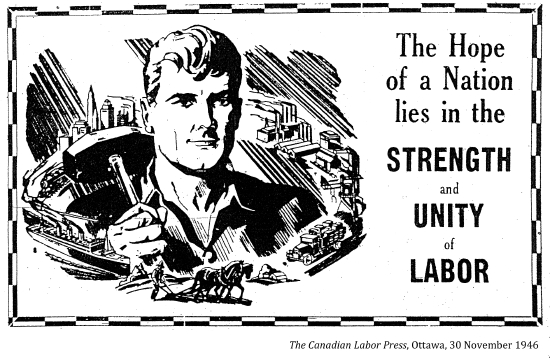
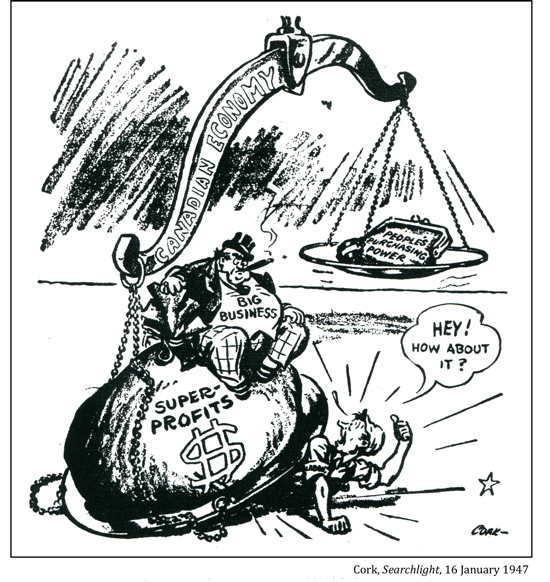
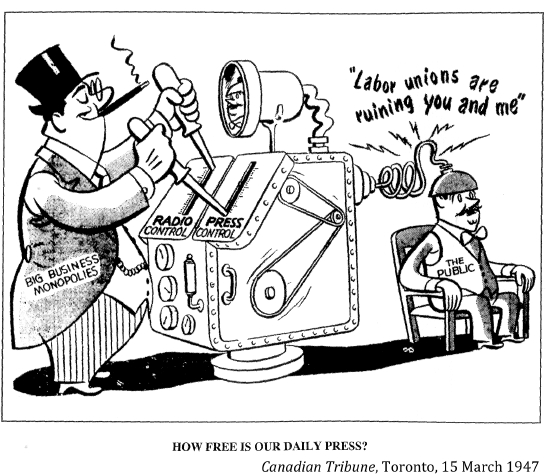
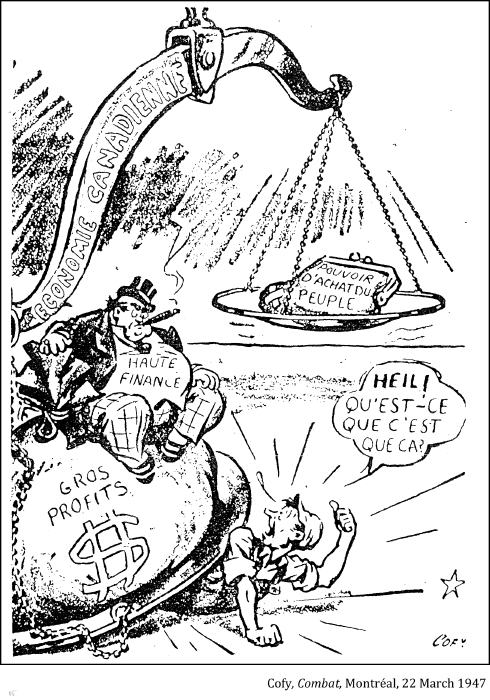
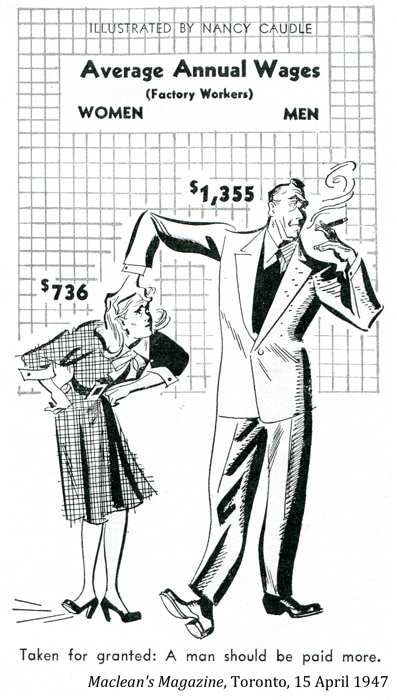
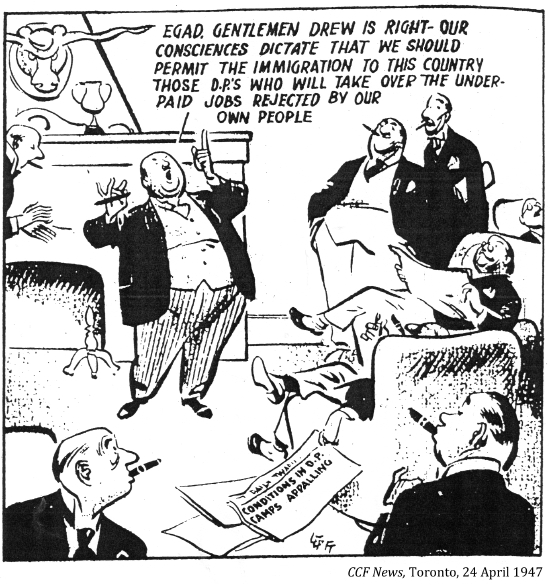
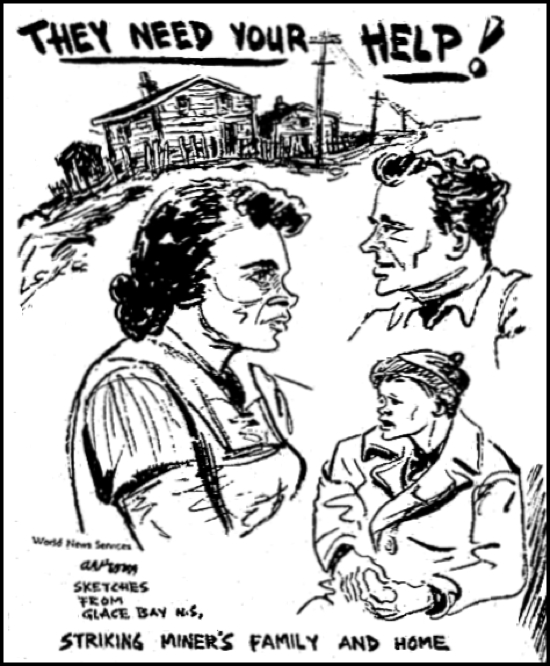
B.C. District Union News, Vancouver, 30 April 1947
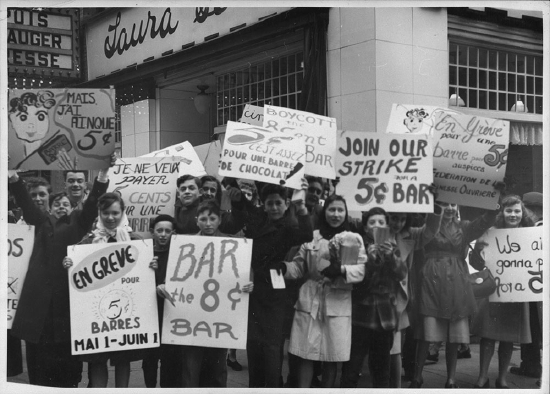
Price Campaign. Candy bar boycott, Montreal. LAC PA-093691, Canadian Tribune, May 1947
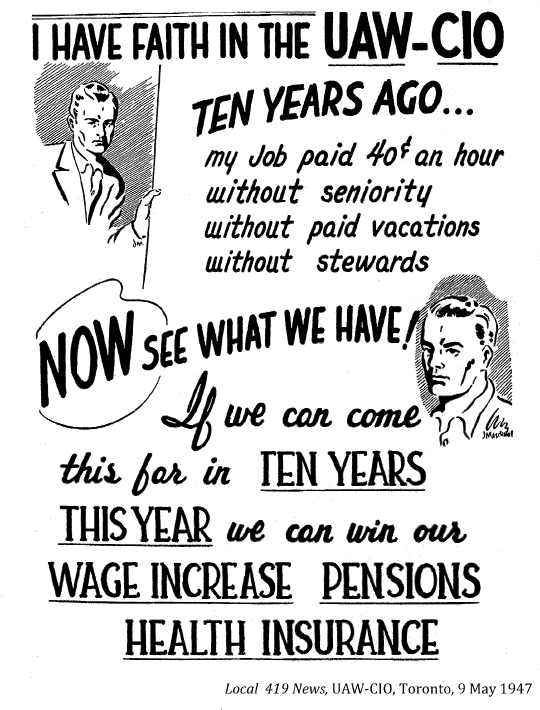
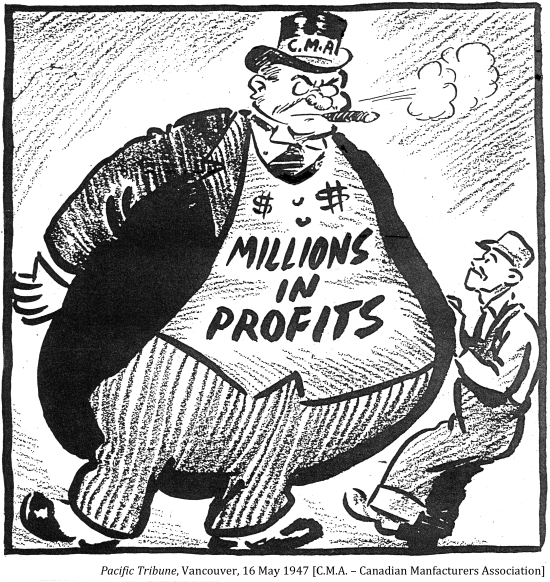
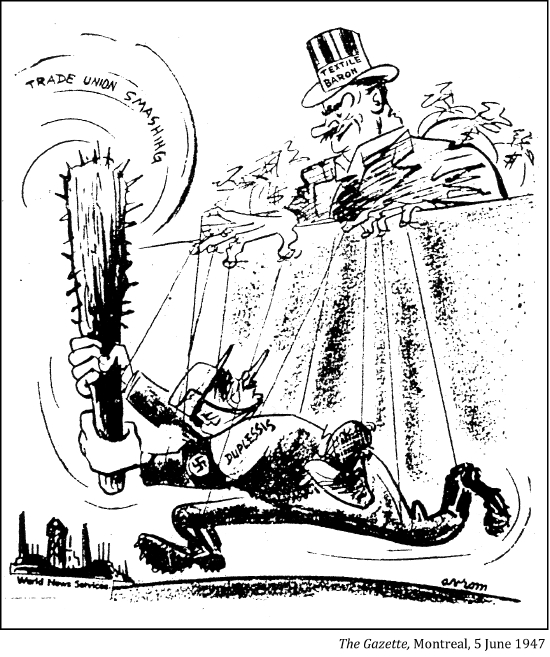
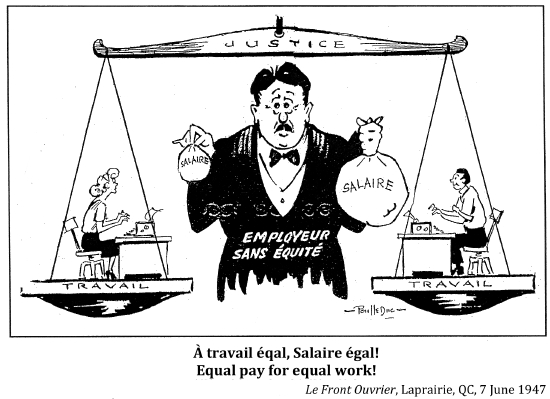
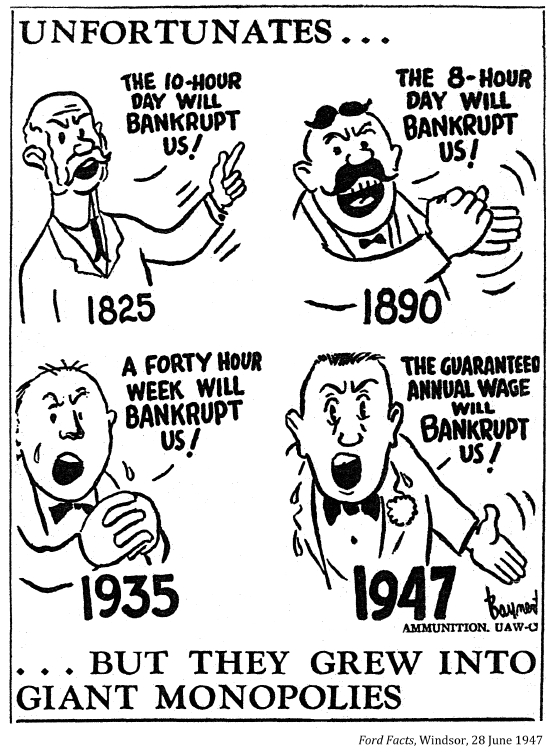

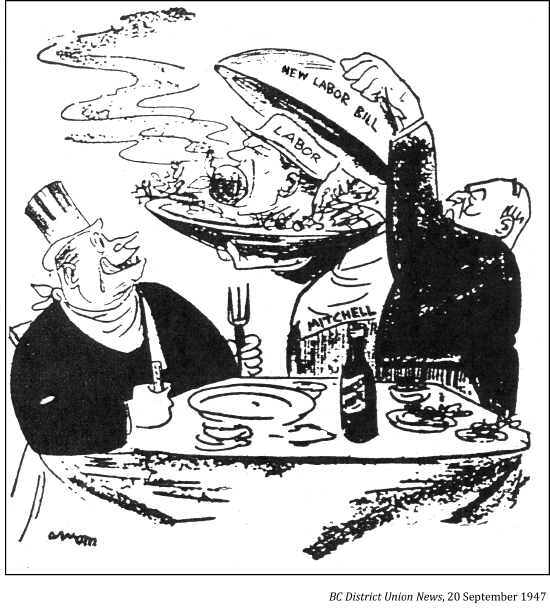
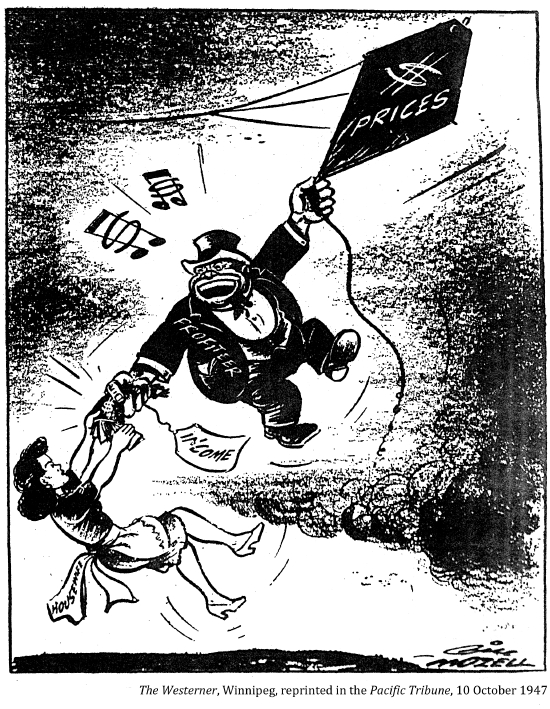
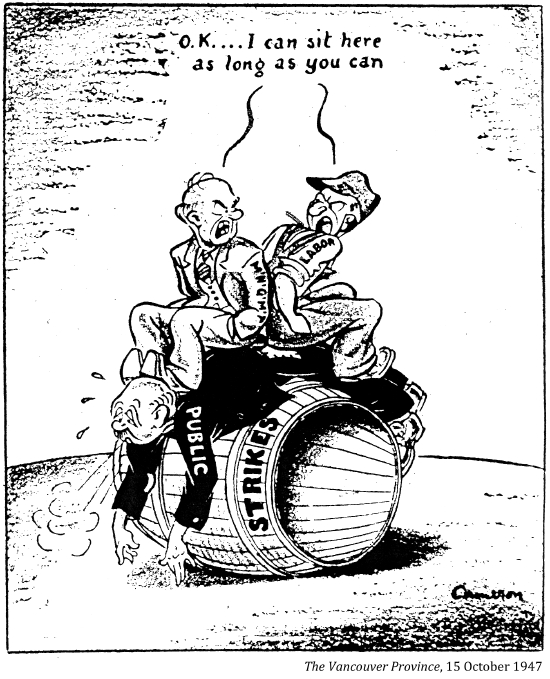
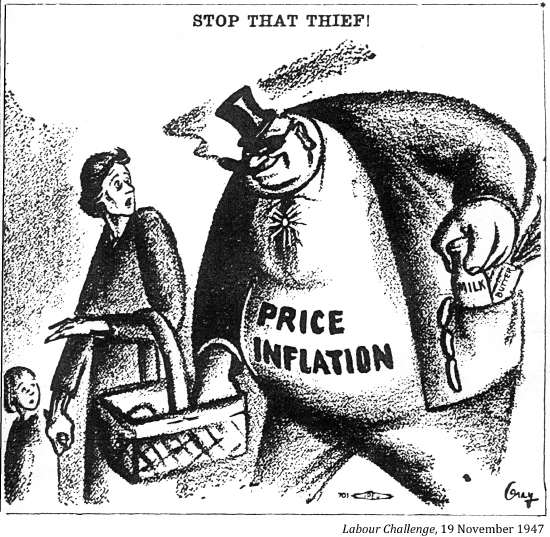
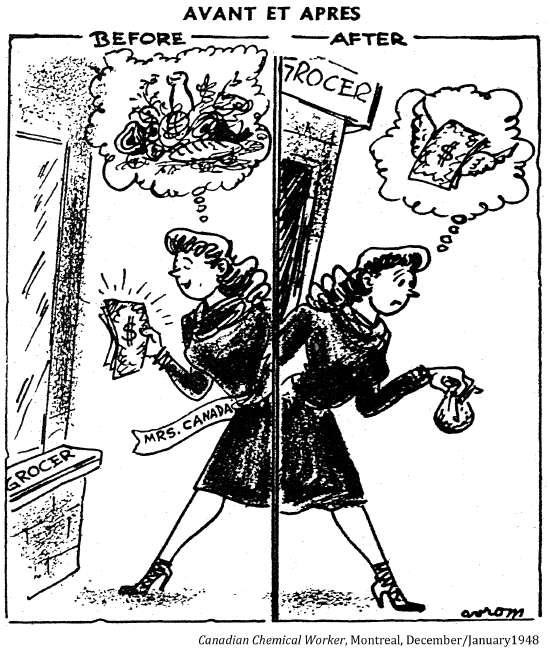
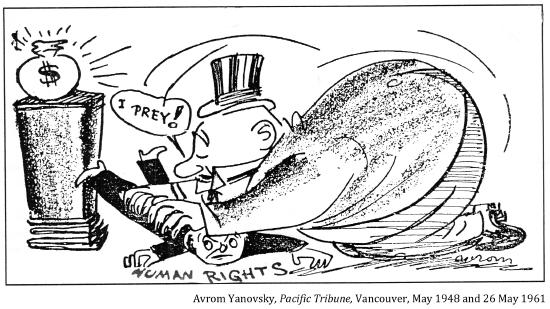
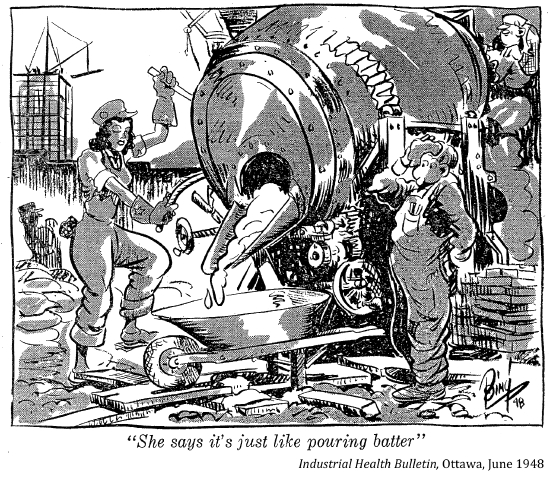
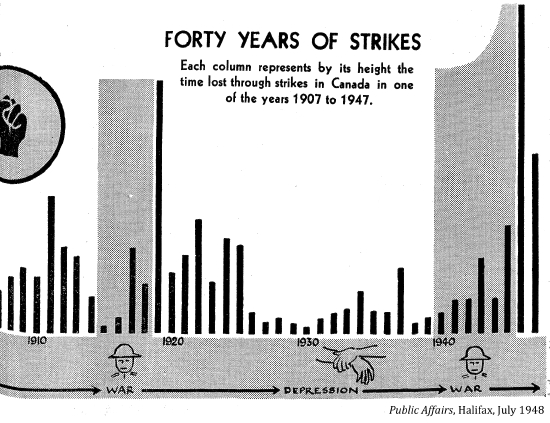
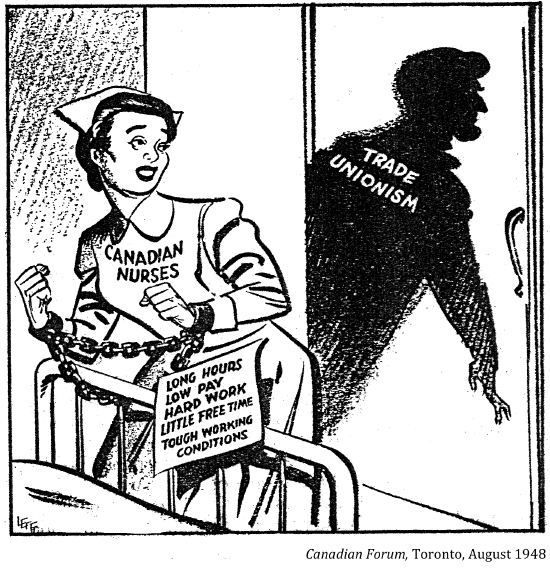
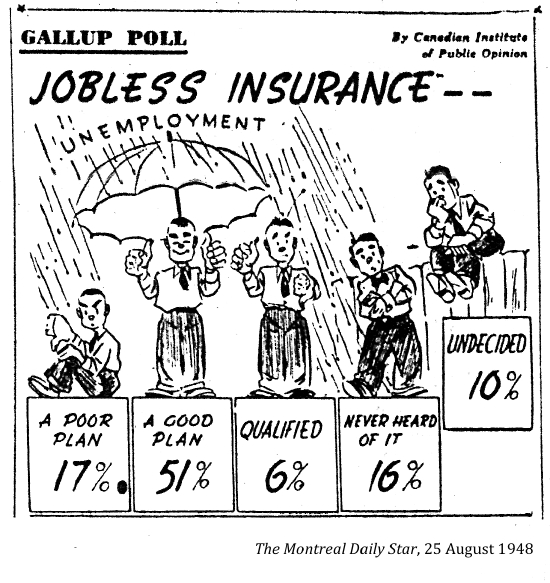
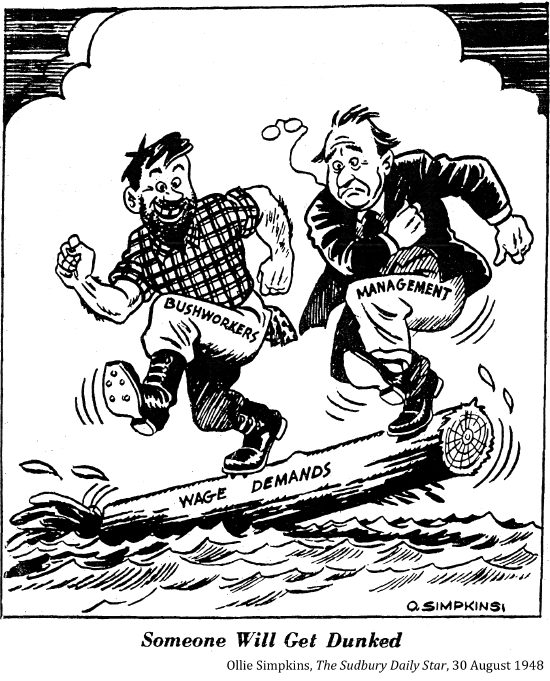
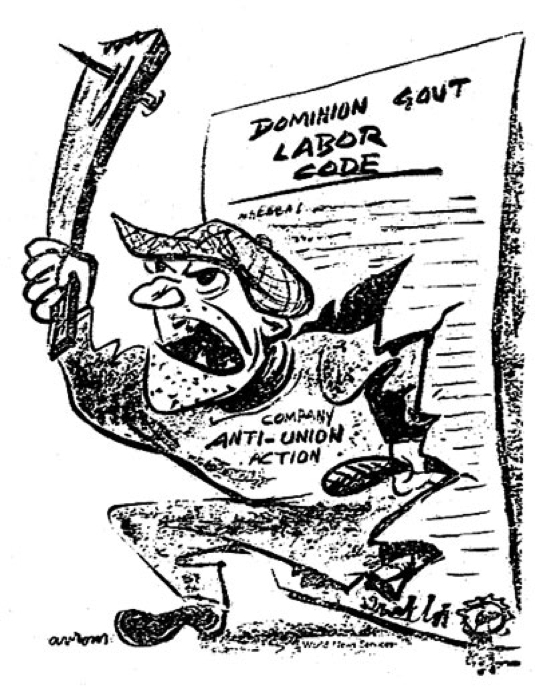
Avrom Yanovsky, BC District Union News, 30 August 1948
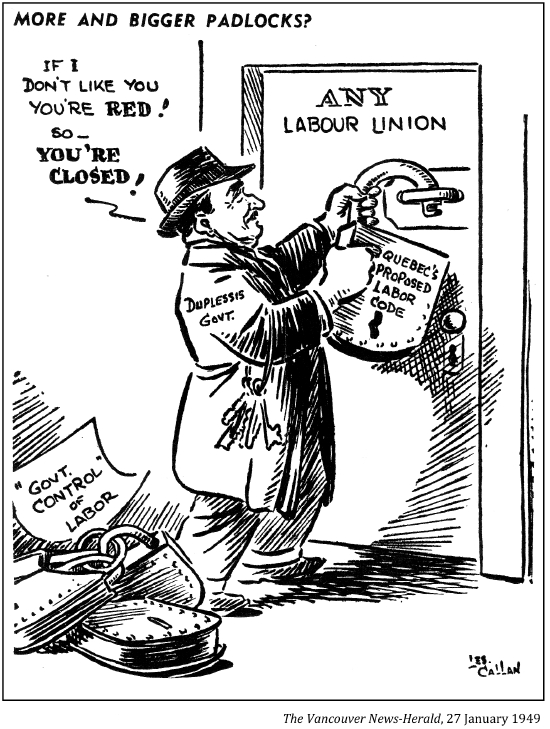
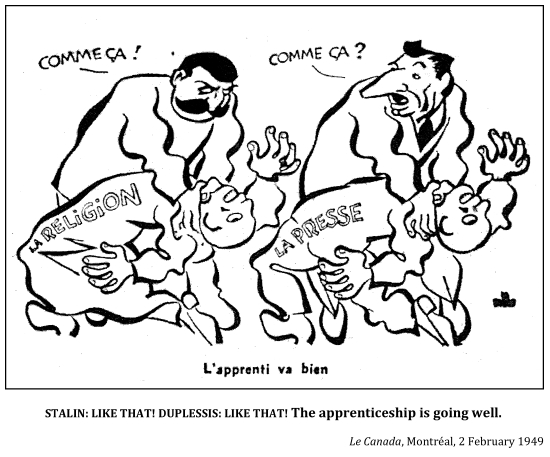
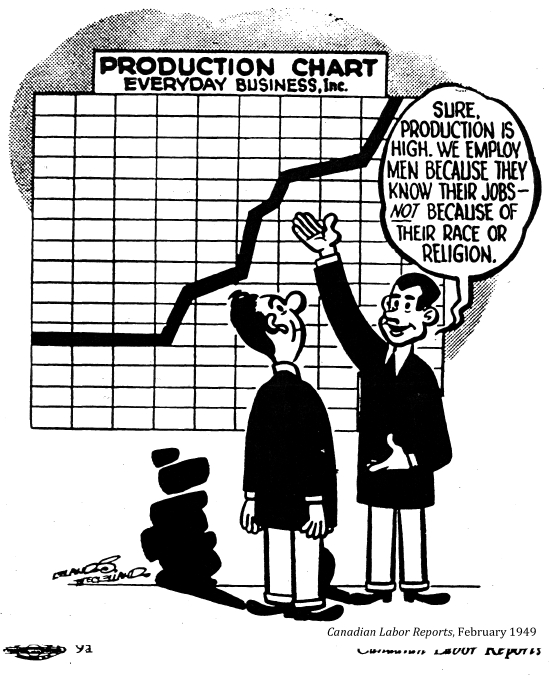
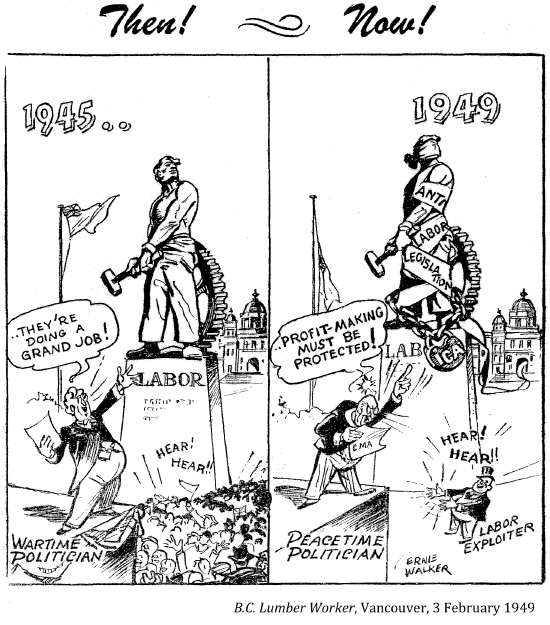
"We want social peace but we don't want the crushing of the working class. We are attached to man more than to capital. That's why the clergy has decided to intervene [in the Asbestos Strike]. It wants to have justice and charity respected and desires that there shall cease to be a situation where more attention is paid to money interests than to the human element."
Joseph Charbonneau, Archbishop of Montreal, 2 May 1949
See "Asbestos Strike" theme
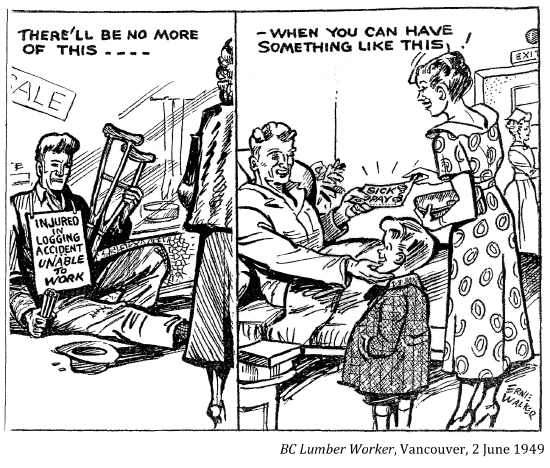
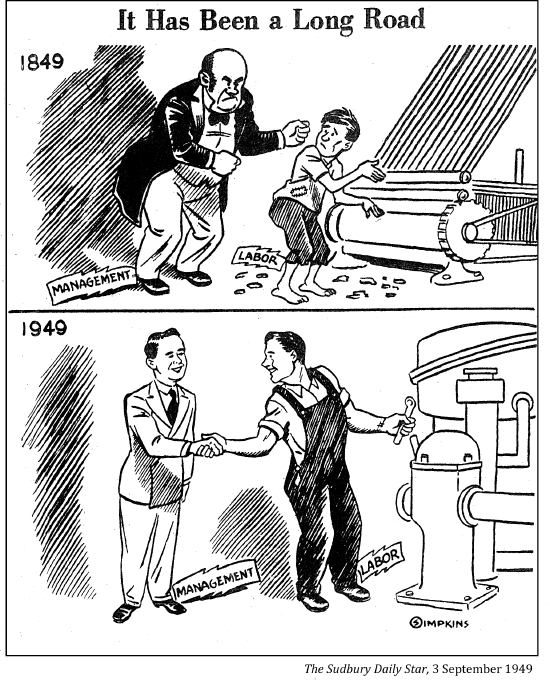
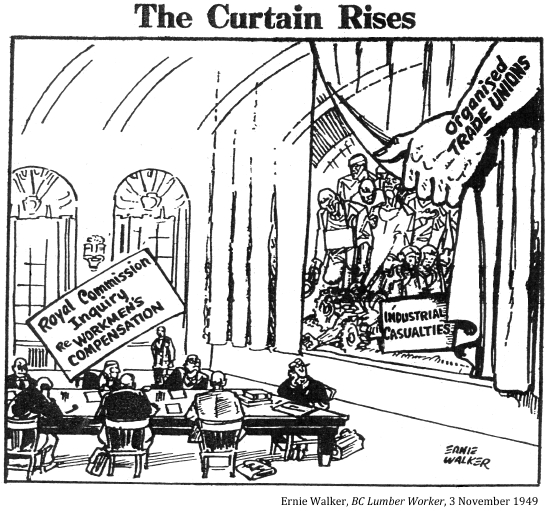
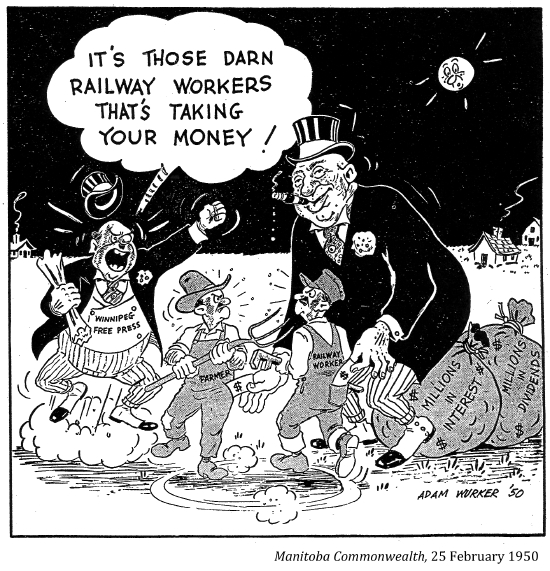
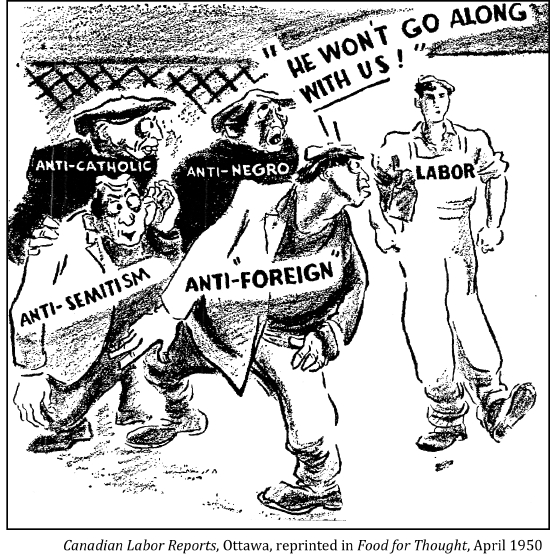
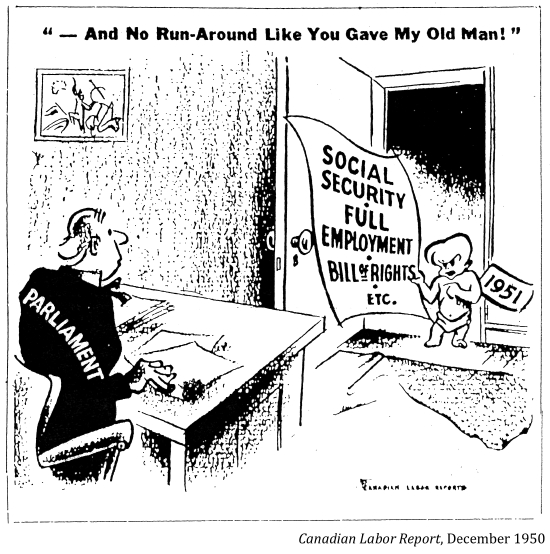
"In the hardrock mines and the lumber industry the story was the same. Long hours, low wages, a high-ball system of speedup, utter disregard for safety conditions and an uniform hatred and opposition to trade unionism. . . Previous to 1919 [lumber workers were] at the mercy of their bosses who were exploited by the most grasping and greedy plunderbund that was ever let loose on the natural resources of this or any other country. The life of the logger was worse than chattel slavery. From dark to dark, 10, 12, and 14 hours of slavish, backbreaking soul-destroying labor; the vilest of food. . . overloaded bunkhouses with vermin-infested, muzzle-loading, double-deck bunks, three decks in some cases, and for which the logger had to pack his own blankets; no sanitary conditions or wash-houses; swindled and robbed by employment sharks, grafting foremen and the steamboat companies."
Tom McEwen, He Wrote For Us The Story of Bill Bennett, pioneer socialist journalist, 1951
"Before many weeks [in 1919-20] their numbers [Lumber Workers' Industrial Union] had grown so that they began to tell the bosses things. They raised wages; they established the eight-hour day; they compelled the boss loggers to tear down the old disease-breeding shacks and build new ones with shower baths and drying houses; they made companies put in beds for every man; they forced the government to enforce the sanitary regulations already in the statute books; they filled the camps with working class literature and raised the general level of comfort and intelligence of the men who worked in the woods."
Tom McEwen, He Wrote For Us The Story of Bill Bennett, pioneer socialist journalist, 1951
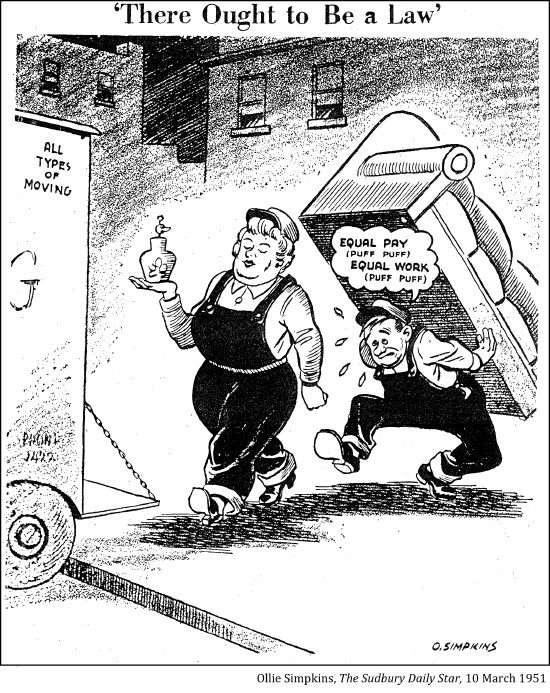
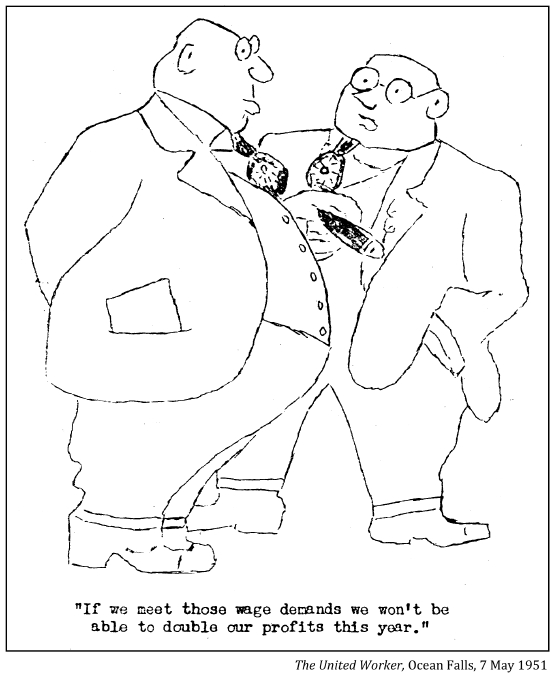
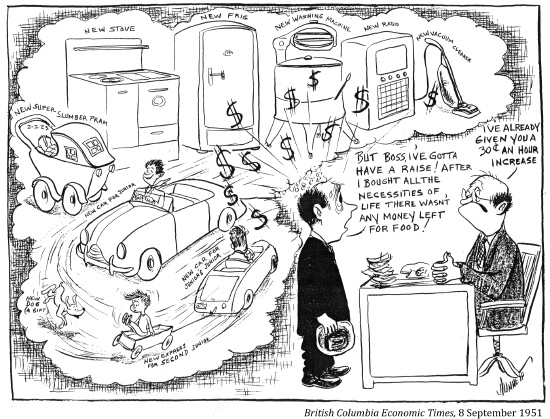
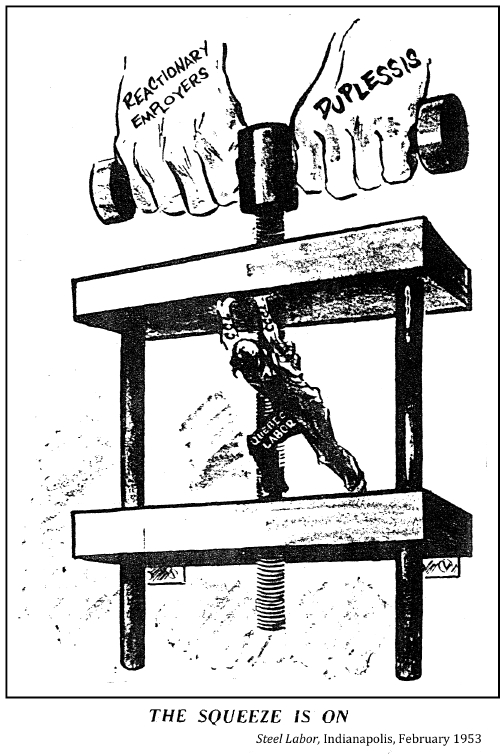
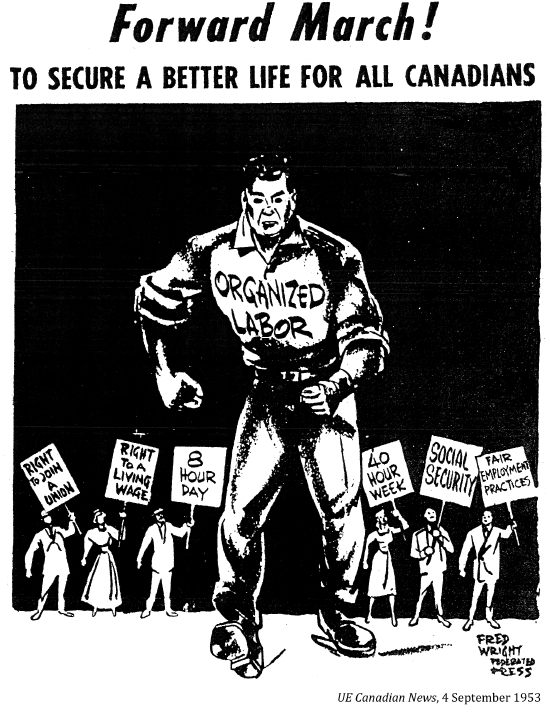
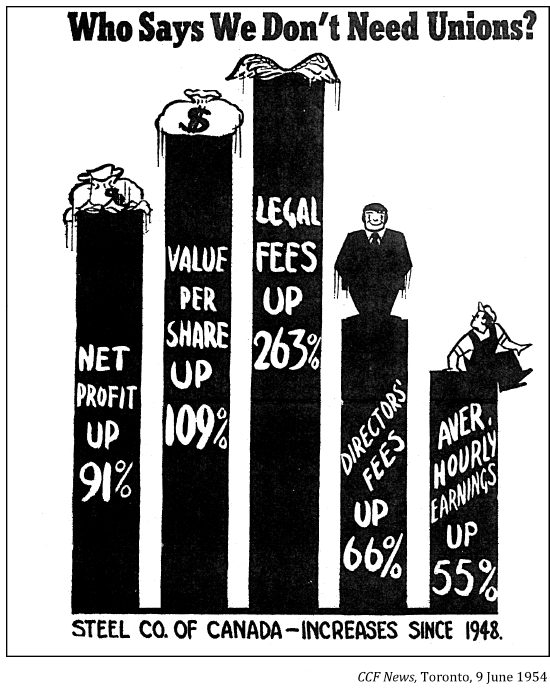
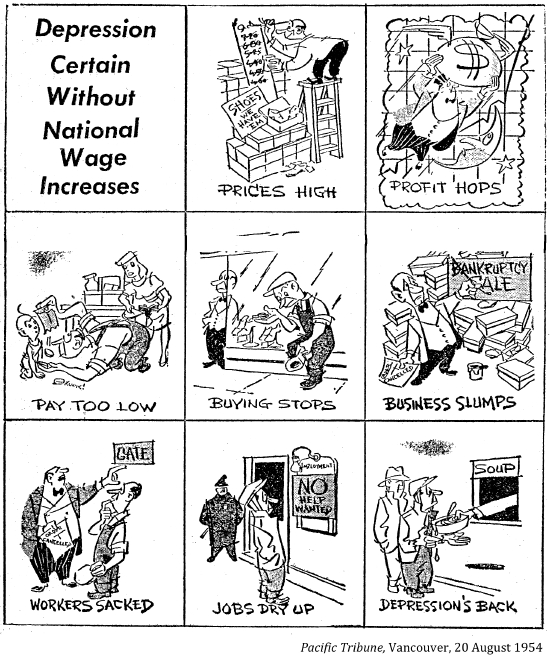
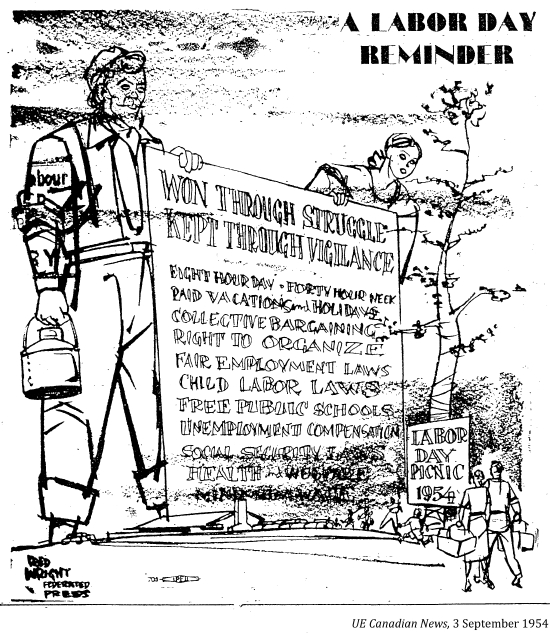
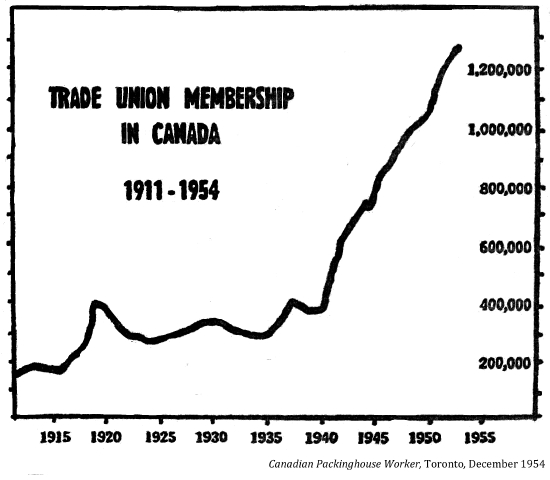
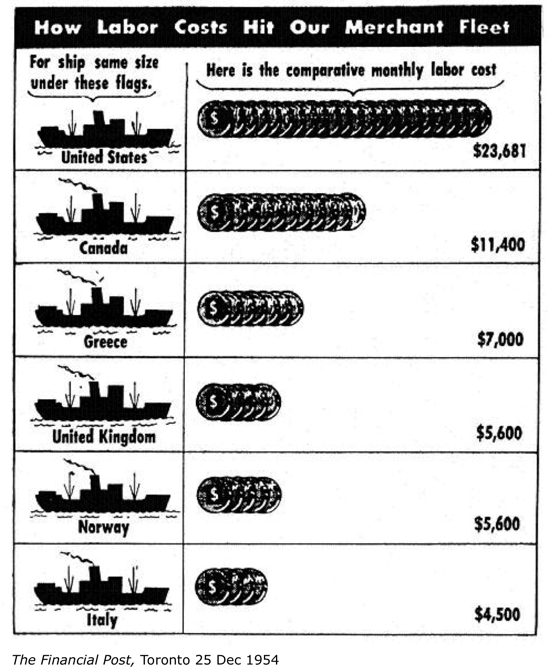
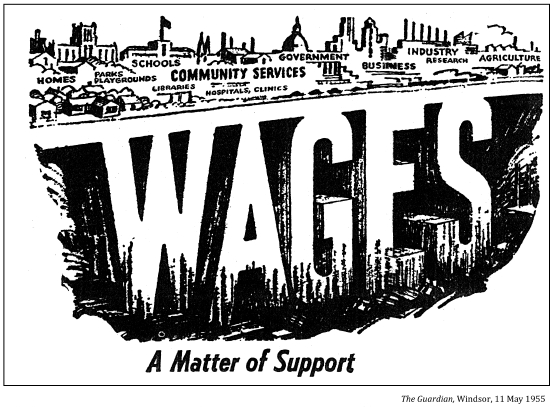
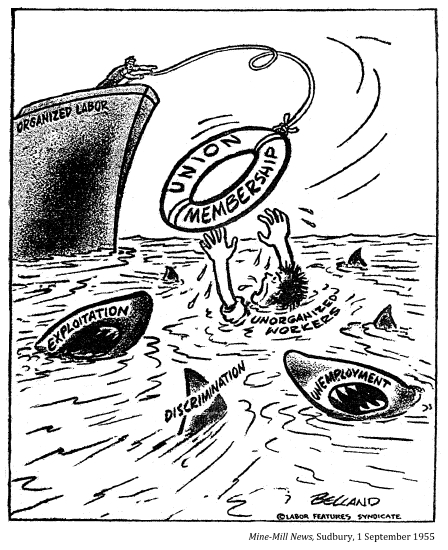
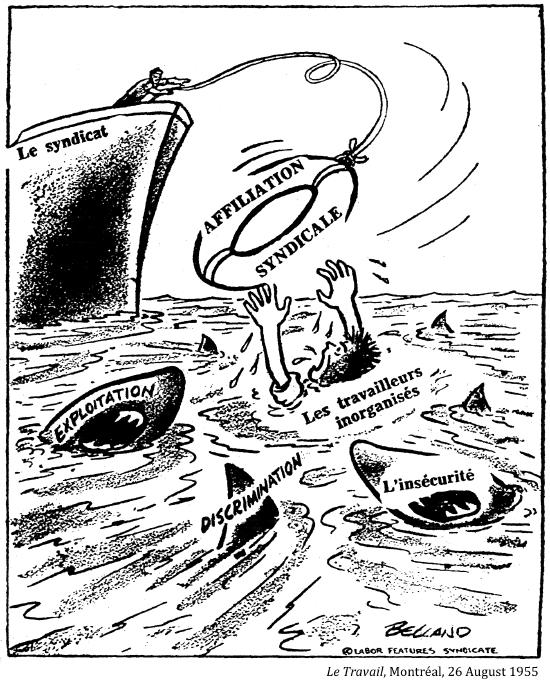
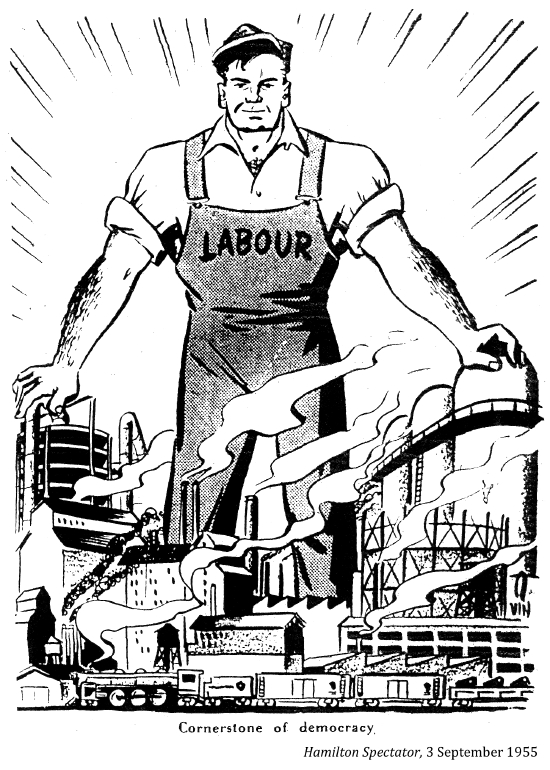
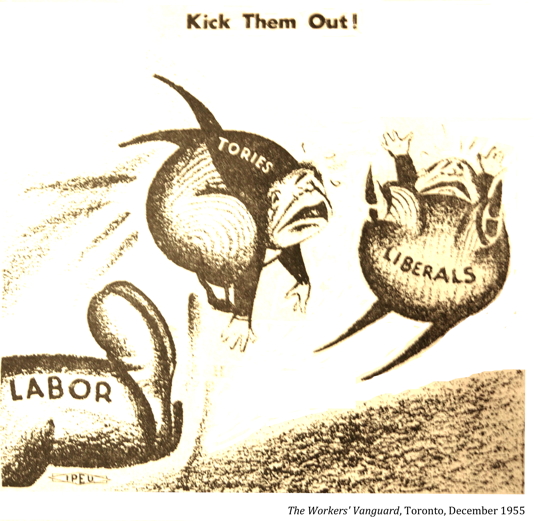
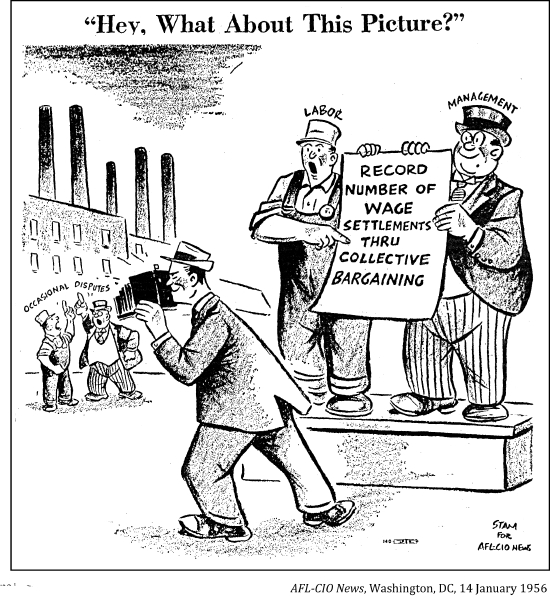
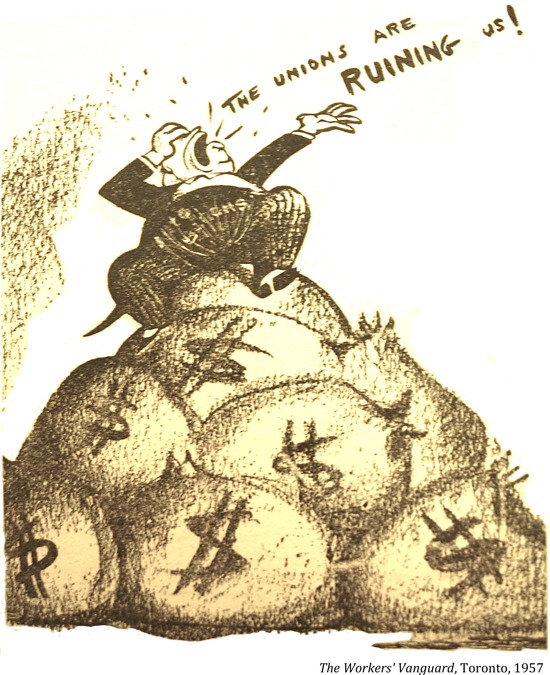
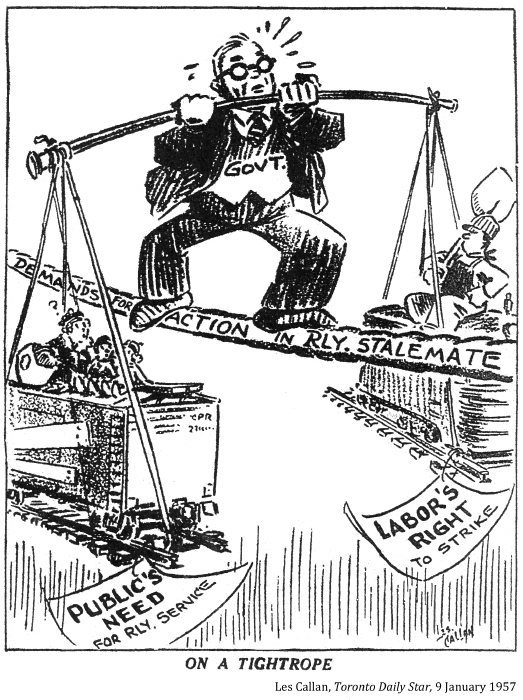
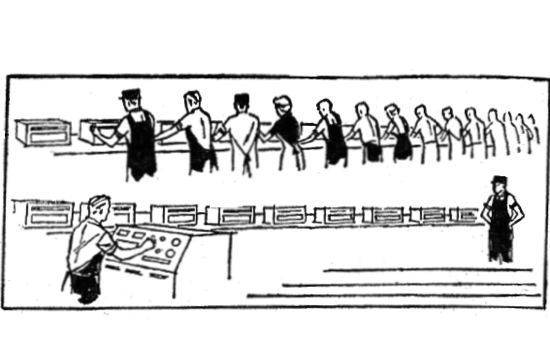
Canadian Hungary Worker, Toronto, 17 January 1957
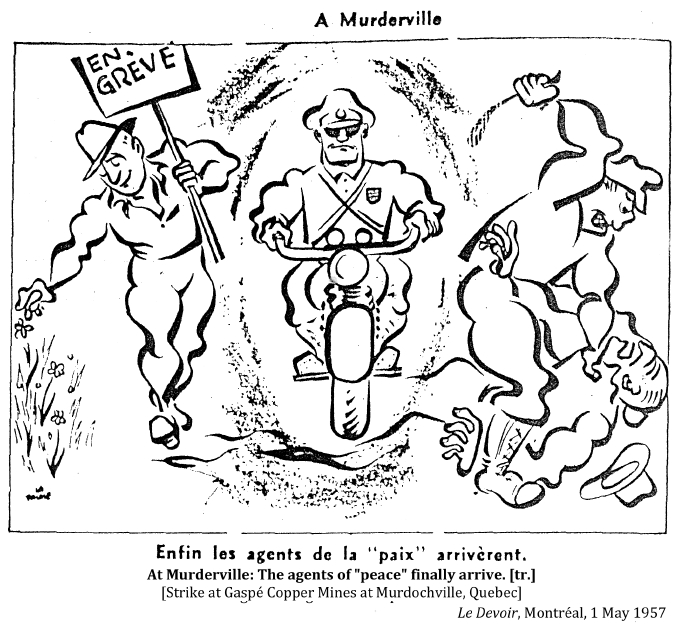
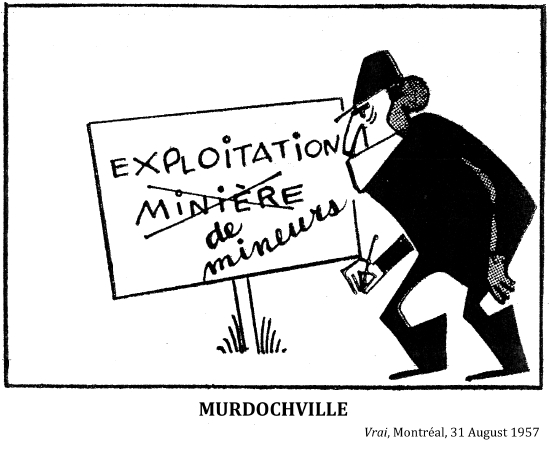
"In the town of Springhill, Nova Scotia
Down in the dark of the Cumberland Mine.
There's blood on the coal and the miners lie.
In roads that never saw sun nor sky.
In roads that never saw sun nor sky."
Ewan MacColl and Peggy Seeger, "The Springhill Mining Disaster", 1958
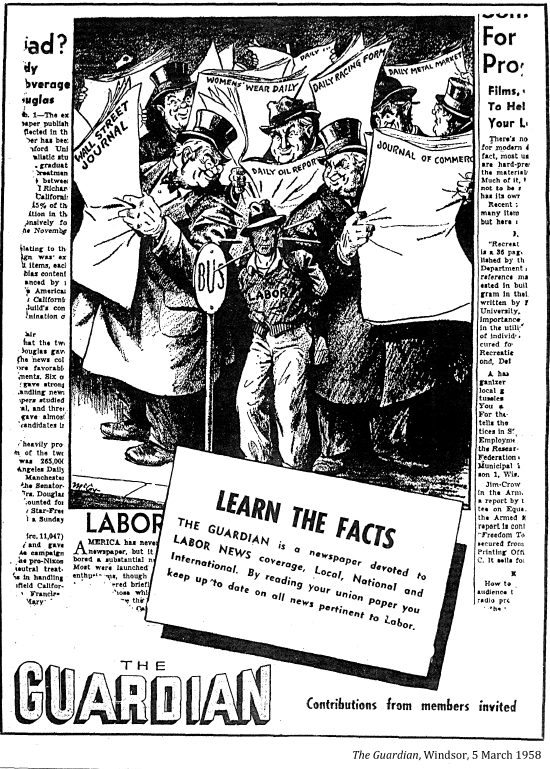
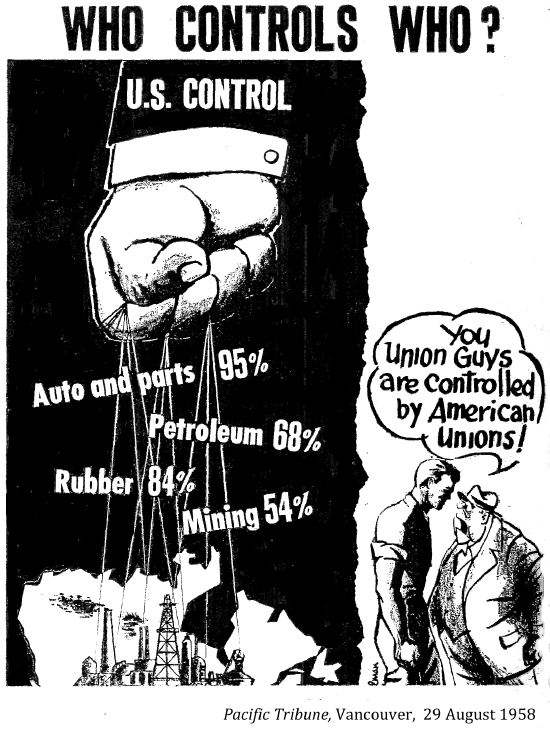
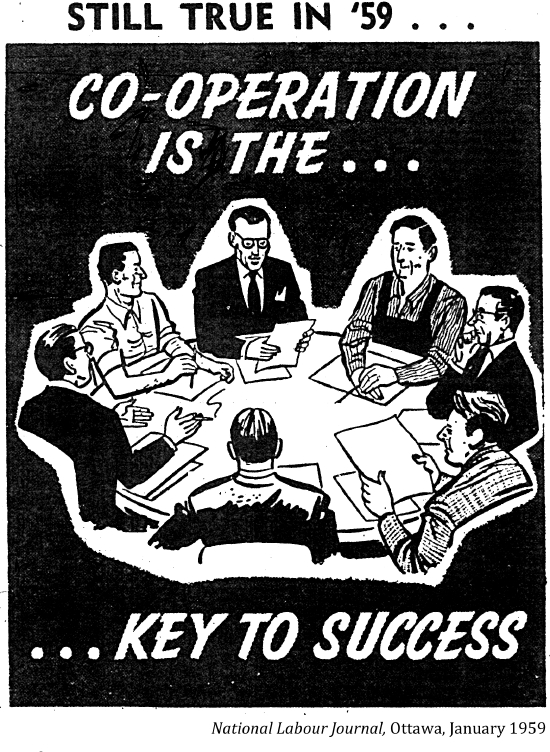
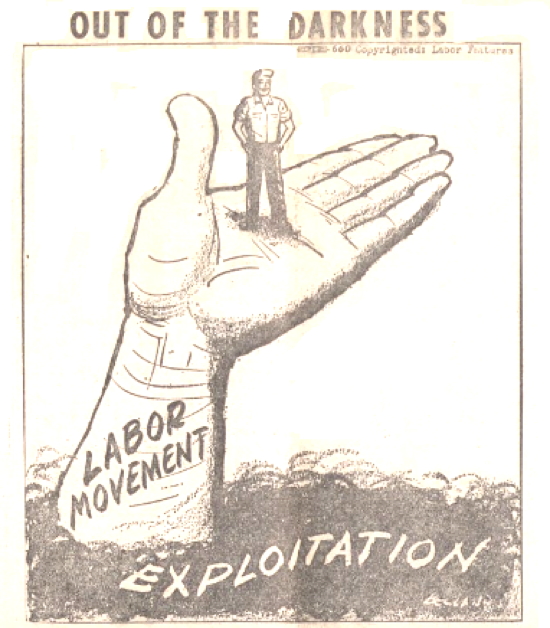
The Fisherman, Vancouver, 30 January 1959
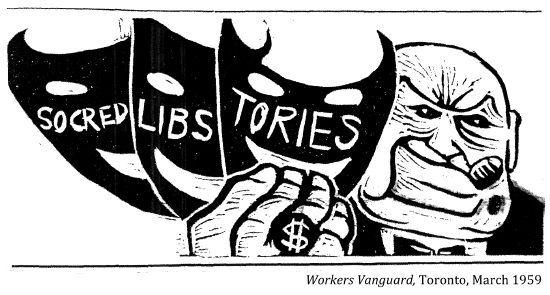
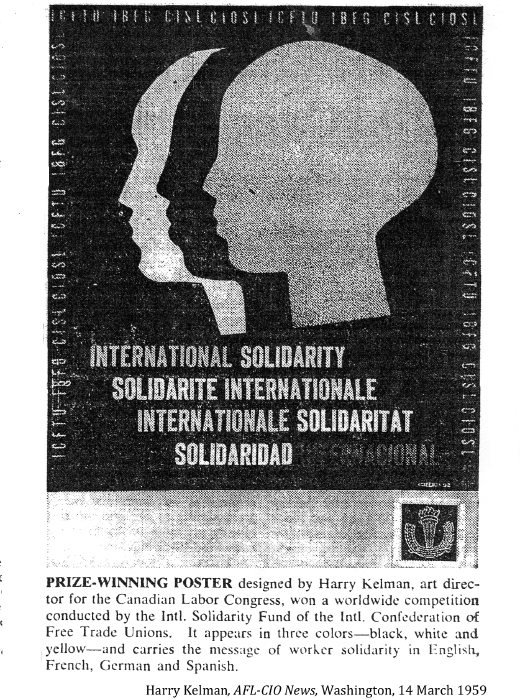
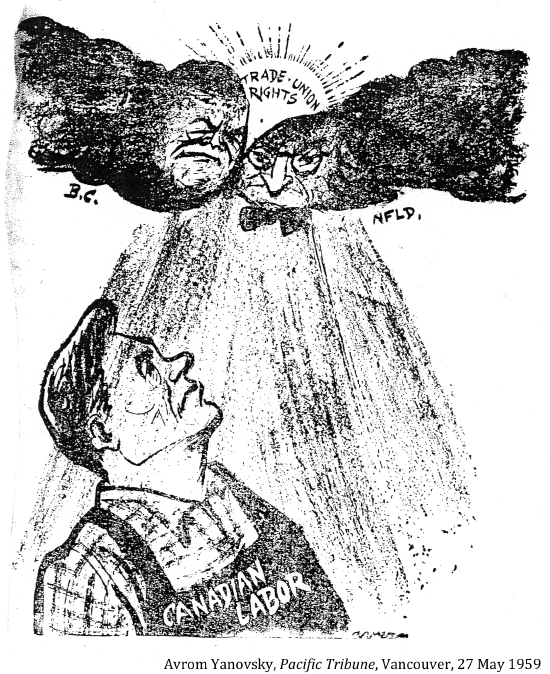
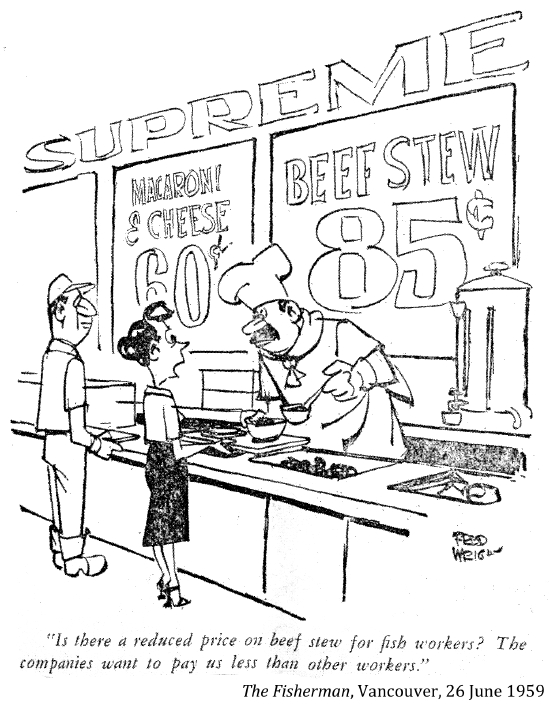
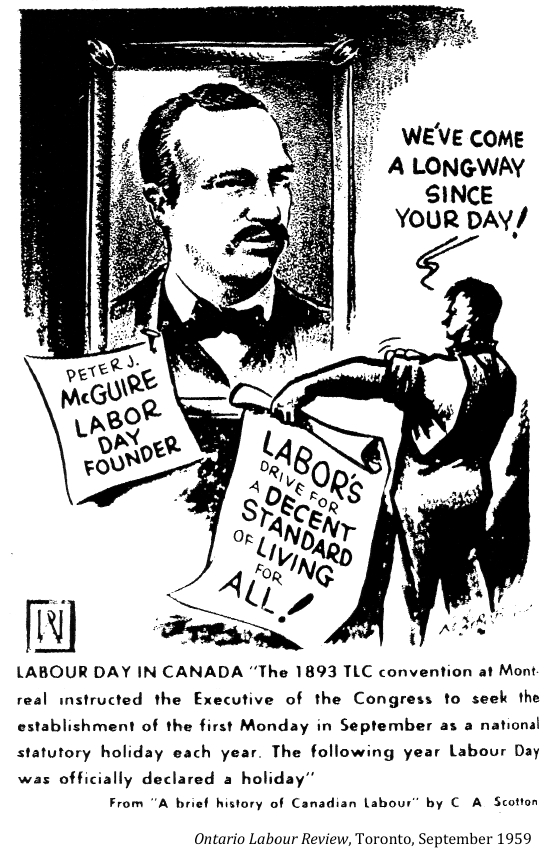
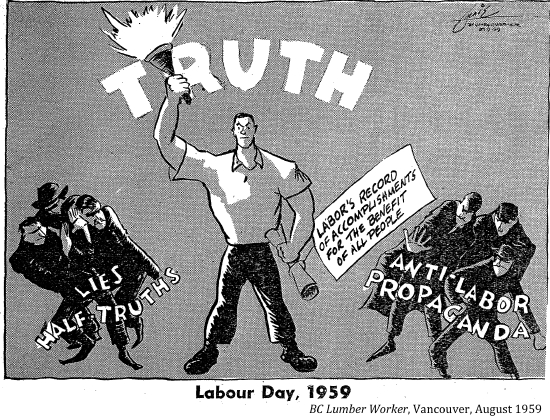
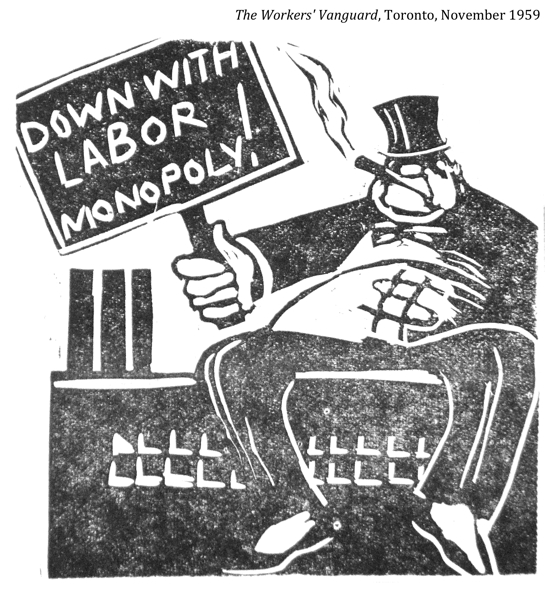
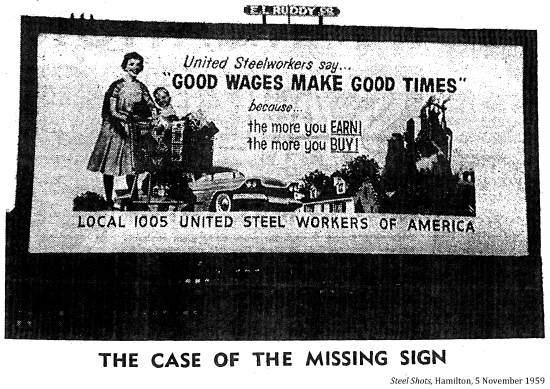
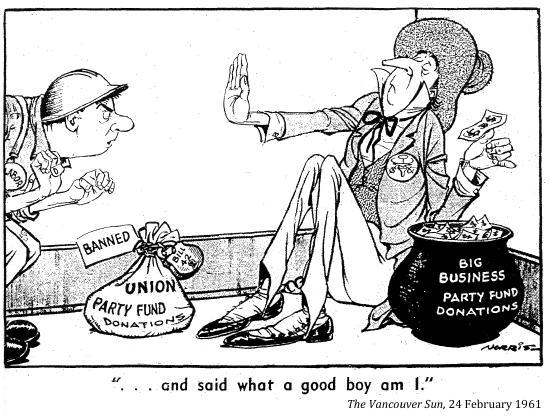
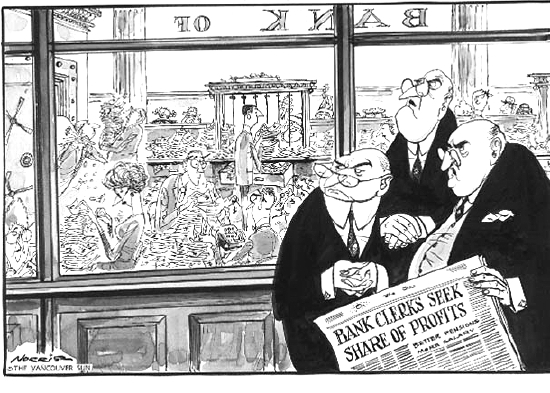
"That's all they ever think about . . . money."
Leonard Norris, The Vancouver Sun, 25 October 1961
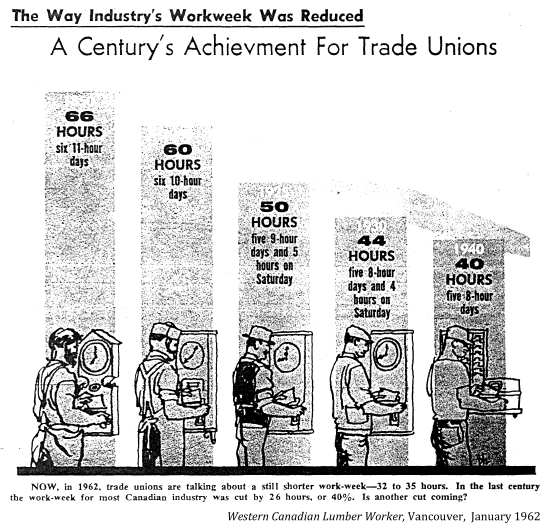
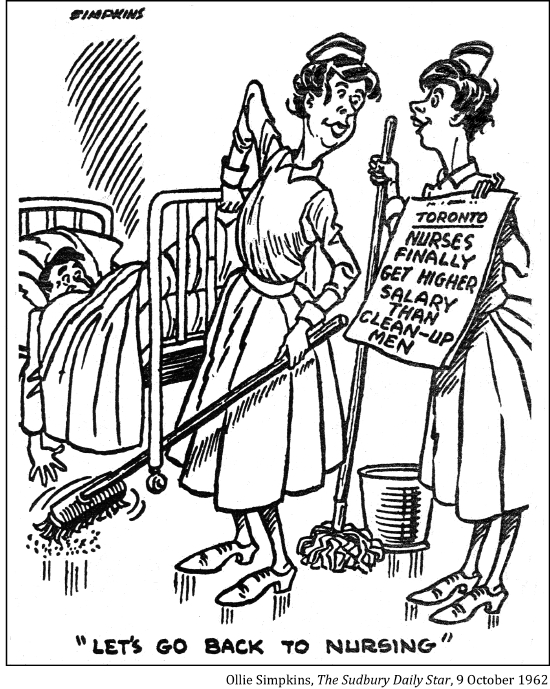
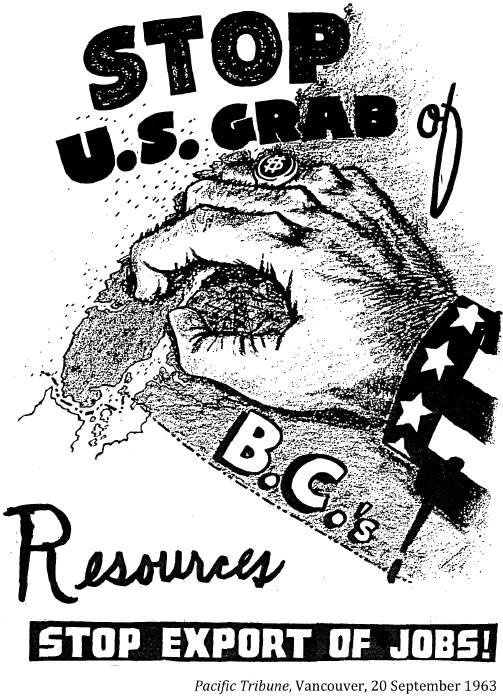
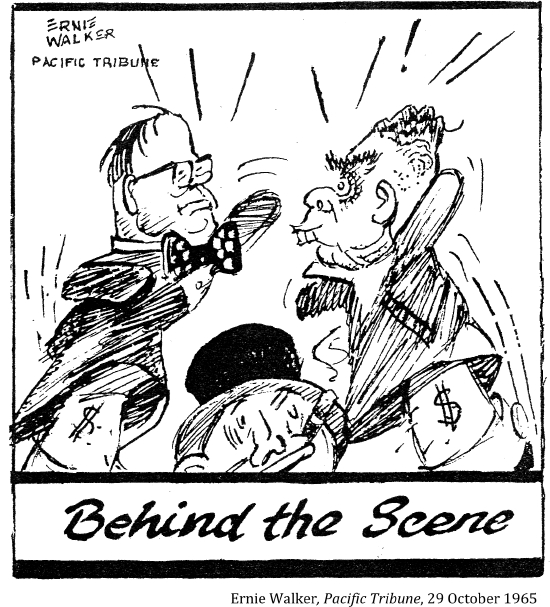
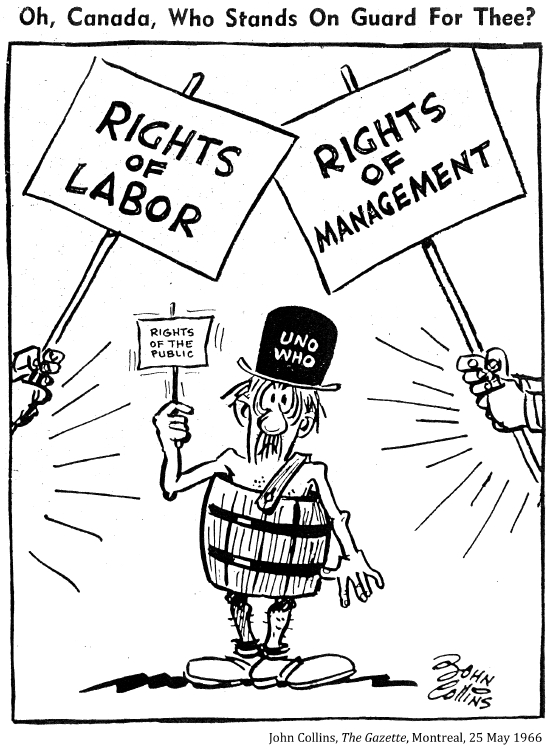
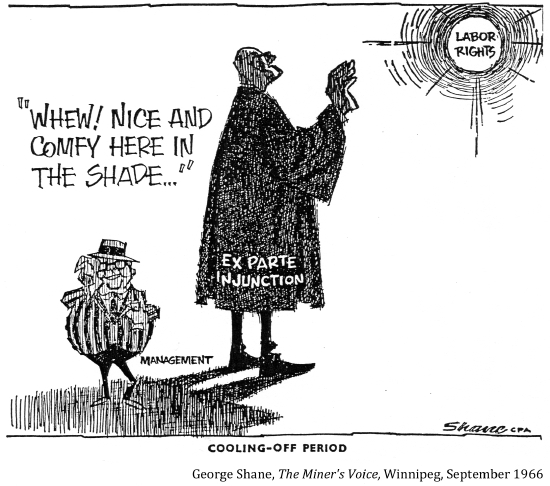
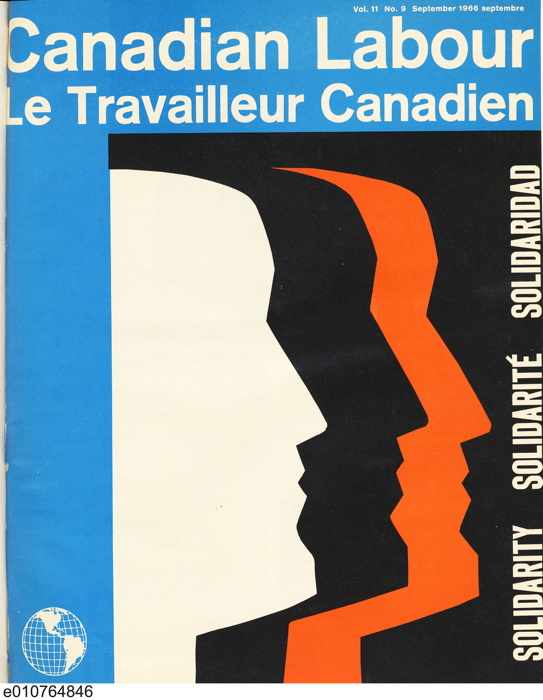

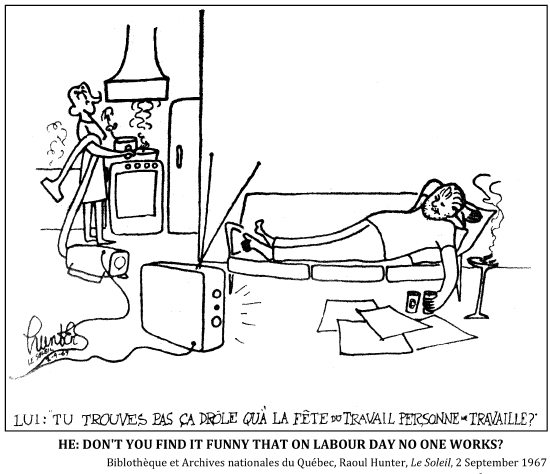
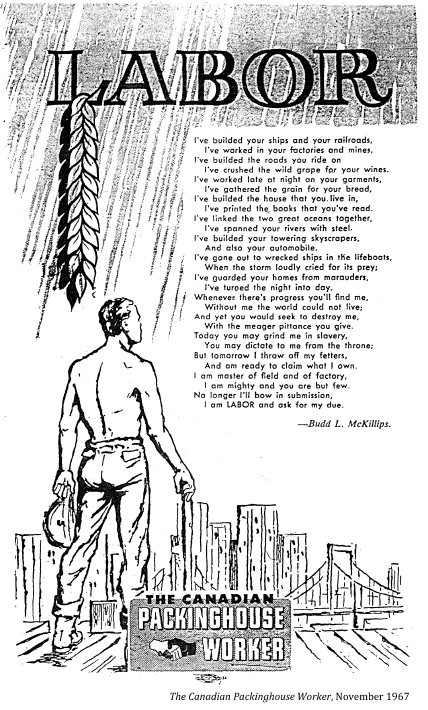
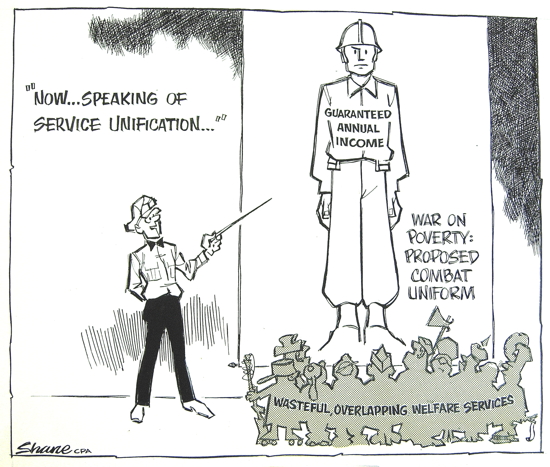
George Shane, LAC
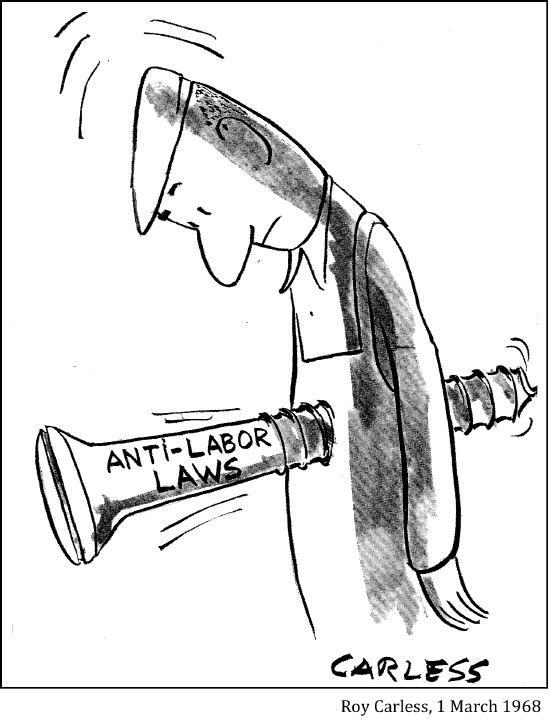
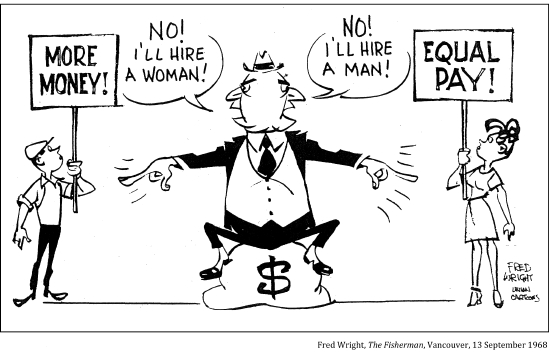
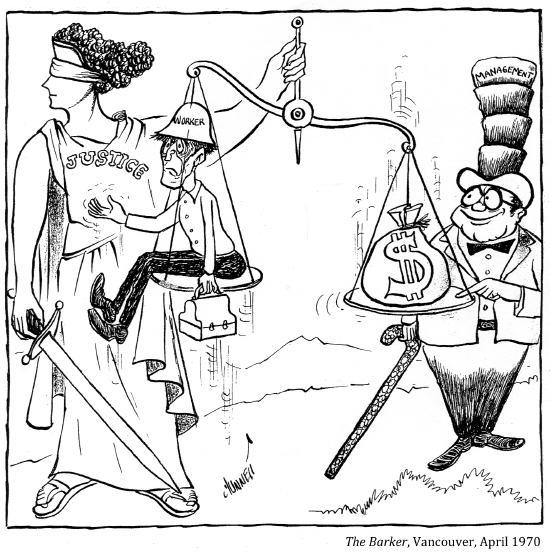
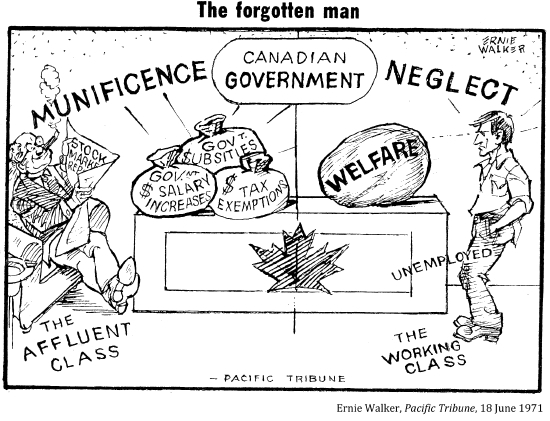
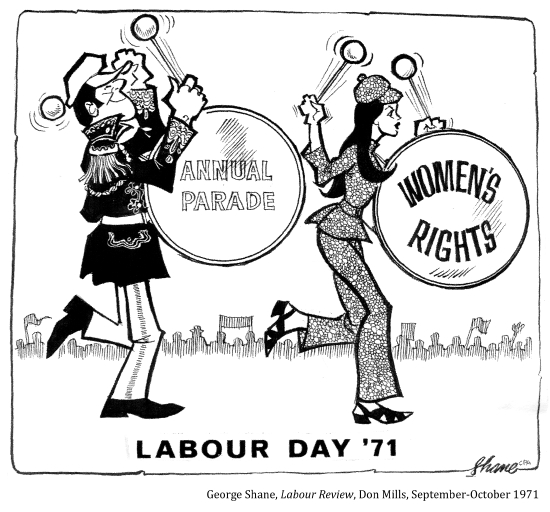
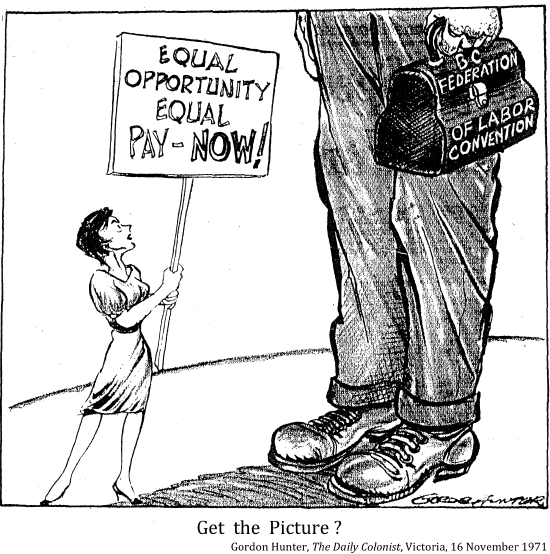
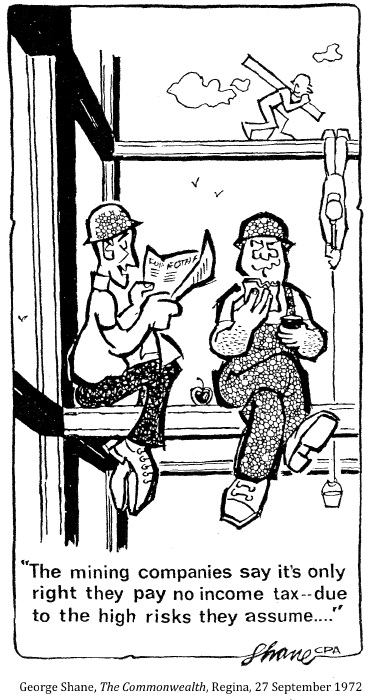
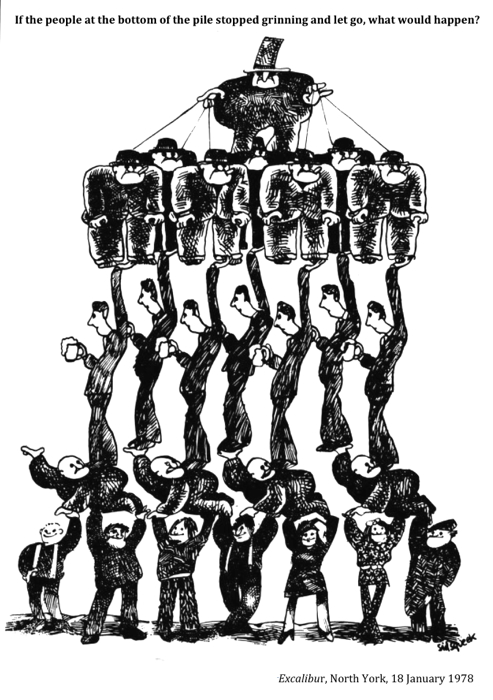
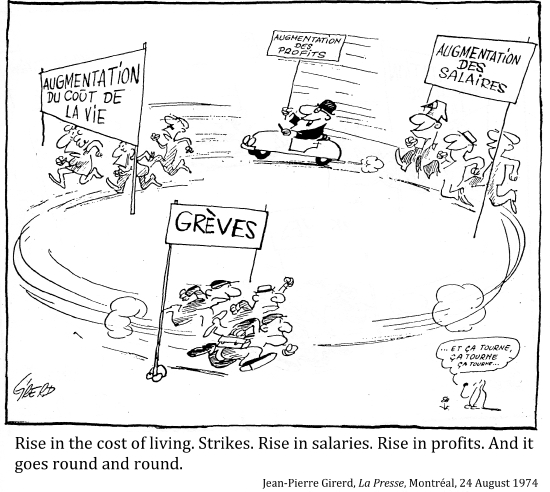
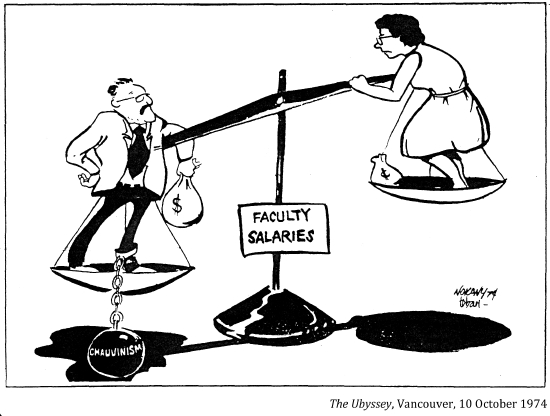

George Shane, 1975?, LAC DSCN0801
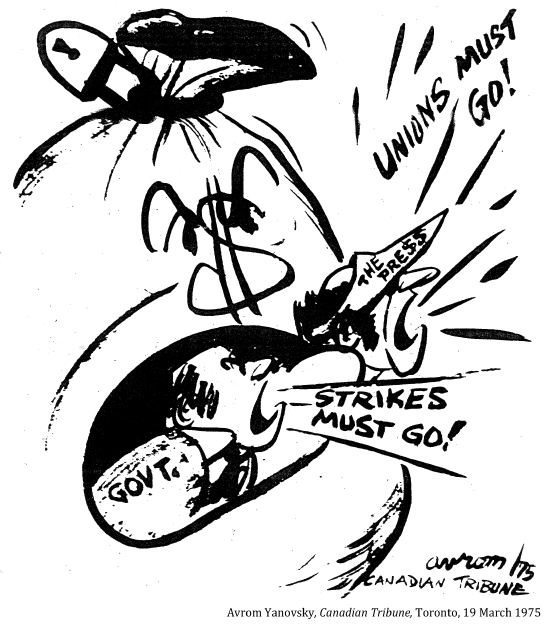
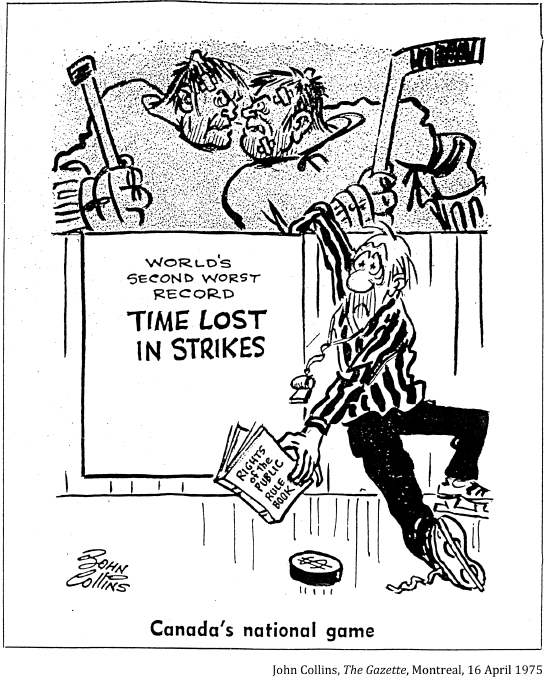
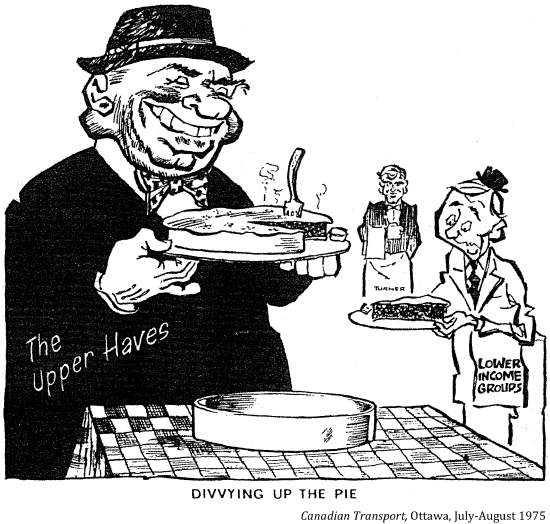
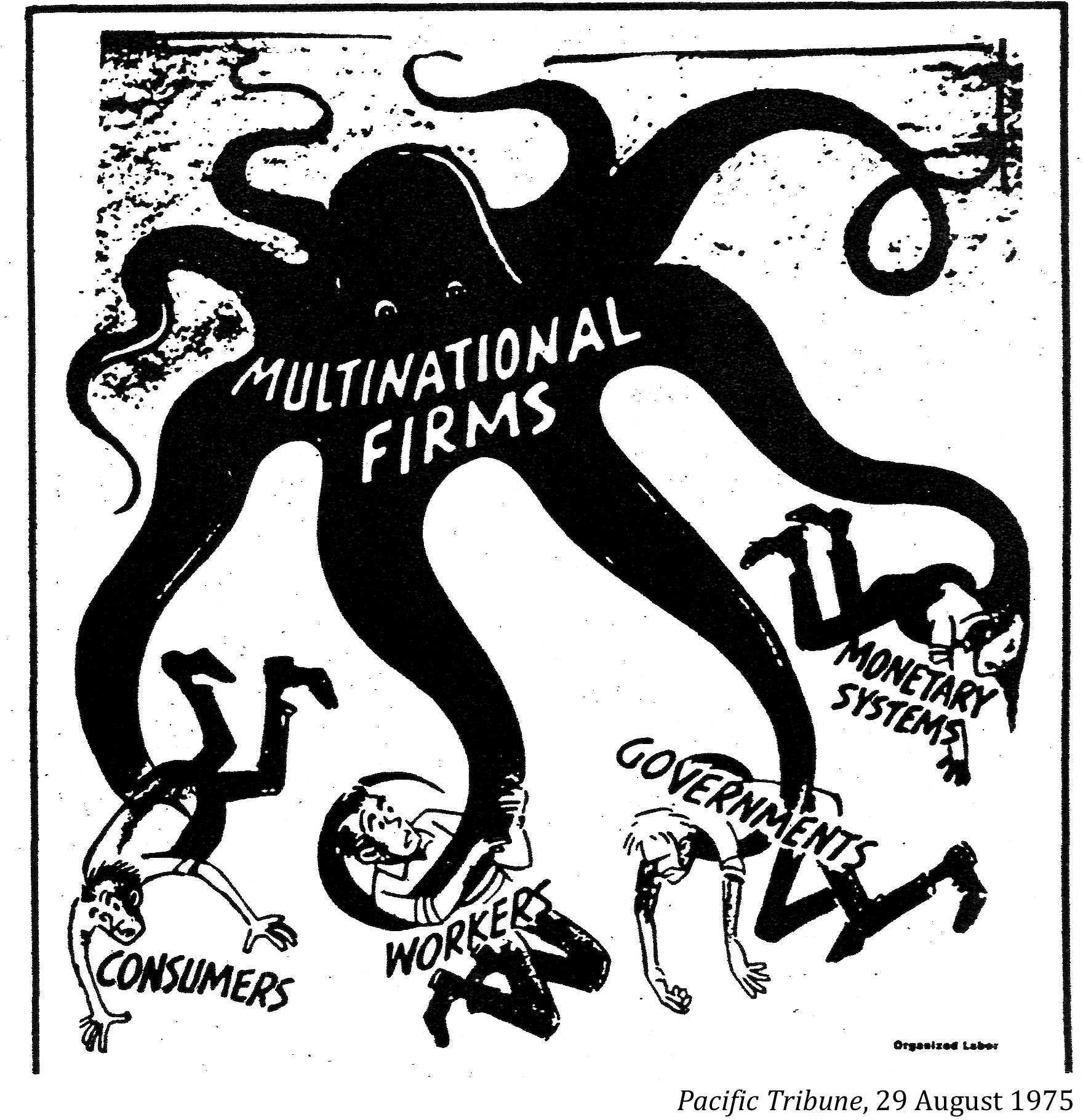
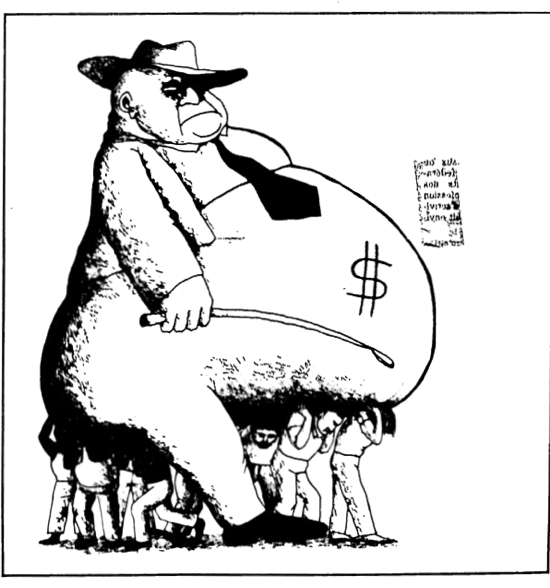
Le Journal Choc, Montréal, 26 March 1976
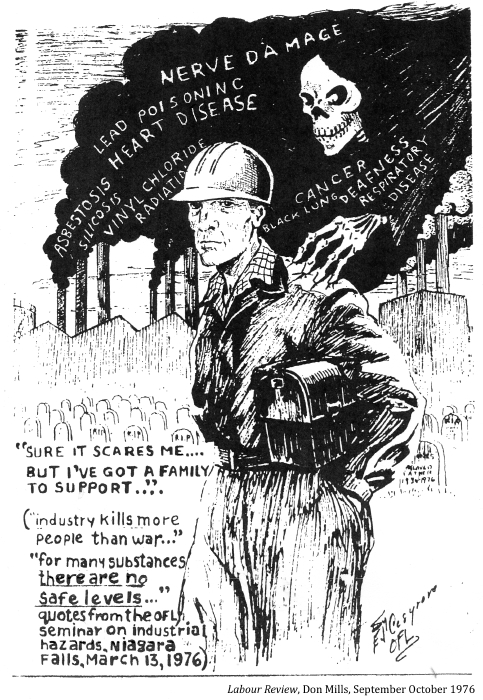
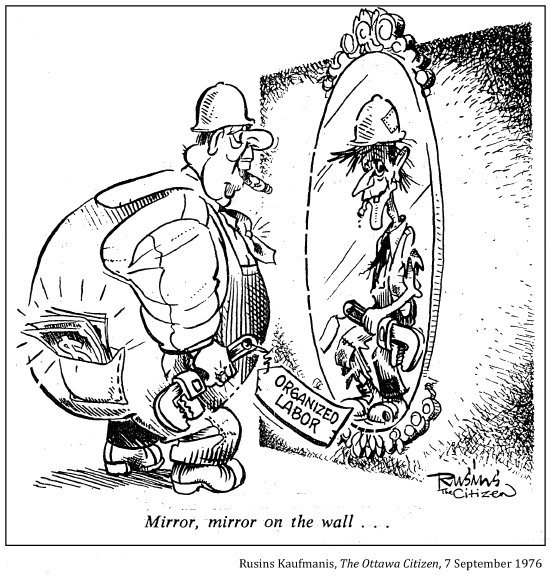
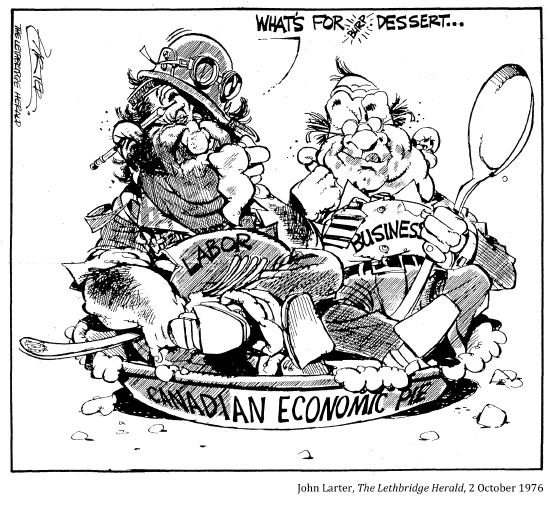
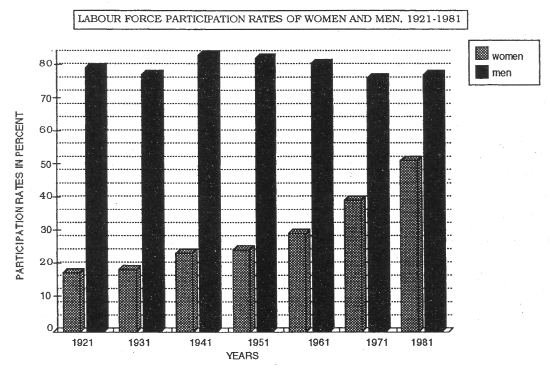
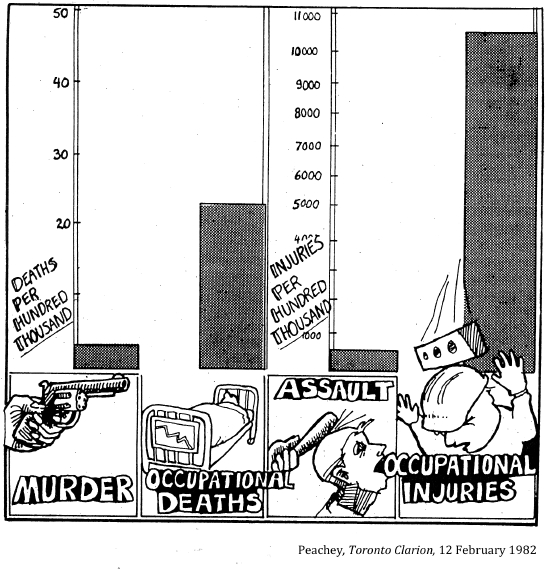
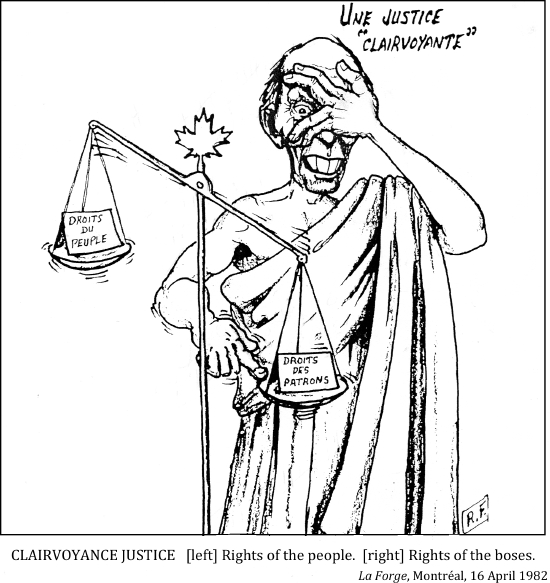
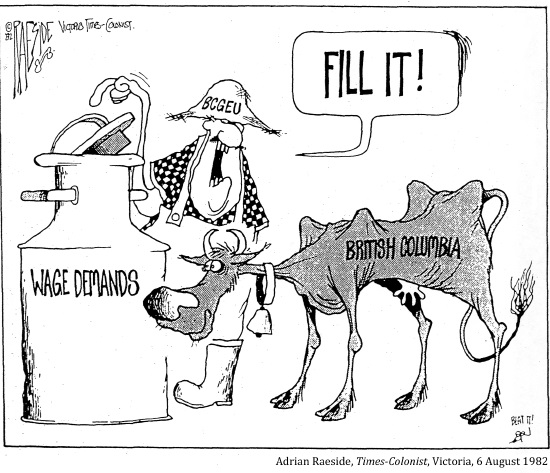
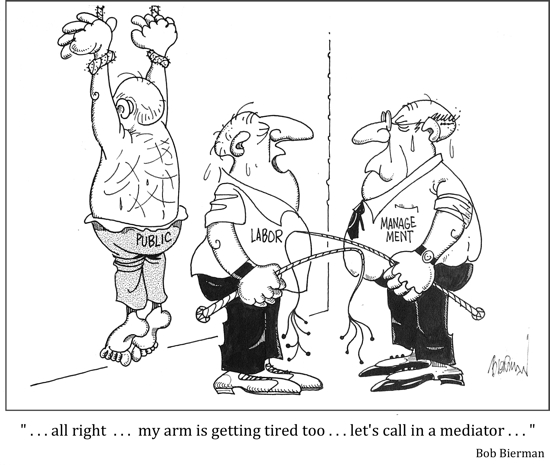
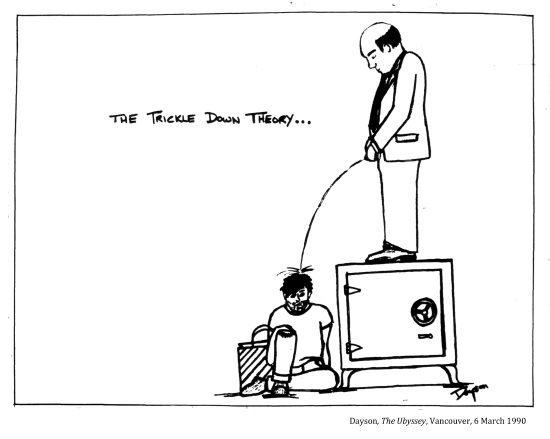
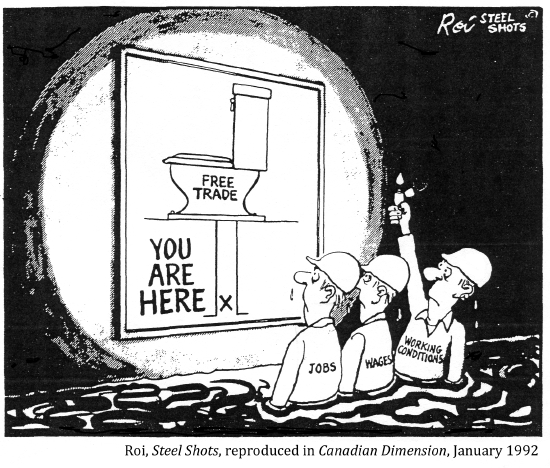
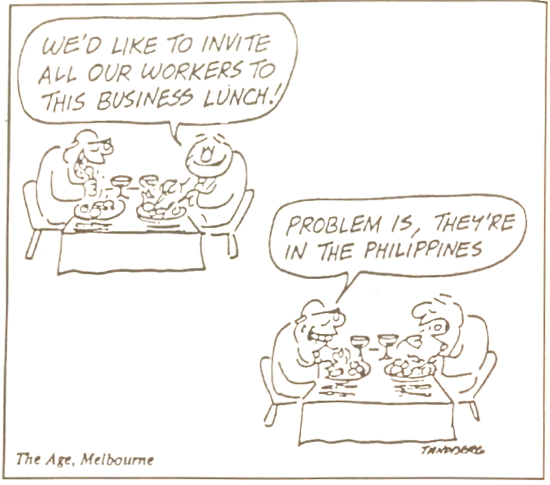
The Lance, Windsor, 1 February 1993
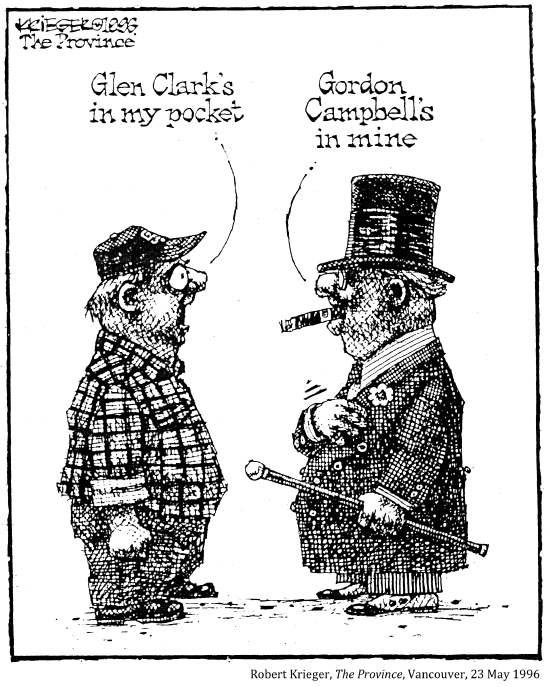
|



































































































.jpg)





















































































































































































































